




Проєкт майбутнього

підручника видавництво"Ранок"














Проєкт майбутнього

підручника видавництво"Ранок"









The Present Simple and the Present Continuous (revision); Action and state verbs; all, both, several
Friendship; Teen chat language
The Past Simple and the Past Continuous (revision); when and while; so and because
Hobbies and leisure time
Talking about states and habits; Talking about activities happening now; Greeting people and introducing yourself informally; Talking about friendship; Using teen chat language
Reading: teen online profiles; a teen chat
Listening: an online conversation about the beginning of the school year; teen online profiles
The Present Continuous and be going to (revision); Adverbs of probability; The Present Simple for the future
Holidays
Talking about past events; Thanking people; Agreeing and disagreeing; Making suggestions; Making a request and an excuse; Talking about hobbies and leisure time
Talking about fixed arrangements, plans and intentions; Expressing probability and possibility; Talking about timetables; Asking about future plans; Talking about holidays
Speaking: friendship; describing your best friend; greeting a friend; introducing yourself
Writing: an Internet profile and a sign-up form
Sentence stress; Strong and weak forms of do and does
Reading: an extract from a classic fairy tale; a summary of a classic fairy tale
Listening: a meeting of an after-school club; an extract from a classic fairy tale
Speaking: hobbies and leisure time; making suggestions
Writing: a request and an excuse
and weak forms of was and were
Past participle; The Present Perfect 1: experience; ever and never
Interests: books, films and music
Talking about somebody’s experience; Giving opinions; Agreeing and disagreeing with opinions; Talking about books, films and music
Reading: a conversation about holiday plans
Listening: a video tour guide; a conversation about holiday plans; airport, train and Underground announcements
Speaking: holidays; timetables; future plans
Writing: holiday plans
Reading: a blog post; forum posts about interests
Listening: an online conversation about a blog post; somebody talking about their experience
Speaking: books, films and music; giving opinions; agreeing and disagreeing with opinions; discussing films
Writing: interests
Strong and weak forms of have and has
The Present Perfect 2: result; Adverbs of time: frequency
Household appliances and chores
Talking about a past action with a result in the present; Talking about household appliances; Describing household chores
Defining relative clauses 1: who (that), which (that), where; Adjectives ending in -ed/-ing; Adverbs of degree: extremely, rather, quite
Festivals and traditions
Reading: forum posts about household chores
Listening: a conversation about household chores; forum posts about household chores
Speaking: a class survey of household chores; planning a party
Writing: household chores
Describing festivals and traditions; Greeting informally; Making and answering requests; Saying goodbye
Reading: celebrations in the UK, the USA and Ukraine
Listening: an online conversation about a festival; a UK celebration
Speaking: festivals and traditions; making new friends at a festival
Writing: a tradition; an e-greeting
The Present Perfect 3: just, already and yet; been and gone
Historic and natural sites
Talking about things you’ve already/just done or haven’t done yet; Describing historic and natural sites; Talking about tourist experience
Reading: an email about a trip to Ukraine; a tourist brochure
Listening: an email about a trip to Ukraine
Speaking: historic and natural sites; describing tourist experience
Writing: a historic site
must and should; Defining relative clauses 2: whose and when; a few/few; a little/little Food;
Cooking verbs
Asking for and giving advice; Talking about healthy/unhealthy food and eating habits;
Following a recipe; Congratulating people; Describing a favourite healthy meal
Reading: a discussion on a healthy eating blog; a menu; forum posts about eating habits
Listening: a conversation about healthy eating; a discussion on a healthy eating blog
Speaking: food; recipes; asking for and giving advice
Writing: my favourite healthy meal
Homophones 2
Long words
The Present Perfect 4: since and for; The Present Perfect and the Present Simple Sports and leisure activities
Talking about sports and leisure activities; Planning to do something together; Expressing preferences; Describing a sportsperson
Reading: a letter about a summer camp; advertisements for summer camps
Listening: people talking about the sports they like; a letter about a summer camp
Speaking: sports and leisure activities; planning to do something together; expressing preferences
Writing: a sportsperson
Indefinite pronouns: place; Future time clauses with when; Prepositions of movement
mustn’t/can’t/ not be allowed to; Phrasal verbs
Ecotourism Talking about ecotourism; Asking for and giving directions; Describing an eco-friendly holiday
Reading: a web page about a nature conservation camp; a text about ecotourism
Listening: an online conversation about a birdwatching trip
Speaking: asking for and giving directions
Writing: an eco-friendly holiday
Clothes and footwear; Words and phrases describing clothes
Talking about one’s fashion style; Expressing prohibition; Expressing approval and disapproval of clothes; Shopping for clothes; Writing an invitation and a thank you email
Reading: posts on a fashion blog
Listening: teenagers choosing clothes in a shop; posts on a fashion blog Speaking: describing clothes and footwear; shopping for clothes Writing: an invitation; a thank you email
Type 1
conditional
Jobs and job qualities
Talking about jobs and job qualities; Discussing future plans and intentions: high school and my profession; Accepting and declining an offer
Reading: a job interview; a career personality test
Listening: a conversation about a job interview; a job interview Speaking: future plans and intentions: high school and my profession
Writing: accepting and declining an offer
I/you/we/they he/she/it
+ I usually get up early.
– I don’t usually get up early.
? Do you usually get up early? Yes, I do. / No, I don’t
? When do you usually get up?
Model:
+ He wears a uniform.
– He doesn’t wear a uniform.
? Does he wear a uniform? Yes, he does. / No, he doesn’t
? What does he wear?
In your notebook, write sentences in the Present Simple. Use short forms where possible.
+ Gabi / go to school by bus (usually) Gabi usually goes to school by bus.
1. + Tara / play tennis twice a week
2. – I / speak Chinese
3. – we / stay up late (often)
Adverbs of frequency I you/we/they he/she/it
4. ? you / recycle plastic bottles
5. + my mum / drive me to school (sometimes)
6 . ? your father / work at weekends
+ I’m reading. You + We They are (’re) reading. He + She It is (’s) reading.
– I’m not reading You – We They aren’t reading He – She It isn’t reading
? Are you reading?
Yes, I am. / No, I’m not ? Is she reading? Yes, she is. / No, she isn’t. ? Are they reading? Yes, they are. / No, they aren’t.
? What are you reading?
Do you remember? 1 2
In your notebook, write sentences in the Present Continuous. Use short forms where possible.
Model:
– we / put up decorations We aren’t putting up decorations.
Model:
1. – I / do a test
2. ? why / you wear a folk costume
3. + I / write an email
4. – my grandparents / work in the garden
5. + he / have breakfast
6. ? they / look at us
7. – my baby brother / learn to crawl
In your notebook, complete the sentences with the correct form of the verbs in bold: the Present Simple or the Present Continuous.
be, do Gabi is very hard-working. She is doing her homework now.
1. want, search I … to buy a new tablet. I … the Web for a babysitting job now.
2. do, walk A: What … you …? B: I … to school.
3. not text, phone Kiril … his friend, he … him at the moment.
4. spend The Wilsons often … the summer holidays in Ukraine.
5. not work, listen The students … in pairs, they … to their teacher now.
6. get up Mum always … early on weekdays.
I You He She It We They + watched the fireworks. + saw a rare bird. – didn’t watch the fireworks. – didn’t see a rare bird.
? Did you watch the fireworks?
spend – spent tell – told throw – threw wake – woke wear – wore 4 3
Yes, I did. / No, I didn’t
? Did you see a rare bird? Yes, I did. / No, I didn’t
? What did you watch?
? What did you see?
Listen and repeat.
buy – bought choose – chose draw – drew feel – felt grow – grew
lose – lost meet – met read – read say – said sleep – slept
Model:
In your notebook, write sentences in the Past Simple.
? the cousins / discover a sercret beach Did the cousins discover a secret beach?
1. + I / sleep late on Sunday
2. – my parents / buy me a new bike yesterday
3. ? you / enjoy the summer holidays
4. + he / lose his mobile two days ago
5. ? she / go hiking at the weekend
6. – we / wear any warm clothes yesterday
7. – Dan / visit his cousins last summer
8. ? where / he take this photo
I you/we/they he/she/it
+ I was sleeping You + We They were sleeping
– I wasn’t sleeping You – We They weren’t sleeping
He + She It was sleeping
He – She It wasn’t sleeping
? Were you sleeping? Yes, I was. / No, I wasn’t. ? Was she sleeping? Yes, she was. / No, she wasn’t. ? Were they sleeping? Yes, they were. / No, they weren’t. ? When were you sleeping?
In your notebook, write sentences in the Past Continuous.
Yesterday at 5:00 pm …
1. + Justin / jog
3. ? they / drink tea
4. + Gabi / have a performance
IV. THE PAST CONTINUOUS 6 7 5
Model:
2. – My parents / buy me a bike
Model:
? Alice / text Dotty Was Alice texting Dotty?
5. ? what / you watch
6. – I / chat with my best friend
7. ? where / they have a birthday party
8. – Vicky / read a book
In your notebook, complete the sentences with the correct form of the verbs in bold: the Past Simple or the Past Continuous. walk, hear While Vicky and Alice were walking, they heard a hissing sound.
1. jog, lose
2. do, ring
I … in the park when I … my keys.
While we … a test, the bell … .
3. watch, start They … the fireworks when it … to rain.
4. get, hike The girls … a suntan while they … in the mountains.
5. travel, visit While the Byivovks … round Ukraine, they … lots of beautiful places.
6. throw away, clean Rita … lots of waste paper while she … the attic.
7. come back, make When Mum ... home after work, I … dinner.
• We use be going to to talk about plans and intentions for the future. Are you going to have a party for your birthday?
• We use will when we decide to do something at the moment of speaking. I’m hungry. I’ll have a snack.
• We use will to talk about future facts and predictions. I’m sure you’ll like my new friend.
In your notebook, complete the sentences with the correct form of the verbs in bold: will or be going to . Use short forms where possible.
Model:
see, visit A: What are your plans for the weekend?
B: On Saturday, I’m going to see the latest Star Wars film. Perhaps I’ll visit my grandparents on Sunday.
1. go I feel really tired. I … to bed early.
2. study, not come On Sunday, Borys … for his History test. I’m sure he … with us.
3. like I hope Vicky … her birthday present.
4. look after Jenny can’t come to my party tomorrow. She … her little sister.
5. drive In the future, people … flying cars.
6. make A: I’m so hungry! B: I … you a sandwich.
7. not hang out Vicky and Gabi have got lots of homework so they … at the weekend.
I’ve got a new mobile. The mobile was a birthday gift. There’s a sofa and an armchair in the living room. The sofa is under the window. Children like chocolate. The children in my class like chocolate.
In your notebook, complete the sentences with a/an or the .
1. We live in … flat in … city centre. … flat is small but comfortable.
2. There’s … fridge and … washing machine in … kitchen.
3. Excuse me, is there … bank near here?
4. John and Anna have got two children, … girl and … boy. ... boy is 15 years old and … girl is 13. John is … software engineer and Anna is … housewife.
5. My grandparents live in … old house near … train station.
Do you remember? 10 11 12
In your notebook, match the two parts of the sentences.
1. Penguins are the most popular animals in the zoo. The penguins eat fish.
2. Teenagers often argue with their parents. The teenagers in this photo are having a party.
3. Sea daffodils we saw at the beach were beautiful. The sea daffodils are protected plants.
Some of the sentences below are correct. Others need a/an or the . Put a/an or the where necessary. Say the correct sentences.
1. Vegetarians don’t eat meat.
2. Football is very exciting sport.
3. It’s raining – take umbrella.
4. Would you like banana?
THINGS PEOPLE
somethingsomebodysomeone anythinganybody anyone nothing nobodyno one everythingeverybody everyone
5. A: Where is spare key?
B: It’s on mantelpiece.
6. Children like playing computer games.
7. John and Anna are at airport.
There’s something I need to tell you. There’s somebody/someone home. I don’t want anything to drink.
A: Did anybody/anyone help you?
B: Nobody helped me.
Everyone/Everybody likes Dotty. We ate up all the food. Everything was delicious!
In your notebook, complete the sentences with somebody , anybody , nobody , everybody , anything , everything .
1. Are you doing … this afternoon?
2. Alice, … is waving at you. Do you know her?
3. A: Please, tell me … you know about Jane. B: Hmm, I don’t know much.
4. I went to the mall but I didn’t buy … .
5. A: Can … help us?
B: … can help us. We have to do it ourselves.
6. A: … likes ice cream. B: I don’t!
Do you remember?
Nobody taught me to play the guitar. I taught myself. A lot of teenagers spend hours looking at themselves in the mirror.
In your notebook, complete the sentences with the correct reflexive pronouns.
1. Please, don’t pay for me. I’ll pay for … .
2. Vicky and Borys had a great holiday. They really enjoyed … .
3. Are you crazy if you sometimes talk to …?
4. We didn’t buy any birthday decorations. We made them … .
5. Friends, please serve … before the pizza gets cold.
6. She is very selfish! She only thinks about … .
I’m so happy to see you. Peter speaks so fast! It’s such a hot day! You’re such good kids!
In your notebook, complete the sentences with so and such .
1. Don’t be … mean!
2. Thank you! You’re … a kind girl!
3. Why are you … lazy?
4. I feel … happy! It’s … a lucky day!
Do you remember? Do you remember? myselfourselves yourselfyourselves himself herself itself themselves 13

Say the correct phrase.
1. I need another sweater. This one isn’t warm enough / too warm
2. It’s late enough / too late to call Mark now. He’s probably asleep.
3. I’m afraid to walk through the park. It’s dark enough / too dark.
4. This cake is too sweet / sweet enough Can I have some water?
5. I can’t do this exercise. It’s difficult enough / too difficult.
5. Hahaha, you always tell … funny jokes!
6. This bus is moving … slowly! Let’s get off and walk!

There is one mistake in each sentence. Find it and correct it in your notebook.
1. I don’t know nobody here.
2. Miss, do we have to read the rest of the grammar ourself?
3. Hello! Is there somebody home?
4. I’m such angry with you!
5. It’s late enough to do my homework now.
6. I won’t buy this T-shirt. It’s not enough big.
7. It’s such beautiful day today!
Grammar: the Present Simple and the Present Continuous (revision); action and state verbs; all , both , several Functions: talking about states and habits; talking about activities happening now; greeting people and introducing yourself informally; talking about friendship; using teen chat language
Vocabulary: friendship; teen chat language
Pronunciation: sentence stress; strong and weak forms of do and does
Answer the questions.

Are you a member of a social network? Have you got any virtual friends? Do you take part in any school projects?
Look at the pictures. Read the sentences and try to guess the meaning of the words and phrases in bold.


1. She’s got loads of homework to do.

2. Alex is a real bookworm. He reads a dozen books every month!

3. Andrey listens to the BBC every day for an hour to brush up his English.
Listen and repeat.
4. Be quiet for a moment!
I can’t hear what Mum is saying.
Answer the questions below.
• Who are the people in the pictures?
• What is the relationship between them?

Listen and check.
Listen and choose the correct answer.
a. Alice and Justin started school before Vicky and Borys.
b. Alice and Justin started school after Vicky and Borys.
Listen again. In your notebook, match the beginning of each sentence with its ending.
1. Alice a. thinks that Vicky reads too many books.
2. Vicky b is angry with Vicky for telling his secret.
3. Justin c . suggests it was love at first sight.
4 . Borys d. tells everybody that Borys’s got a virtual friend.
Listen to part of two online profiles. In your notebook, match the people with the adjectives. Be careful – there are two extra adjectives!
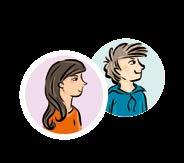
Now read the whole profiles and complete the sentences in your notebook. shy communica selfish organised messy easy -going lazy adventurous quiet
eTwinning is a free online community for schools in Europe. Member schools can find partners and collaborate on eTwinning projects within a secure network and platform. The twinned schools communicate by email or video conferencing to work together, share materials and learn from each other. eTwinning projects can last from only about a week up to several months or years.
mate (BrE, informal) = pal (BrE, informal) = buddy (AmE, informal)

zorbing = an activity in which someone rolls down a hill or along the surface of water in a large transparent plastic ball
About me:
Hi, I’m Borys! I’m from Kyiv, Ukraine. I’m very communicative and I get on well with everybody. All my friends say I’m the most easy-going person in the world. And sometimes the messiest as well!
Likes:
I like trying new things but sometimes I’m too adventurous. I want to try zorbing soon! Several of my friends do it every weekend and they say it’s great!
Leisure time:
I love sports. I like reading sports blogs and downloading sports apps. I don’t like talking on the phone so I usually text my mates.

► Laura Italy
About me:
Hi, my name is Laura! I live in Venice, Italy. I’m shy and quiet. I’m also very organised and my room is always clean and tidy.
Likes:
I’m really into fashion and I’m very good at drawing dress sketches. And I love adventure. I’m a member of a rock climbing club.
Leisure time:
I love reading fashion blogs and I often post comments. I’m planning to start my own blog soon. I hate texting but I talk for hours with my besties.
1. The Present Simple and the Present Continuous (revision)
Study the sentences. In your notebook, match them with the rules.
1. Vicky, Borys, Alice and Justin are having an online conversation.
2. Borys usually texts his mates.
3. Laura lives in Venice.
4. Our school is taking part in an international project.
a. We use the Present Continuous to talk about an activity happening over a short period o f time.
b. We use the Present Simple to talk about states.
c. We use the Present Simple to talk about habits.
d. We use the Present Continuous to talk about an activity happening now.
Borys gets on well with everybody.
1. Borys’ friends think …
2. He wants …
3. Borys texts his friends because …
4. Laura’s room is …
5. When Laura reads fashion blogs, she …
6. She is going to start …
Read Gabi’s email and say the correct form of the verbs in brackets: the Present Simple or the Present Continuous.
Subject: Back to school 11:15 AM
From: gabriela_angel@gmail.com
To: justinthechef@ezbox.co.uk
Hi Justin,
Thanks for your email.
It … (be) school time again and I … (have) classes every day from 8:00 am to 1:00 pm. After that I … (do) my homework. On Tuesday and Thursday afternoons, I … (go) to my drama club. In my free time, I usually … (hang out) with Vicky. This year my school … (take) part in an international project. Vicky and I … (organise) an English book club, too. This week we … (make) some posters and flyers. I hope our classmates will like them and join the club!
Write back soon, Gabi
2. Action and state verbs
Read the sentences and answer the questions.
1. They have a lot of virtual friends.
2. I love reading fashion blogs.
3. She often posts comments.
Which verbs describe a state or a feeling? What tense are they used in? Which verbs describe an action? What tense are they used in?
Now check the rules.
Verbs that describe actions (e.g. post, plan) are called action verbs . We use them in the Present Simple and the Present Continuous. Verbs that describe states or feelings (e.g. have, love) are called state verbs . We usually use them in the Present Simple.
4. I’m planning to start my own blog soon. 9
Model:
Common state verbs are: agree , be , believe , feel , hate , hear , know , like , love , mean , need , prefer , smell , taste , think , understand .
In your notebook, write the correct form of the verbs in bold.
not understand, say I don’t under stand what you are saying. Can you repeat that, please?
1. be, need We … exhausted so we … a long break!
2. make, smell Justin … a cheese and tomato pizza now. It … delicious!
3. not believe, lie I … Sandra – she … about her new boyfriend!
4. read, post Laura … fashion blogs in her free time. She usually … comments.
5. love, not like I … texting but I … talking on the phone.
6. text, send Vicky and Gabi … each other every day. They … dozens of messages.
Read the sentences again. Which verbs are statе verbs and which are action verbs?
3. All , both , several
Read the sentences and answer the questions.
1. Both Gabi and I are busy organising an English book club.
2. Several of my friends go zorbing every weekend.
3. All my friends say I’m the most easy-going person in the world.
Which pronoun do we use when we mean two people or objects?
Which pronoun do we use when we mean every person or object in a group?
Which pronoun do we use when we mean a small number of people or objects?
Now match the sentences with the rules.
1. Several of my friends love rock climbing.
2 . All her friends/Both the girls are interested in fashion.
3. All/Both of them have got blogs.
a. We usually use the preposition of after several .
b. After all and both , we usually use the preposition of before us and them
c. After all and both , we often drop the preposition of before the, my, your, etc.
NB! We use a plural noun after all , several and both .
Say both , all, or several to complete the sentences. Sometimes there is more than one option!
1. Borys and Vicky are twins. … of them are in Grade 7B.
2. It’s my birthday next Sunday and … my friends are coming to the party.
3. Borys has got a lot of friends. … of them are really cool.
4. Laura can speak … Italian and English.
5. … of the Wilsons – Alice, Justin, Anna and John – are great fans of rock music.
6. My dad keeps dozens of old computers in the garage. … of them are still working!
7. … Borys and Laura love adventures.
1. Friendship
Work in pairs. Make a list of all adjectives of personality you know. Put them into two groups: positive and negative. Your partner does the same. Compare your lists. How many matches have you got?
Read the description below. Try to guess the meaning of the phrases in bold. Then look them up in the Wordlist at the end of your Student’s Book.
get on well enjoy someone’s company keep in touch be like chalk and cheese have a lot in common love at first sight break up make it up
Alex is my best friend. We met seven years ago when we were in Grade 1.
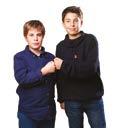
All of our friends think we are like chalk and cheese and they don’t understand why we get on well together. Alex is tall and slim, easy-going and everybody’s favourite. I am short and plump, and a bit shy. The fact is we have a lot in common and I really enjoy his company: we are both mad about photography and we take hundreds of pictures every day. Now we are in different schools but we keep in touch every day. We talk on the phone or we text. Alex has got a girlfriend, I think it was love at first sight. It’s a very interesting relationship. They break up and then make it up almost every week. I’m not sure if I want to have a girlfriend right now!
"
Now listen to the phrases in bold and repeat.
12
13 Work in groups of four. Each of you think of your best friend and describe him/her to your classmates. Use the description in and your list of adjectives of personality. The questions below will also help you.
• Who is the person?
• When did you meet him/her?
• What does he/she look like?
2. Teen chat language
Read Borys and Laura’s chat. Can you guess the meaning of the words in bold?
• What is he/she like?
• What do you have in common?
• How do you keep in touch?
In your notebook, match the abbreviations with their meanings.
a. by the way b. no problem
Thx 9. ASAP
c. as soon as possible d. laughing out loud e. just kidding f. thanks g. are h. oh my god i. you
Now read Borys and Laura’s chat again and check your predictions.


Introductions
In your notebook, copy the sentences and put them into the correct order. Then listen and check.

• We’ve got a lot in common. Both of us like reading books and watching films.
• Hi, there! My name’s Gabi and I’m a student. I’m thirteen.
• I love theatre and I’m a member of a drama club and an English book club.
• I study at Les Kurbas Secondary School. I’m in class 7B.
• In my free time, I love hanging out with my best friend Vicky.
Greet informally
Hi! Hello! Hi, there! Introduce yourself informally
I’m … My name is ...
• I was born in Poltava but I live in Kyiv because my parents work there.
Now work in pairs.
Present yourself to your partner in a similar way.
An Internet profile and a sign-up form
Read Vicky’s profile on the eTwinning platform and answer the questions below.
• What is Vicky like?
• What are her interests?
• What does she like doing in her free time?

a spoiler = information about what happens in a book or film that you don’t want to know about before you read or see yourself
► Vicky Ukraine message add a friend report to moderator
About me:
Hi, I’m Vicky! I live in Kyiv, Ukraine. I’ve got a twin brother. I’m very friendly and I like meeting new people. My friends say I’m kind and generous.
Likes:
I love reading. I’m not into adventures but I want to try zorbing soon!
How’s that for a chicken?
Leisure time:
I read several book blogs and talk about books with my friends. But there’s a rule: no spoilers! I love talking on the phone or online! I can spend hours talking with my cousins in the UK.
Now write your profile for the eTwinning platform. Follow the model above.
Go to p. 8 in Workbook 1 and fill in the sign-up form.
Create an account
Username*
Password*
Confirm Password*
Date of birth*
Email*
Gender* Country*
State/Province City
Sentence stress
Strong and weak forms of do and does
Copy these sentences into your notebook. Listen and mark the intonation pattern (rising or falling).
Be careful when you share information online!
Never give out any personal information, such as your phone number, address, password or photograph, without your parents’ permission.
In the English sentence, nouns and verbs are usually stressed. Articles, prepositions and other helping words aren’t usually stressed.
Listen to the sentences for a third time. Pay attention to the pronunciation of do/does .
1. Do you get up early?
2. Yes, I do.
3. What does he like doing?
4. He doesn’t like texting.
Now listen again and answer the questions: Do we say every word with the same stress?
Which are the important words in each sentence?
IMPORTANT!
In short answers and negative sentences, we use the strong form of do /duː/ and does /dʌz, ˈdʌz(ə)nt/.
In positive sentences and questions, we use the weak form of do /də/ and does /dəz/
Listen again and repeat. Try to pronounce the forms of do/does correctly.
Grammar: the Past Simple and the Past Continuous (revision); when and while ; so and because
Functions: talking about past events; thanking people; agreeing and disagreeing; making suggestions; making a request and an excuse; talking about hobbies and leisure time
Vocabulary: hobbies and leisure time
Pronunciation: strong and weak forms of was and were
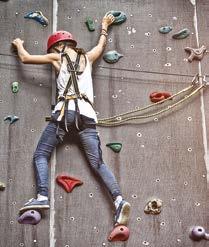
1. The European swallow spends the winter in Africa, south of the Sahara.
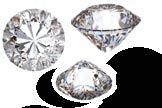
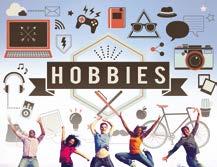
In pairs, answer the questions.
Do you have a hobby? What interests do you have outside of school? Do you go to an after-school club? What club does Gabi go to? What club are Vicky and Gabi organising?

Look at the pictures. Read the sentences and try to guess the meaning of the words in bold.
precious stones keen on swallow (n.) Positive! freeze (v.)
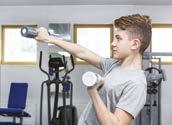
2. Ben is keen on staying fit. He goes to the gym three times a week.
3. Diamonds are some of the most expensive precious stones on earth.
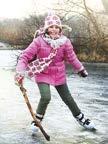
4. In Sweden, people can go skating when lakes freeze in winter.

5. A: Are you sure you don’t want some chocolate? B: Positive! Listen and repeat.
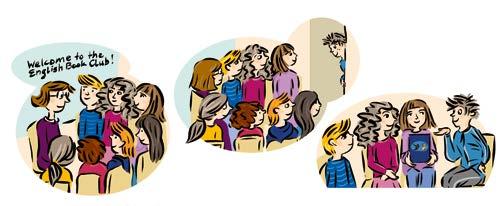
Listen and say which statement is true.
a. It’s a meeting of a drama club.
b. It’s a meeting of a book club.
Listen again and choose the correct answer.
1. The members of the club
a. met yesterday.
b. are meeting now.
2. Ms Hristova is … to be at the meeting.
a. surprised
b. happy
3. … is surprised that Georgi wants to join in.
a. Gabi
b. Vicky
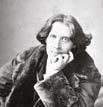
Thank people
I’m very/so grateful for ... Thank you very/so much for ... That was nice of you. Thanks a million!
Answer people
You’re very welcome. Don’t mention it. It was my pleasure. It was nothing. What are friends for? Forget it.
Oscar Wilde is an Irish poet and dramatist (1854–1900). His greatest talent was for writing comedies. He also wrote a collection of fairy tales and a novel.
Now listen to an extract from the fairy tale ‘The Happy Prince’ by Oscar Wilde and say true or false
1. The Happy Prince was once a real prince.
2. The Happy Prince sees all the beauty in the city.
Now read the rest of the extract and answer the questions below.
‘Far away in a little street there is a poor house,’ continued the statue. ‘One of the windows is open, and through it I can see a woman at a table. Her son is very ill and he has a fever. But she has nothing to give him because she’s very poor. Little Swallow, can you bring her one of my precious stones?’
‘But my friends are waiting for me in Egypt,’ said the Swallow.
‘Swallow, Swallow, little Swallow,’ said the Prince, ‘stay with me for one night and help me, please. The boy is so thirsty, and the mother is so sad.’
‘I don’t like boys,’ answered the Swallow. ‘Last summer, while I was sitting on the river, there were two nasty boys who were throwing stones at me.’
But the Happy Prince looked so sad that the little Swallow felt sorry for him.
‘It’s very cold here,’ he said, ‘but I’ll stay with you for one night and help you.’
‘Thank you, little Swallow,’ said the Prince.
1. What is wrong with the boy?
2. Why does the Happy Prince decide to help the boy’s mother?
3. Where are the Swallow’s friends?
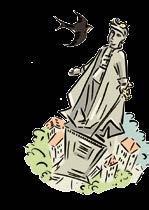
4. Why doesn’t the Swallow like boys?
5. Why is the Swallow sorry for the Happy Prince?
6. What does the Swallow decide to do?
What do you think happens at the end of the fairy tale? Is it a happy ending?
Now read the summary of the fairy tale ‘The Happy Prince’ and choose the correct answers.
The Happy Prince is a. a statue b. a painting decorated with golden leaves and precious stones.
Everyone loves him because he is beautiful. But the Prince feels very sad about
a. the poor people
b. the old people in the city. One night, a swallow comes to rest on the statue’s feet on its way to Egypt. The Prince asks the bird to give all his
a. beautiful clothes, belt and shoes
b. precious stones and golden leaves to the poor people. Together they help lots of people. But soon winter arrives and the swallow
a. flies away to Egypt
b. freezes to death . The Happy Prince loses his best friend so his metal heart
a. breaks into pieces
b. freezes too . Then God asks one of his angels to bring him two of the most
a. expensive
b. precious things in the city. The angel brings him the broken heart and the dead bird.
STUDY TIP
A summary is a short version of a written work, usually a book. It contains the main events without any details. A summary helps us decide if we want to read the whole book.
Listen and check.
1. The Past Simple and the P ast Continuous (revision)
Read the sentences and answer the questions below.
1. In the daytime, I played with my friends in the garden.
2. Vicky and Gabi were reading a fairy tale at 3:30 pm yesterday.
3. The sick boy was lying in his bed when the swallow flew into the room.
4. While I was sitting on the river, two nasty boys were throwing stones at me.
When do we use the Past Simple?
When do we use the Past Continuous?
Now check the rules.
We use the Past Simple to talk about a completed action or event in the past.
We use the Past Continuous to talk about an activity happening around a certain time in the past.
We use the Past Continuous to say that two activities were happening at the same time in the past. We often use the Past Continuous and the Past Simple together when we talk about a long and a short action in the past. The short main action is in the Past Simple . The long background action is in the Past Continuous .
Do you remember?
We put while only in front of the long action. We put when in front of the short or long action.
Say the correct form of the verbs in bold to complete the sentences. Use the Past Simple or the Past Continuous.
1. arrive, introduce When Georgi … at the book club meeting, the members … themselves.
2. keep, tour Alice and Dorothy … in touch every day while Alice … Ukraine last summer.
3. ride, meet, be While John … on the bus, he … a beautiful girl. It … love at first sight!
4. break, climb Laura … her leg while she … up a rock.
5. text, chat Borys … Laura while Vicky … with Alice.
6. break up, make up Last week, Alex … with his girlfriend but yesterday they … it … .
2. So and because
Do you remember?
A compound sentence is made up of simple sentences joined by conjunctions such as and, or, but and so .
Study the sentences and check the rules.
1. Everyone loves the Happy Prince because he is beautiful.
2. The Happy Prince loses his best friend so his metal heart breaks into pieces.
We use so to show the result of an action or a decision. We use because to show the reason for an action or a decision.
Say so or because to complete each sentence. Then say the sentences in another way.
Model:
I couldn’t go to the performance because I was sick. I was sick so I couldn’t go to the performance.
1. Georgi joins the English book club … he loves reading.
2. It was very cold outside … I put on my warmest jacket.
3. Borys wants to try zorbing … he thinks it’s cool.
4. I didn’t like the film … I walked out of the cinema.
5. Laura’s leg is broken … she has to stay home.
6. Justin couldn’t recognise Gabi in ‘Thе Prince and the Pauper’ … she played a male part.
Listen and check.
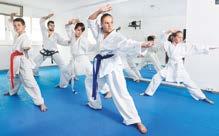
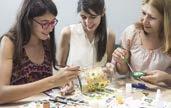
Hobbies and leisure time
Work in groups of four. What words for hobbies and interests do you know? Make a list.
Look at the pictures of other hobbies below. Do you do any of these activities at an after-school club?
In your notebook, match the words with the pictures.
a. knitting
b. pottery
c. photography d. decoupage e. martial arts
volunteering
scouting
folk dance
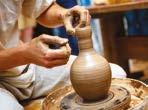
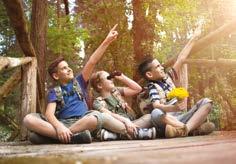

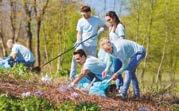
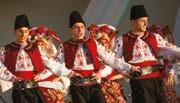

Model:
Work in small groups. Discuss the hobbies in 11. Use the conversation below as a model. The words and phrases in the box will help you. Copy the table into your notebook, add more rows and columns and take notes.
Ellie: What do you think about knitting, Asya?
Asya: I t hink it’s very interesting.
Ellie: Why?
Asya: Because I like doing things with my hands.
Ellie: Would you like to try it?
Asya: Sure. What do you think, Kiril?
Kiril: I t hink it’s boring and I don’t want to try it!
What about you, Todor?
Todor: I’m not sure about that but I think knitting’s useful.
Ellie: Yes, absolutely! It’s enjoyable and helps me to relax.
• interesting, enjoyable, useful, popular, creative
• boring, dangerous, strange, expensive, difficult
• like making beautiful objects/things with my hands
Model: Kiril thinks that knitting is boring so he doesn’t want to try it.
Asya thinks that knitting is interesting. She wants to try it because she likes doing things with her hands.
Now report to the class. 12 13
Making suggestions
Read the poster and answer the questions.
1. When does the club meet?
2. Where does it meet?
3. Who can join the club?
4. Do you have to pay to join the club?
5. Who do you need to contact to join the club?
HOW TO Agree
I agree. I think so, too. Yes, absolutely! I’m with you on that one. Disagree I don’t agree. I don’t think so. Absolutely not! I’m not sure about that.
• like being outside/active/useful
• like helping people/animals
• helps me to relax/focus/stay fit
HobbyName 1: Kiril Name 2: Asya Name 3: Todor Name 4: Ellie
knittingboring; Xinteresting; likes doing things with her hands; V useful; Venjoyable; helps her to relax; V

Everyone from Grade 7 is welcome! Join for free! Join us on the last Thursday of each month from 3:00 pm to 4:00 pm. Hristo Botev School, Room 412 October 30 The Happy Prince by Oscar Wilde November 30 Alice’s Adventures in Wonderland by Lewis Carroll January 25 Percy Jackson & the Olympians by Rick Riordan February 23
Now read and listen to the dialogue. Then practise in pairs.
Kalina: Look! There’s an English book club at school!
Martin: Really? Where? When?
Kalina: Every last Thursday of the month between 3:00 pm and 4:00 pm.
Martin: What books are they going to read?
Kalina: Let’s see.
Martin: Look, Percy Jackson & the Olympians. I’d like to read it!
Kalina: Me too. And Girl Online sounds interesting.
Martin: Shall we join the club then?
Kalina: Why not? It’d be fun to read and discuss books together.
Martin: Exactly. I know Gabi, I’ll send her an email.
Kalina: Cool!
Make suggestions
Let’s …
Shall we …?
Why don’t we …? It’d be nice/fun to … Would you like to …?
Make a similar dialogue. Use the phrases in the How to box and your own ideas.
Work in pairs. Look at the poster below. Talk with your partner about the after-school club. Use the dialogue in as a model. 14

A request and an excuse
Read the two emails and answer the questions.
• What does Gabi invite Justin to?
• What does she ask him to do?
• Did Justin take part in the event? Why? Why not?
• What does he promise to do?
Subject: English book club, first meeting 10:31 AM
From: gabriela_angel@gmail.com
To: justinthechef@ezbox.co.uk
Hi Justin,
Vicky and I are starting the English book club next Thursday. Would you like to be our native speaker? We need you to motivate us to have our discussions in English only! Can you make it next Thursday, October 30 between 3:00 pm and 4:00 pm? We’ve got a computer in the room and you can be present online!
Hope you can be there!
Gabi
PS I’m attaching the poster.
Subject: RE: English book club, first meeting 4:05 PM
Justin J J
From: justinthechef@ezbox.co.uk
To: gabriela_angel@gmail.com
Hi Gabi,
I’m really sorry for missing out on the first meeting of the English book club! I really wanted to be there, but I was at a school club myself. Jamie Oliver was visiting our baking club. I hope you understand. I know how important this meeting was to you. Vicky said it was great! But don’t worry! I promise I’ll be at the next meeting. I’d really love to be your native speaker next time :-).
Best
18 17
Imagine you have to organise or take part in a school club event (a school bazaar, a concert, a performance, a competition, etc.).
Ask a friend to support you. Use Gabi’s email as a model.
Now exchange the emails with your partner. Write a reply. Make an excuse and explain why you couldn’t go. Use Justin’s email as a model.
Strong and weak forms of was and were
Listen to these sentences. Pay attention to the pronunciation of was/were .
1. Were you happy?
2. Yes, I was.
3. Was he reading a book?
4. No, he wasn’t.
5. The boys weren’t throwing stones.
6. The prince was crying.
In short answers and negative sentences, we use the strong form of was /wɒz, ˈwɒz(ə)nt/ and were /wɜː(r), wɜː(r)nt/. In positive sentences and questions, we use the weak form of was /wəz/ and were /wə(r)/.
Listen again and repeat. Try to pronounce the forms of was/were correctly.
Grammar: the Present Continuous and be going to (revision); adverbs of probability; the Present Simple for the future
Functions: talking about fixed arrangements, plans and intentions; expressing probability and possibility; talking about timetables; asking about future plans; talking about holidays
Vocabulary: holidays
Pronunciation: silent letters

1. I’d love to go snowshoeing next winter.
In pairs, answer the questions.
Where do you usually go on holiday in winter/summer?
How do you travel when you go on holiday?
What means of transport do you know?
What is your favourite means of transport?
Look at the pictures. Read the sentences and try to guess the meaning of the words and phrases in bold.



2. Dog sledding is a popular winter activity in Sweden.
3. You can enjoy a magnificent view of the Northern Lights if the weather is clear.


Listen and repeat.
1 2 3
5. The reindeer herd is resting in the snow.
Listen and answer the question.
• W here does this extract come from: a school lesson, a TV commercial or a video tour guide?
4. The plane is going to take off any minute.

6. My dad has to solve loads of problems at work every day.
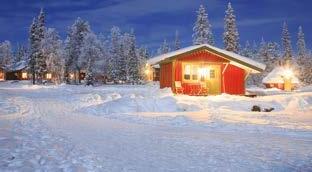
4
Listen again and say which of the activities below are mentioned in the text. camping cycling dog sledding hiking jogging sailing skiing skating snowshoeing walking
Listen to part of a conversation and answer the questions.
1. What are Alice and Justin talking about?
2. What are the Wilsons going to do during the Christmas break?

Now read the whole conversation and answer the questions.
Alice: Hey, lazybones!
Justin: Don’t disturb me – I’m trying to think!
Alice: A penny for your thoughts.
Justin: Well, Christmas is in two weeks! I want to have fun! Auntie Cherry and Uncle Tom are OK but it’s no fun spending Christmas with them each year.
Alice: Uh-huh. We’ll probably get more funny sweaters!
Justin: Yeah, and reindeer socks!
John: Hey, I think you’ve got your problem solved!
Justin: Are you kidding, Dad?
Anna: No, we’re going on holiday to Sweden!
Alice: To Sweden?
Justin: But Mum, cold is no fun!

John: I promise we’ll have fun! We’re going snowshoeing and dog sledding. And we’re sleeping in an ice hotel!
Justin: There’ll probably be nothing to eat there!
John: Relax! There’ll be snacks and delicious dinners.
Justin: Perhaps I won’t starve then.
Anna: Don’t worry! And you’ll be able to take lots of photos. We’re going to see the Northern Lights!
Justin: Now this sounds cool!
Alice: Yes, it does! When are we leaving?
John: On December 21.
Anna: The bad news is the plane takes off at 6:30 am.
Justin: No problem, Mum. We’ll have breakfast on the plane.
1. Do Alice and Justin want to spend Christmas with their Aunt and Uncle?
2. What Christmas presents do Justin and Alice get each year?
Mind the idiom! a penny for your thoughts = to ask someone who is silent what they are thinking about
3. Who is worried that it will be cold in Sweden?
4. Who thinks that the Northern Lights are cool?
5. What does Justin think about the early flight?
Now listen to three announcements from the Wilsons’ trip to Sweden. Where can you hear each announcement: at the train station, at the airport, or on the Underground?
Listen to the announcements again and choose the correct answers.
1. The passengers travelling to Stockholm are boarding a. at Gate 13. b. at Gate 33.
2. The train to Kiruna leaves a. at 5:05 am. b. at 5:05 pm.
3. The passengers on the Tube are travelling a. to Heathrow Airport. b. to Piccadilly.
STUDY TIP When you listen to airport or train announcements, always pay attention to numbers, times, and proper or geographical names.
The 24-hour clock uses the numbers 00:00 to 23:59 (midnight is 00:00).
We use the 24-hour clock to talk about bus, train and flight times.
Model:
1. The Present Continuous and be going to (revision)
Read the sentences and answer the questions.
1. We’re going to see the Northern Lights!
2. We’re flying on December 21. I bought the tickets an hour ago.
Which sentence shows the speaker is talking about a fixed arrangement? Which sentence shows the speaker is talking about his/her intention?
Now check the rules.
We use the Present Continuous to talk about fixed arrangements and plans for the future. We use be going to to talk about our general plans and intentions for the future.
We use verbs such as go , come and arrive more often in the Present Continuous. I’m going to go on holiday. = I’m going on holiday.
Read the sentences below. Decide if they describe fixed arrangements (FA) or intentions (I). Then, in your notebook, complete the sentences with the correct form of the verbs in bold: the Present Continuous or be going to .
start I’m going to start music lessons soon. (I) study I’m studying this weekend. (FA)
1. fly
The Wilsons … to Sweden on December 21.
2. meet I ... the head teacher at 9 o’clock tomorrow.
3. try Borys … zorbing soon.
4. write Gabi … Justin an email next week.
5. see Vicky and Borys … the new Star Wars film at 7:00 pm.
6. start Laura … her own fashion blog soon.
Adverbs of probability
We use adverbs of probability to show that we aren’t sure about something.
Study the sentences and answer the question.
1. We’ll probably get more funny sweaters!
2. They’ll possibly see the Northern Lights.
3. Alice probably won’t chat with Dotty every day.
4. Perhaps/Maybe Justin will be hungry all the time.
In your notebook, put the words in the correct order to make sentences. Then check with your partner.
1. will / snow / it / tomorrow / probably .
2. trip / to / their / perhaps / will / Sweden / enjoy / the Wilsons .
3. Laura / have / maybe / online / Borys / will / an / conversation / with .
4. won’t / they / match / probably / win / the .
5. next / possibly / we / week / will / you / see .
6. the / she / come / won’t / party / be able to / possibly / to .
Do you remember?
We use will to talk about future facts or to make predictions.
Where do we put adverbs of probability in the sentence?
Now match the sentences with the rules.
a. We put probably /possibly after will in positive sentences.
b. We put probably /possibly before won’t in negative sentences.
c. We usually put perhaps /maybe at the beginning of the sentence.
3. The Present Simple for the future
Study the sentences and answer the question.
1. The train to Kiruna leaves in 10 minutes.
2. The tennis match starts at 7 o’clock tomorrow.
Do the sentences refer to the future or t he present? How do you know?
Now check the rules.
We use the Present Simple to talk about bus/train/flight timetables and fixed programmes. We often use the Present Simple for the future with these verbs: begin , start, finish, arrive, leave, and end .
Each sentence below has a mistake. Say the correct verb form.
The book club meeting is starting at 3:00 pm. The book club meeting starts at 3:00 pm.
1. The last train is leaving at 10:00 am.
2. The concert is beginning at 8 o’clock sharp.
3. What time will your flight be?
4. The school bus will arrive at 7:00 am.
5. The plane is taking off in half an hour.
6. Laura’s party is starting at 6:00 pm on Saturday.
Work in pairs. Read the airport schedule below.
Then ask and answer as in the model. Use the suggestions in the box.
• When / … flight / leave?
• Which gate / it / leave from?
• What time / it / start boarding?
Now look at the list of holiday places. In your notebook, match the words with the pictures. 11 12 13 14 3
А: When does the Berlin flight leave?
B: At 13:35.
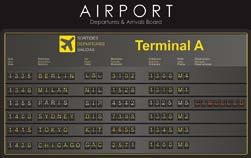
Work in groups of four. What activities can you do when you go on holiday? Make a list.
youth hostel
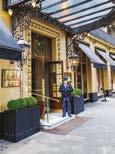

hut
ship






Say the correct words from to complete the sentences. Be careful – some words are in the plural!
1. The Mediterranean Cruise Line offers adventure and fun for adults and kids on board our largest and newest …, The Explorer
2. Auntie Cherry and Uncle Tom always stay at expensive all-inclusive … .
3. We don’t like going on holiday to large … . We prefer quiet places without huge crowds of visitors.
4. The Byivovks often go hiking in the mountains. They put up a tent at a … or stay in a … .
5. A lot of young people go on backpacking trips. They often stay at … where they can meet other travellers.
6. Last summer, we stayed at a small, cosy ... . The owners were very friendly and helpful.
7. When we go on long weekends, my parents usually rent a … . It’s cheaper than a hotel and it feels like home!
Listen and check.
campsite (BrE) = campground (AmE)
caravan (BrE) = trailer (AmE)
camper (BrE) = motor home (AmE)
Work in groups of four.
Ask your classmates the questions below, take notes and report to the class.
1. Where do you usually go on holiday?
2. Who do you go with?
3. How do you travel?
4. Where do you stay?
Model:
backpacking = travelling around with only a backpack on your back
Elena usually goes on holiday to the mountains with her family. They travel by car or camper. They stay in a mountain hut, a tent, or in the camper.

Prepositions of time: in and after
in = how long from now after = later than
We’re leaving in twenty minutes. (= We’re leaving twenty minutes from now.)
We’re going on holiday after the end of the school year. (= The school year ends and then we’re going on holiday.)
Say the correct preposition in each sentence.
1. Hurry up! The film starts … an hour.
2. Justin is meeting his friends … school.
3. I can’t talk now. I’ll call you … 10 minutes.
4. Relax! Our plane starts boarding … two hours.
5. Don’t worry. I’ll call you … 2:00 pm.
6. A: I’ll miss you!
B: I’ll be back … two weeks.
Talking about future plans
Read and listen to the dialogue. Then practise in pairs.
Dorothy: What are you going to do during the holidays?
Alice: We’re going on holiday to Sweden! Dad booked the holiday last week. I’m so excited!
Dorothy: Sweden? What are you going to do there?
Alice: We’re going snowshoeing and dog sledding.
Dorothy: Where are you staying?
Alice: At the Icehotel. It’s a hotel made of ice! Isn’t it cool?
Dorothy: Wow! It is! How are you getting there?
Alice: We’re flying to Stockholm on December 21. Then we’re taking the train to Kiruna.
Dorothy: Have fun!
Alice: Thanks!
Ask about future plans
What are you doing …?
Are you doing anything …?
What’s your plan for …?
Have you got any plans for …?
Are you doing anything …?
Have you got any plans for ...?
Barcelona/the Alps Mum/My parents last month/a couple of months ago
sightseeing/skiing and snowboarding
a self-catering flat/a guesthouse in the city centre/with a view of the mountain
flying to Barcelona driving to Kitzbuhel
Now make a similar dialogue. Replace the words and phrases in bold with the suggestions on the right and your own ideas.
Work with a partner. Choose a role card and make a dialogue. Then change roles and make another dialogue.
Imagine you’re going on holiday next week. Your parents booked the hotel and the flight last month. Answer Student B’s questions about your holiday plans.
There’s a public holiday next week. Ask questions to find out about your friend’s plans.
Holiday plans
Read Borys’ email and answer the questions.
• What is Borys doing during the holidays?
• What is he going to do?
• What will he probably do?
• When you talk about fixed plans and arrangements with other people, use the Present Continuous .
• When you talk about your intentions, use be going to
• When you aren’t sure about your plans, use probably / possibly /perhaps + will .
Subject: Holiday plans 11:14 AM
From: borys.king@gmail.com
To: a new friend
Hi, my new friend!
What are you going to do during the winter break?
We’re going on a family holiday out of town. We’re leaving on December 23. First, we’re visiting my grandparents in the Carpathian Mountains. Then, we’re going to a holiday resort. It’s called Wood Hotel Resort. We’re spending a week there. We’re going to ski and I’m going to learn how to snowboard. Perhaps we’ll visit White Elephant Observatory. I really want to see the telescopes. Write soon.
Imagine you are a member of the eTwinning project. Answer Borys’ email. Write about your holiday plans.
Silent letters
Listen and note the silent letter in each word. Copy the words into your notebook and circle the silent letters.
often guest wrong talk honest know
Now say the words below. Which is the silent letter in each word?
hour listen write guard calm knee
Listen, check and repeat.
A silent letter is a letter that we write but we don’t pronounce, such as the ‘u’ in ‘guess’.
Read the text and write the correct answers in your notebook. 1 2
Listen to the online ad and write the correct answers in your notebook.
1. The Scout Association has 450,000 members
a. in the UK.
b. across the world.
2. There are programmes for ... different age groups.
a. five
b. four
3. People aged 14 –18 are called a. Scouts.
b. Explorer Scouts.
4. The most important thing for Scouts is a. fun.
b. adventure.
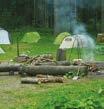
5. Which activity is NOT mentioned in the text?
a Canoeing.
b. Camping.
6. … can participate in the activities.
a. Only physically fit members


Friendship is important to everyone. According to experts, students who have lots of friends are more generous and do better at school. Today most teenagers have hundreds of people on their buddy lists on social networking sites. But are they real friends?

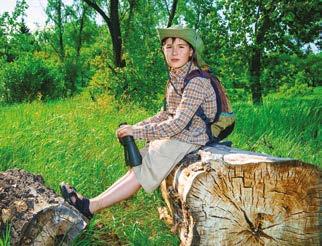
b. All members 6 p.
Virtual friends are often people you don’t really know but you ‘speak’ with by email, instant messaging or social networking, in chat rooms or while gaming. All of this is great but studies show that most of these friendships stay in the digital space – only 20% of teenagers meet their online friends in person.
With your real friends, you can share funny videos, play games, and chat all the time. But you can do so much more – go to the cinema or to a party, play basketball, or chat over a delicious pizza. You can share a secret and give a real hug, not the bear emoji! So don’t feel bad when other people have more virtual ‘friends’ than you. When it comes to friendship, quality is more important than quantity.
1. Experts say you are more successful … if you have lots of friends.
a. at school
b. in life
2. A ‘buddy list’ means
a. a list of the names of someone’s best friends.
b. a list of someone’s contacts on social networking sites.
3. According to studies, … of virtual friends never meet face-to-face.
a. 20 percent
b. 80 percent SPEAKING
Work in small groups. Think of the advantages and disadvantages of online friendship. Make a list. Choose a group speaker and write your ideas on the board. Have a class discussion.
4. With your … friends, you can do all the things you do with your … ones.
a. virtual; real
b. real; virtual
5. The author of the text thinks that it is important
a. to have as many online friends as possible.
b. to have more real friends than online friends.
6. The text is about
a. friends on social networking sites.
b. the difference between virtual and real friends.


I know how to:
use the Present Simple and the Present Continuous. use action and state verbs. use all , both and several . use the Past Simple and the Past Continuous with when and while . Now greet a friend. introduce myself. talk about friendship. use teen chat language. thank people. agree and disagree. make suggestions. make a request.
I can:
make an excuse. talk about hobbies and leisure time. talk about fixed arrangements, plans and intentions. express probability and possibility. talk about timetables. ask about future plans. talk about holidays.
use so and because . use the Present Continuous for the future and be going to . use adverbs of probability. use the Present Simple for the future.
Grammar: past participle; the Present Perfect 1: experience; ever and never
Functions: talking about somebody’s experience; giving opinions; agreeing and disagreeing with opinions; talking about books, films and music
Vocabulary: interests: books, films and music

2 1
Pronunciation: strong and weak forms of have and has fangirl film location scene sneak into shoot (v.)
Answer the questions.
Are you a film fan?
Are you a member of a fan group?
What are your favourite films and TV shows?
What kind of music do you like?
Who is your favourite singer or band?


1. My big sister is a real Game of Thrones fangirl! She watches the show every night.
3. This is a scene from one of my favourite films – The Lord of t he Rings.
Listen and repeat.

3
Listen and choose the correct answer.
1. Alice ... a blog post.
a. is reading
b. is writing
2. … thinks the two fangirls are special.
a. Alice
b. Vicky
Look at the pictures. Read the sentences and try to guess the meaning of the words and phrases in bold.

Christ Church College is a famous film location from the
4. The neighbour’s cat tried to sneak into our house yesterday.
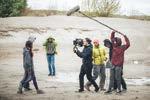
5. We had to shoot the beach scene in windy weather.
Platform Nine and Three-Quarters (Platform 9 ¾) is a fictional platform at King’s Cross Station in London. It is where students of Hogwarts School of Witchcraft and Wizardry in the Harry Potter series catch the Hogwarts Express.
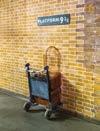
Listen again and answer the question: Who says these sentences?
1. We’re fangirls, too!
2. Check this out!
3. Have you ever been to a film location?
4. I’ve only been to one.
5. Seriously?
6. I haven’t been to any film locations!
7. You bet!
Listen to part of a blog post and answer the questions.
1. What two passions do the two Finnish bloggers have?
2. What three countries are mentioned in the blog post?
Now read the whole blog post and choose a heading.
a. Two fangirls follow favourite actors while shooting films and TV shows
b. Superfans travel around the world to recreate scenes from favourite TV shows and films


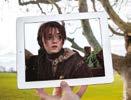

Follow me
Meet Finnish bloggers Tiia and Satu – fangirls and travellers. How do they combine their two passions? They travel around the world and take photos of famous film and TV locations. What they do is called sceneframing. One of them holds a tablet with a scene against the background while the other takes the photo. ‘No one has ever done it with tablets and phones before,’ they explain.
The pair have been to two continents to recreate their favourite film and TV scenes. They have travelled to Northern Ireland to get scenes from Game of Thrones . They have crossed England and Wales to be at the exact locations from Sherlock . They have sneaked into the St. Pancras Hotel in London to shoot a scene from Batman . They have toured the US to see locations from old and new favourites, from Forrest Gump to The Avengers They have never been to Asia, Africa, Australia, South America, and Antarctica though. The best is yet to come!
I don’t know about you, but I think these two are just brilliant!
Read the blog post again and finish the sentences.
1. Tiia and Satu have been to ...
2. They haven’t been to ...
3. They have visited film locations from ...
You must learn the past participles of irregular verbs by heart!
Look at the list of irregular verbs on p. 142 in your Student’s Book. The form in the third column is called the past participle . It is also often called the third form of the verb.
The past participles of regular verbs end in -ed and are the same as their Past Simple forms. We use the past participles to form some grammar tenses. The past participles are also used as adjectives, for example a broken leg , spoken English .
FORMS
positive
I You We They have (’ve) seen a famous person.
He She It has (’s)
yes / no questions
Have I you we they seen a famous person?
Has he she it
Answer the questions.
How do we form positive sentences?
How do we form negative sentences? How do we form Yes/No questions?
In your notebook, write the past participles of the verbs below. be have do take give meet watch see read write eat travel fly win cheat
Listen, check and repeat.
negative
I
You
We They have not (haven’t) seen a famous person. He She It has not (hasn’t)
short answers
Yes , I you we they have . No , I you we they haven’t . he she it has . he she it hasn’t .
Now check the rules.
We use have /has + past participle in positive sentences. We use haven’t /hasn’t + past participle in negative sentences. We put have /has at the beginning of Yes/No questions.
USE
Read the sentences and match them with the rules.
1. Alice has been to Platform 9 ¾.
2. Alice and Justin went to Platform 9 ¾ last year.
a. We use the Past Simple to talk about past actions when we know or understand from the context when the action took place.
b. We use the Present Perfect to talk about life experiences. We focus on what happened, not when it happened.
Model: PRACTICE
3. Ever and never
Read and compare the sentences. Then answer the questions.
1. Have you ever been to a film location?
2. Tiia and Satu have never been to Australia.
When do we use ever ? When do we use never ? Where do we put ever and never ?
Now check the rules.
We use ever in questions. We use never in statements with a positive verb. We put never and ever before the past participle.
Model:
In your notebook, write the correct Present Perfect form of the verbs in bold. read I have read three books in English.
1. watch I … Riverdale.
2. not see My parents … The Hobbit
3. read … Alice … The Hunger Games?
4. travel, not visit Alice and Justin … around Ukraine but they … Birmingham.
5. be Gabi … on stage lots of times.
6 . write … you … a fan email to a famous actor?
Listen and check.
• take a selfie with a celebrity 10 9
Listen to Alice talk about the things she has done ( V ) or hasn’t done ( X). Take notes in your notebook. Then make sentences about her. She has met a famous person.
• meet a favourite actor
• watch The Big Bang Theory
• read all the Harry Potter books
• see all the Harry Potter films
• write a fan letter or email

Sherlock Holmes (/ˈʃɜːrlɒk ˈhoʊmz/) is a fictional private detective created by Sir Arthur Conan Doyle. Holmes and his assistant Doctor Watson first appeared in A Study in Scarlet, published in 1887. The last adventure of Holmes and Watson was published in 1927. Sherlock is so popular that there are hundreds of Hollywood films, TV shows, and plays about his adventures.
Copy the chart into your notebook. Listen to a student from the eTwinning project interview Vicky. Mark the things she has done ( V ) or hasn’t done ( X) in the chart.
VickyName cheat in an exam eat octopus fly on a plane win a competition study in another country
Now work in pairs. Interview each other and mark the answers in the chart.
Model:
A: Have you ever cheated in an exam?
B: No, I haven’t.
Then report to the class.
Model:
Plamen has never cheated in an exam. He has won a competition.
Say the correct verb form: the Present Perfect or the Past Simple.
1. Tiia and Satu travelled / have travelled thousands of miles.
2. I didn’t watch / haven’t watched Riverdale last night.
3. My classmates saw / have seen all the Harry Potter films.
4. Were you / Have you been at home yesterday?
5. Have you read / Did you read a book in English?
6. Vicky and Borys studied / have studied English in London two years ago.
7. Vicky hasn’t been / wasn’t to Platform 9 ¾
Work in groups of four. What words and phrases related to books, films and music do you know? Make three lists.
Now read the eTwinning forum and try to guess the meaning of the words and phrases in bold. What is each paragraph about: books, films, or music?
PEOPLE EVENTS PROJECTS GROUPS FORUMS
МY INTERESTS
Gabi:

Julian:

Laura:

message report to moderator X
I’m a big reader. I read a lot of books on my e-reader but I like buying real paper books, too. At the moment I’m reading a fantasy retelling of Cinderella. It’s a real page-turner. I can’t put it down!
I’m into movies. The Star Wars series is my all-time favourite. I’ve seen all the episodes. They’re all blockbusters but they also have a message. My dad took me to see Episode 1 in 3D when I was 8! What I loved most about it was the special effects and the soundtrack. I felt like I was in the movie!
I’m Italian and like most Italians I love music! I’m very much into Italian music. My favourite musician is singer and songwriter Giusy Ferreri. I’ve got all her records and I’ve been to several live concerts. Most of her songs have catchy tunes and I know their lyrics by heart.
Ask and answer in pairs. Take notes, then report to the class. 14 15 16
Organise the words and phrases in in word webs. Add more words to each group.
Listen, check and repeat.

• Are you a big reader?
• If so, what books do you like reading?
• Have you read an ebook?
• What do you prefer: paper books or ebooks?
• What kind of music do you like?
• Who is your favourite musician?
• What is your favourite band?
to see a film: to see a film at the cinema to watch a film: to watch a film on TV
• Films or TV shows? Why?
• Have you watched any of the films or TV shows mentioned in this unit? Which ones?
• Have you watched the film adaptation of a book? Do you prefer the book or the film?

• Have you seen them live?
• Do you know any of their lyrics by heart?

Giving opinions
Read and listen to the dialogue. Then practise in pairs.
A: Have you seen Thor: Ragnarok?
B: Yes, I have. In fact, I saw it last night.
A: What did you think of the film?
B: It was OK.
A: OK? You must be joking! It was absolutely brilliant!
Give opinions
In my opinion … I think/believe … It was OK/not bad/all right. It was brilliant/terrific/superb. It was ridiculous/absurd/stupid.
Agree with opinions
I see your point. I can see why …
B: Hmm, I don’t quite agree. The special effects and the soundtrack were good but the story was ridiculous. In my opinion, it’s the most important thing about a film.
A: You may be right but I don’t really care about the story. I’m more into the visual stuff.
B: I can see why you liked it then
MUMMY 17 18
Disagree with opinions You may be right but … I don’t quite agree.
terrific/superb/amazing I don’t think so.
stupid/absurd/boring I think/I believe
Perhaps that’s true but I see your point.
Make a similar dialogue. Replace the words and phrases in bold with the suggestions on the right and your own ideas.
Work in pairs. Look at the film posters and read the information below. If you haven’t seen the films, imagine that you have. Discuss the films with your partner. Take turns.
Director: Bill Condon
Stars: Dan Stevens, Emma Watson, Luke Evans
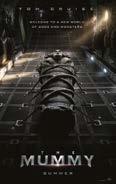
An adaptation of the fairy tale about a monstrouslooking prince and a young woman who fall in love.
Director: Alex Kurtzman
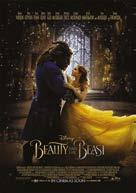
Stars: Tom Cruise, Kyiv Boutella, Russell Crowe Plot: An ancient princess is awakened from her crypt beneath the desert, bringing with her hate and terrors.
Interests
19
Read Borys’ post and answer the questions.
• What is Borys a fan of?
• Why does he like TV shows?
• What is his favourite show?
• What kind of people will enjoy the show?
20
МY INTERESTS
Borys Kyiv, Ukraine:
I’m a big fan of TV shows. I watch one of my favourite shows every night. I love TV shows because I get to see my favourite characters again and again. At the moment I’m watching The Flash. It’s an action adventure series. I’ve watched the first three seasons. I like this show because I love stories about superheroes and the characters are really cool. I recommend it to anyone who likes superhero comics and films.
Now write a paragraph about you or about Georgi or Maria. Use the information in the chart and your own ideas.
Georgi
Maria
a fan of reading music
how often they do it reads several books a monthlistens to music all the time reason for liking reading/music imagines the characters the way he wants makes her feel really good reading/listening at the moment Divergent – a sci-fi bookEd Sheeran’s new album reason for liking it Tris – a very cool character; a real page-turner; can’t put it down great singing voice; catchy tunes; loves the lyrics who will enjoy it anyone who likes sci-fi booksanyone who likes popular British music
Strong and weak forms of have and has
21
Listen to these sentences. Pay attention to the pronunciation of have /has .
1. Have you seen the film?
2. Yes, I have.
3. We haven’t sent him an invitation.
4. She hasn’t read the last book.
5. Has he won any awards?
6. Yes, he has.
In short answers and negative sentences, we use the strong form of have /hæv, ˈhæv(ə)nt/ and has /hæz, hæz(ə)nt/ In positive sentences and questions, we use the weak form of have /həv/ and has /həz/
Listen again and repeat. Try to pronounce the forms of have /has correctly.
"
Grammar: the Present Perfect 2: result; adverbs of time: frequency
Functions: talking about a past action with a result in the present; talking about household appliances; describing household chores
Vocabulary: household appliances and chores
Pronunciation: homophones 1
Answer the questions.
Do you do any housework? How often? Which activities do you like doing?
Do you get any pocket money when you do housework?




2. Everybody in my family takes part in the household chores
4. My cat has made a mess and I have to hoover the floor.
1. My sister often falls asleep on the couch. 3 1 2
Look at the pictures. Read the sentences and try to guess the meaning of the words and phrases in bold.
5. We’ve got a new robot vacuum cleaner It cleans the floor by itself. Listen and repeat. couch make a deal chores hoover (v.) robot vacuum cleaner
Listen and say which statement is true.
a. The Wilsons can get a house assistant.
b. The Wilsons can buy a robot vacuum cleaner.



3. Let’s make a deal – you clean my room and I’ll lend you my laptop for a week.

smarty-pants = someone who wants to show how clever they are in an annoying way hoover (n.) (BrE) = vacuum cleaner (n.) (AmE) hoover (v.) (BrE) = vacuum (v.) (AmE)
Listen again. In your notebook, complete the sentences with the correct names.
1. … is surprised to see Alice hoovering.
2. … is sitting on the couch.
3. … have agreed to share the household chores.
4. … has to hoover the house.
5. … has earned some pocket money.
3. How does Florance help on the farm? 6 7 4
Listen to two posts on the eTwinning forum and choose the correct answer to the question below.
• What do the two teenagers have in common?
a. They both live on a farm.
b. Both their families share the chores.
Now read three posts on the eTwinning forum and match the people with the chores.
Anja a. takes out the rubbish and waters the plants. Florance b. makes her bed, tidies her room, vacuums and dusts.
Borys c . helps prepare food and feeds the farm animals.
PEOPLE EVENTS PROJECTS GROUPS FORUMS
HOUSEHOLD CHORES
Anja Düsseldorf, Germany:

message report to moderator X
I’ve got a very small family – just my mum and me. We share all the chores. Of course, I have to tidy my room and make my bed. But I never do the ironing. Mum is responsible for cooking and grocery shopping. We always do the cleaning together on Sundays. I often help with vacuuming and dusting.
Florance Lyon, France:

I live on a farm. So there’s much more than housework to do. At home I do the washing-up. Sometimes I help make meals. Then there’s the farm work. My parents do most of it but I have to feed the cows and chickens. We hardly ever milk the cows these days because we usually do it by machine.
Borys Kyiv, Ukraine:
My family is big – mum, dad, my twin sister, our cat Memory and me. There are loads of chores and we all share equally. Except for the cat! We share both the work and the fun. I’m responsible for taking out the rubbish. I also water the plants. I don’t get extra money for doing chores but I get an extra hour of playing video games.
Read the posts again and answer the questions.
1. How many people are there in Anja’s family?
2. What chores does Anja’s mum do?
4. How do Florance’s family milk the cows?
5. What do Borys’ family share?
6. Does Borys get anything for doing his chores? If so, what does he get?
1. The Present Perfect for result
Read and compare the sentences below.
1. Alice has earned some extra pocket money. (She’s got the money now. It’s not important when she earned it.)
2. Last year, Justin earned enough pocket money to buy a new laptop. (Justin earned the money at some moment in the past.)
Now match the rules with the sentences.
a. We use the Present Perfect to talk about a past action with a result now. The time when this action happened in the past isn’t important.
Model:
In your notebook, complete the sentences with the correct form of the verbs in bold. Use the Present Perfect.
hoover Alice has hoovered the house. Now it’s clean.
1. send Justin … Gabi an email. She’s reading it now.
2. break Laura … her leg. She can’t walk now.
b. We use the Past Simple to talk about a complete action which happened at a particular time in the past, for example, yesterday , last summer , two years ago . 8 9
3. buy The Wilsons … a robot vacuum cleaner. It’s cleaning their house now.
4. make Borys … his bed. Now it looks tidy.
5. cook Alice … dinner. It smells delicious!
6. start Gabi and Vicky … an English book club. The club has 12 members.
Say the correct verb form.
1. Look, Mum! I’ve bought / bought tickets for the concert.
2. Dad lost / has lost his wallet. He can’t find it anywhere.
3. Borys didn’t eat / hasn’t eaten all the cake. There’s still some in the fridge.
4. Anna and Alice have cleaned / cleaned the windows yesterday.
5. My friends have found / found a lost dog in the park. They’re looking for its owner.
6. They won / have won the Maths competition last week.
2. Adverbs of time: frequency
Read the three posts in again. What adverbs of frequency can you find? Write them down in your notebook.
Do you remember?
We use adverbs of frequency to say how often we do things, or how often things happen.
Copy the chart into your notebook and write the adverbs of frequency.
always hardly ever
Now read the sentences below and answer the question.
1. We always do the cleaning together on Sundays.
2. Sometimes I help Mum make meals.
3. We hardly ever milk them these days.
4. I am often late for school.
Where do we put adverbs of frequency in the sentence?
Match the sentences with the rules.
a. We put adverbs of frequency after am /are /is .
b. We put adverbs of frequency before the main verb .
c. We can put some adverbs of frequency at the beginning of the sentence.
Make sentences true for you.
Use always , usually , often , sometimes , hardly ever , never and the phrases in the box.
Model:
I always walk the dog. I usually make my bed in the morning.
• walk the dog
• make my bed in the morning
• take out the rubbish
• lay the table before dinner
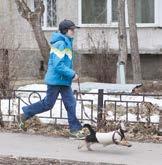
• hoover the floor on Sundays
• do the washing-up after dinner
• make meals
• water the plants
1. Household appliances
11
In your notebook, match the words with the pictures.
a. refrigerator
b. iron
c. dishwasher
d. oven
e. washing machine
f. vacuum cleaner


Listen, check and repeat.
• The first modern appeared in the 1920s.

• Hamilton Smith patented the first in 1858.
• Ives McGaffey patented the first in 1869.
2. Household chores






Now say the words in to complete these facts about household appliances. 11 12 13 14
• Josephine Cochran invented the in 1886.

• Henry W. Seely patented the electric in 1882.

• The first electric appeared in the 1890s.

Work in pairs. What words and phrases related to household chores do you know? Make a list.
In your notebook, match the phrases with the pictures.
a. set the table
b. clear the table
c. do the washing-up
d. load the dishwasher
e. hoover the floor
f. mop the floor
g. sweep the floor
h. dust the furniture
i. do the laundry
j. do the ironing
k. feed livestock
l. make a meal


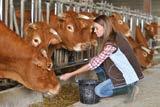




Listen, check and repeat.





Work in pairs or small groups. Do a class survey. Copy the table into your notebook. Add more chores from . First, fill in the chart about yourself. Then interview your classmates and take notes.
Do you set the table? How often?
Daniel set the table V, usuallyV, often mop the floor V, alwaysX, never do the washing-up X, hardly everV, sometimes
Model:
Then report to the class and create a class chart.
Model: I usually set the table. I always mop the floor. I hardly ever do the washing-up. Daniel often sets the table. He never mops the floor. But he sometimes does the washing-up.
make a meal feed livestock do the ironing do the laundry dust the furniture sweep the floor mop the floor hoover the floor load the dishwasher do the washing-up clear the table set the table
Read and listen to the dialogue. Then practise in pairs.
A: Oh, how time flies! Your birthday party is tomorrow!
B: I know, Mum. I’m really excited!
A: Let’s check if the preparation is going as we’ve planned, shall we?
B: OK. I think I’m almost ready.
A: Have you tidied your room?
B: Yes, I have. And I’ve put up some decorations.
A: Have you hoovered the floors?
B: No, I haven’t. I’ll do it after school tomorrow. What about you, Mum? Have you ordered the cake?
A: Yes, I have. But I haven’t bought any candles. I’ve bought the drinks and snacks, though.
B: Have you made the pizza bread?
A: No, I haven’t. I’ll make it tomorrow There’ll be delicious fresh pizza!
B: I can’t wait!
A: So we’ve got almost everything settled! I’m sure the party will be great!
B: Me too, Mum!
Now make a similar dialogue. Replace the words and phrases in bold with the suggestions on the right and your own ideas.
Student A:
You and Student B are organising a Christmas party for your class.
Read the list of things you have to do and decide which of them you have already done.Then talk to Student B and find out what he/she has done.
• decorate the Christmas tree
• make Christmas cake
• make Christmas cards for everybody
• book the school gym
• ask a classmate (choose a name!) to be the DJ
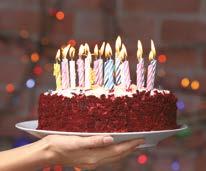
The Halloween party on Saturday Dad made your costume tidied your room on Saturday morning Dad bought the fireworks pumpkins bought masks for the guests buy them tomorrow There’ll be a surprise for you, too! things are going as planned
Dad
Work in pairs. Choose a role card and make a dialogue. Then change roles and make another dialogue. You can use the dialogue in as a model. 16
You and Student A are organising a Christmas party for your class.
Read the list of things you have to do and decide which of them you have already done. Then talk to Student A and find out what he/she has done.
• put up decorations
• make Christmas biscuits
• send invitations
• invite the class teacher
• ask to borrow your dad’s music system
Describing household chores
Read Laura’s homework and answer the questions.
• What are Laura’s chores?
• What are Carolina’s chores?
• What are Michele’s chores?
Hi, my name is Laura. My family is quite big and we all share the chores. My brother Michele takes out the rubbish. He also hoovers and mops the floor on Saturdays. My sister Carolina walks our dog every morning. She also waters the plants. I clear the table and load the dishwasher after dinner.
I usually help Mum with the grocery shopping. Mum cooks and does the laundry. Dad repairs anything broken at home and sometimes cooks meals.
In your notebook, match the words that are pronounced in the same way.
1. seen 2. read 3. passed
Listen and repeat.
Write a paragraph about the household chores in your family. If you prefer, use the pictures below and write about the Byivovks. Use the paragraph in as a model.
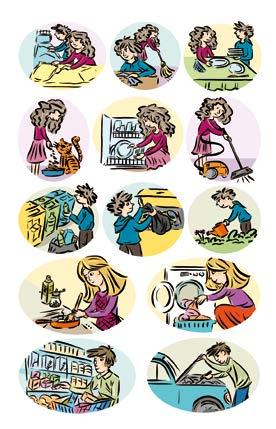
Homophones are words that are pronounced in the same way but are spelled differently. The past tense forms and past participles of some verbs have homophones.
Grammar: defining relative clauses 1: who (that ), which (that), where; adjectives ending in -ed/-ing; adverbs of degree: extremely , rather , quite
Functions: describing festivals and traditions; greeting informally; making and answering requests; saying goodbye
Vocabulary: festivals and traditions
Answer the questions.
What is your favourite celebration?
Have you ever been to a festival?
What kind of festival was it?
Did you enjoy it?

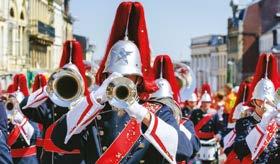
Pronunciation: adjectives ending in -ed annoyed masquerade frightening shadow groundhog harvest burrow straw
1. a day or period of celebration, usually for religious or cultural reasons
2. an organised event of concerts, plays, or films, usually held at the same place each year

1. They’re wearing fancy costumes and masks because they’re going to a masquerade

2. The little girl is looking at her shadow on the grass.
Listen and repeat. W O R D B O X festival, n. 1 3 2
Look at the pictures. Read the sentences and try to guess the meaning of the words in bold.



3. I got really annoyed because the guy next to me was talking on his mobile phone during the film.
The kitten heard a frightening noise and got scared.

Listen and say which statement is true.
a. Vicky joins in the online conversation with Laura.
b. Borys and Vicky went to the Carnival of Venice.

5. The farmer is working hard during the harvest 6. The craftsman is making a straw hat.
7. The groundhog is coming out of its burrow

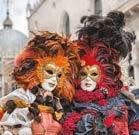
6 4 5
The Carnival of Venice is an annual festival held in Venice, Italy. The festival is worldfamous for its fancy masks.
Greet informally
How are things?
How are you doing?
How’s life?
Listen again and answer the question: Who says these sentences?
1. It’s been a while. How are things?
2. I’m rather annoyed!
3. I’m so excited to finally meet her!
4. And how are you two doing?
5. It’s a masquerade.
Answer informally
I’m fine. I’m well. I’m doing great.
6. Wow! These masks are amazing!
7. Some of them were quite frightening!
8. We all know you’re afraid of your own shadow!
Listen to a text about a celebration and answer the questions.
1. Who dresses up as a straw bear?
2. Where are the participants from?
Now read about three celebrations and match the headings with the paragraphs.
a. Pereberia
b. Groundhog Day, Pennsylvania, the USA
c. Straw Bear Festival, Cambridgeshire, the UK
Come to Whittlesea on the second weekend of January and you’ll see a giant straw bear walking around the streets. This is a custom which dates back to at least 1882. According to tradition, a local farm worker dresses up as a straw bear and walks around the town to entertain people. Over 250 dancers, musicians and performers from various parts of the British Isles join in the parade. For three days, the participants wear traditional colourful costumes, and some even paint their faces black! The festival finishes with a special ‘bear burning’ ceremony to celebrate the new harvest.


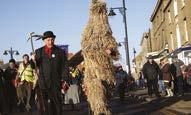

On February 2 every year, people look at groundhog burrows across America very carefully because they believe that groundhogs have magical powers to predict seasonal change. According to folklore, if it is cloudy, the groundhog will come out of its burrow and spring will come early. If it is sunny, it will return to the burrow and winter will continue for six more weeks. The tradition of watching the groundhog dates back to the 18th century. The biggest celebration these days is in Punxsutawney, Pennsylvania –the state where the tradition originated.
In the village of Vashkivtsi, in Ukraine's Chernivtsi region, there's a festival known as the Pereberia carnival. This festival happens on January 13th and 14th, celebrating the Old New Year and Malanka. Pereberia start on the evening of January 13th and continue all through the night and the next day.
The main goal of the festival is to see which neighborhood in the village can create the best masks and unique costumes.
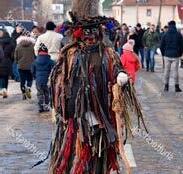
Pereberia concludes with a traditional dip in the local water reservoir. According to old beliefs, people used to do this to protect themselves from evil forces. In summary, the Pereberia carnival is a fun festival that attracts many locals and tourists. It showcases participants' creativity and humor while celebrating local traditions.
Read the paragraphs again and answer the questions.
1. What time of the year do the events take place?
2. Which event lasts only one day?
3. Which is the oldest tradition?
4. Which two events include dancing and wearing special costumes?
5. Which two events celebrate the harvest?
1. Defining relative clauses 1: who (that) , which (that) , where
Study the sentences below. Then answer the questions.
1. Participants of Pereberia in Vashkivtsi are men and women who (that) wear scary masks and costumes.
2. This is a custom which (that) dates back to at least 1882.
3. Pennsylvania is the state where the tradition originated.
What words do we use for people? What words do we use for things? What word do we use for places?
Now check the rules.
We use who (that) for people. We use which (that) for things. We use where for places.
A clause is a group of words which has a verb. A clause can be a complete sentence or part of a sentence. We use relative clauses to give important information about a person, a thing, or a place. We often use relative pronouns (e.g. who , which , where , that ) to introduce relative clauses.
In informal speaking or writing, we often use that instead of who and which
Say the correct relative pronouns to complete the sentences.
1. I don’t like people who / which don’t keep their promises.
2. Pereberia is a festival that / where attracts thousands of participants.
3. A blogger is a person which / who writes a blog.
4. The hotel where / who the Wilsons stayed in Sweden was made of ice.
5. Vicky doesn’t like books that / who have unhappy endings.
6. What is the name of the TV show which / who is on tonight?
8 9 10
2. Adjectives ending in -ing / -ed
Read the sentences and answer the questions.
1. It’s the most exciting festival I’ve ever been to.
2. The festival was awesome. I was very excited.
What does an adjective ending in -ing describe?
What does an adjective ending in -ed describe?
Now check the rules.
Adjectives ending in -ing describe a person or thing. Adjectives ending in -ed usually describe your feelings about a person or thing.
Model:
In your notebook, make pairs. Then listen, check and repeat.
amused – amusing
amazed amused annoyed bored disappointed exhausted frightened interested relaxed surprised tired worried
amusing interesting amazing disappointing frightening annoying boring exhausting relaxing surprising tiring worrying
Say the correct adjective to complete the sentences below.
1. Laura was exciting / excited to see Vicky.
2. My parents were worrying / worried by my test results.
3. I’m amazing / amazed that John has been to the Carnival in Rio.
4. Some masks are quite frightened / frightening.
5. Borys is interesting / interested in sports.
6. Thor is the most boring / bored film I’ve ever seen.
7. My brother never tidies his room. It’s very annoyed / annoying.
3. Adverbs of degree: extremely, rather, quite
Look at the cartoons. Then read the rules.

stressed quite stressed rather stressed extremely stressed
Rather is stronger than quite and weaker than extremely . Extremely is the strongest adverb of degree of the three.
Look at the cartoons. Say the correct adverbs of degree: extremely , rather , or quite . noisy
Festivals and traditions
Work in pairs. What festivals and celebrations do you know? Make a list. What do people do then? What do they eat? Make two word webs.
In your notebook, match the festivals and traditions with the pictures. When do people celebrate them? Write down the dates, too.
a. New Year’s Eve
b. Mother’s Day
c. April Fool’s Day
d. Bonfire Night
e. Remembrance Day
f. Valentine’s Day
g. Father’s Day
h. Halloween

Listen, check and repeat.



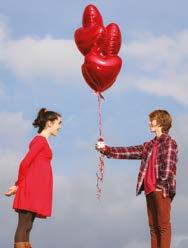



Say the festival or tradition from to complete the sentences below.
1. … is the third Sunday in June. Children send cards or buy gifts for their fathers.
2. On … people in Great Britain make bonfires and watch fireworks.
3. … is the last day of the year. In Scotland, 31 December is called Hogmanay.
4. … is at the end of October. The pumpkin has become its symbol. Children dress up and go trick or treating.
5. On … people in love exchange cards and gifts.
6. On … people remember those who died fighting for the UK and its allies.
7. In the UK, … is the Sunday three weeks before Easter. Children send cards or buy gifts for their mothers.
8. On … people play jokes on each other until midday.
Listen and check. 13 14 15
Making new friends at a festival
Read and listen to the conversation. Then practise in pairs.
Alfred: Excuse me, can I ask you a favour?
Borys: Sure. How can I help you?
Alfred: Can you take a picture of me with the participants of Pereberia, please?
Borys: Of course! OK, are you ready? Say ‘cheese’.
Alfred: Thank you!
Borys: Are you enjoying the festival?
Alfred: Oh, yes! It’s amazing! Have you been to Pereberia before?
Borys: Yes, I have. We watched it last year, too.
Alfred: Cool! I’m Alfred, by the way. Nice to meet you!
Borys: I’m Borys. And this is my twin sister Vicky. Nice to meet you!
Vicky: Hi, Alfred!
Alfred: Hi, Vicky!
Vicky: Where are you from, Alfred?
Alfred: I’m from Germany. I live in Berlin. Have you ever been there?
Vicky: No, we haven’t. But we’d like to go!
Alfred: It’s a very exciting city. Come and visit!
Borys: Thanks! We’d love to.
Alfred: I’ve got to go! It was great talking to you, guys! Cheers!
Borys and Vicky: Bye!
Now make a similar conversation.
Replace the words and phrases in bold with your own ideas.
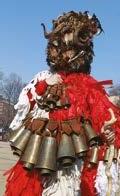
HOW TO Make requests
Can you …, please? Will you …, please? Is it all right if you …? Answer requests Sure. Of course. Certainly. Sorry, but … Well, I’m afraid …
HOW TO Say goodbye
Bye-bye. Cheers! See you later. Talk to you later. Take care.
Work in pairs. Choose a role card and make a dialogue. Then change roles and make another dialogue. You can use the conversation in as a model.
You are a foreign student visiting Ukraine. You are at a festival (for example, a town fair, a music festival, a Christmas celebration, etc.).
Think of an excuse to start a conversation with a local teenager. Introduce yourself and chat to him/her. Then say goodbye.
Describing a tradition
Writing an e-greeting
Read Justin’s email and answer the questions.
• What do people in Wales celebrate on March 1?
• What do they do?
• What do people pin to their clothes?
You are at a festival (for example, a town fair, a music festival, a Christmas celebration, etc.).
A foreign student starts talking to you. Introduce yourself and chat to him/her. Then say goodbye.
Subject: Greetings from Cardiff 3:31 PM
From: justinthechef@ezbox.co.uk
To: gabriela_angel@gmail.com
Hi Gabi, How are you doing?
Greetings from Cardiff! I’m visiting my grandparents here.
It’s a very special day today. It’s Saint David’s Day.
St David is the patron saint of Wales. On March 1, we also celebrate Welsh culture. People usually go to church, take part in parades, listen to choirs or Welsh literature readings. In schools, there are celebrations, too.
Children and some adults wear traditional costumes. People often pin a daffodil or a leek to their clothes. These are symbols of Wales.
Cheers, Justin
PS I’m sending a photo!

Answer Justin’s email on behalf of Gabi. Or you send him an email. Write about a Ukrainian tradition we celebrate at the end of February. Use the suggestions in the box and your own ideas. Follow the model in .
• Masliana is a unique Ukrainian tradition
• celebrate the end of winter and welcome spring
• make a straw effigy
• a straw effigy is a symbol of winter
• at the end of February – burn a straw effigy
Now read Justin’s e-greeting and then write an e-greeting on Masliana to him. Draw or stick Masliana picture.
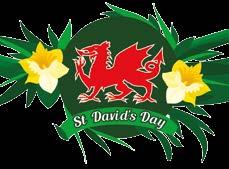
Adjectives ending in -ed
In your notebook, copy the table and put the adjectives ending in -ed into the correct column. amazed amused annoyed bored disappointed exhausted frightened relaxed stressed surprised tired interested worried excited
Happy St David’s Day! Dydd Gŵyl Dewi Hapus!
LOL, I know you don’t speak Welsh but that’s how we say ‘Happy St David’s Day!’. It’s pronounced ‘Deethe goil Dewi hapeece’.
Justin
Listen and check.
Listen to a radio programme and write the correct answers in your notebook.
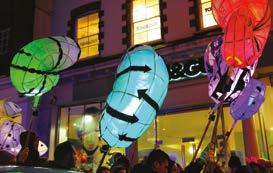

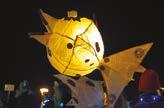
Read the text and write the correct answers in your notebook.
A fandom is a group of people across the world who are fans of a film, a book or a TV show. The word fandom comes from fan and the last part of the word ‘king dom ’ –a country which has a king or queen. There is a huge difference between being a fan and being part of a fandom. A fandom is a living community – people in it share the same interests and talk to each other about the thing they love. Fandoms usually keep in touch on social media.
The biggest and most active fandoms today are of book and film series such as Harry Potter, The Hunger Games and Lord of the Rings. Some TV shows also have large fandoms. The biggest are the fans of Doctor Who and of Sherlock, starring Benedict Cumberbatch.
1. The Burning the Clocks festival celebrates … of the year.
a. the shortest night
b. the shortest day
2. The festival takes place
a. every year.
b. every two years.
3. There are … participants in the lantern parade.
a. 20,000
b. 2,000
4. What does NOT change?
a. The clock face on the costumes.
b. The theme of the costumes.
5. The lantern is a symbol of
a. the passing of time.
b. people’s hopes and dreams.
6. Participants burn … on a bonfire.
a their costumes
b. their lanterns
Some fans are really creative. They write new stories about their heroes. These are called fan fiction. Others create fan art –drawings, graphics, and photo montages.

1. A fandom is made up of
a. a group of close friends.
b. people from all over the world.
2. Fans and fandom members are
a. very similar.
b. very different.
3. People in fandoms talk about
a. the book, film or show they love.
b. their lives and interests.
Work in pairs or small groups. Talk about your experiences (for example, A: Have you ever travelled abroad? B: Yes, I have. I’ve been to Greece. A: When did you go? B: Two years ago.). Use the ideas in the box and your own ideas.
4. Fandom members usually communicate
a. face-to-face.
b. on social media.
5. Today, the biggest fandoms are of a. TV shows and book series.
b. book and film series.
6. The stories that fans create are called
a. fan fiction.
b. fan art.
I know how to:
talk about my experience. give opinions. agree and disagree with opinions. talk about books, films and music. talk about a past action with a present result.
I can:
• travel abroad
• ride a horse
• have a pet • win a competition • run a marathon
• meet a famous person
• write a fan email
• eat sushi
talk about household appliances. describe household chores. describe festivals and traditions. greet informally. make and answer requests. say goodbye.
use the Present Perfect for experience and result. use ever and never . use adverbs of frequency.
use defining relative clauses with who , which , that and where use adjectives ending in -ed/-ing use adverbs of degree: extremely , rather , quite
Take this quiz. Be honest!
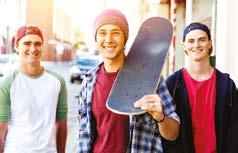
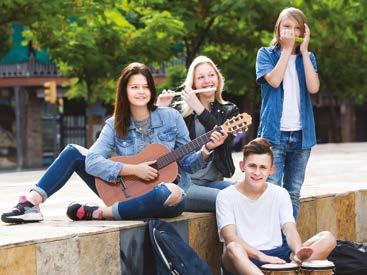
We use they instead of he/she , their instead of his/her and them instead of him/her when we don’t know the sex of the person we are talking about.
підручника видавництво"
1. You and your best friend have a project to do but they aren’t doing their share of the work. You …

A . … do their share of the work and don’t discuss it with them.
B . … talk to them about the project and plan on how to divide it up and give the final presentation together.
C . … tell the teacher.

2. It’s the day before a big test and your friend isn’t ready. They call you and you …
A . … tell them not to worry – they can copy from your test.
B . … offer to study together.
C . … hang up – you’ve got a lot of studying to do.
3. Your best friend spends a lot of time with some other friends and you’re a little jealous. You …
A . … start hanging around with them everywhere.
B . … talk to your friend about how you feel.
C . … find yourself a new best friend.
4. Your best friend calls you up to complain about a terrible thing that has happened to them in the Maths class. You …
A . … listen carefully to their complaints and don’t mention your horrible day.
B . … tell them you are sorry and try to cheer them up.
"
C . … spend thirty seconds listening to them and then start talking about your problems.
5. Your best friend’s birthday is coming up and you need to get them a present. You …
A . … get them something they like very much, even if it’s more expensive than you can afford.
B . … give them an album with photos of the two of you together.
C . … buy them that new CD you like very much. Perhaps they won’t like the band but you do!
6. A classmate’s having a party. They have invited you, but not your best friend. You …
A . … don’t go to the party. Best friends go to parties together!
B . … go to the party but tell your friend it wasn’t fun without them.
C . … go to the party and don’t tell your friend about it.
To see your results, turn the page upside down. Do you agree with them?
Discuss in small groups.
Search the Internet for songs about friendship, for example, Queen’s Friends Will Be Friends. Listen to several other songs and choose the one you like best. Search for its lyrics as well. What is the message of the song? Do you like it? Why? Why not?
Create a friendship net. Write the names of your friends and stick photos. Add some information about each of your friends:
• name
• age
• interests
• how you met them
• what you have done together
If some of your friends know each other draw a line to connect the two.

Advice: Next time you hang out with your best friend, make it their day – let them choose where to go and what to do, talk about their life. It’s just one day, but it’s a day they’ll never forget!
Mostly C. Don’t you think you’re a bit selfish? Your life is all about me, me, me… Just one problem – friendship is all about us, us, us
Advice: Save a little bit of your pocket money. Treat yourself and your best friend to something really special. You deserve it!
Mostly B. Congratulations! You’re reliable, patient, loyal and understanding. You know what real friendship is!
Advice: Spend one day all by yourself, doing stuff that you love!
Mostly A. Extreme friendship! Your best friend is happy to have you – you’re always there for them. But remember – being a good friend sometimes means being a good friend to yourself!
Friendship quiz – answer key:
Grammar: the Present Perfect 3: just , already and yet ; been and gone
Functions: talking about things you’ve already/ just done or haven’t done yet; describing historic and natural sites; talking about tourist experience
Vocabulary: historic and natural sites
Pronunciation: homophones 2 ceiling disabilities
Answer the questions.
Have you got any relatives who live abroad?
Where do they live?
Have you ever visited them?
Look at the pictures. Read the sentences and try to guess the meaning of the words and phrases in bold.

1. Mum is painting the ceiling of my room.
Listen and repeat.

2. At the Cooper’s Hill Cheese -Rolling Race, participants run down a steep slope
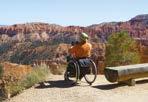
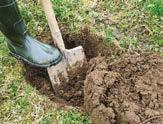
Listen and answer the questions.
1. Where is Georgi?
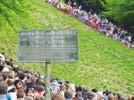
3. Most national parks in Ukraine are friendly to people with disabilities.
4. The man is digging a hole to plant a tree.
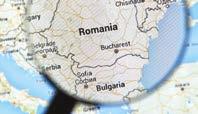
5. The River Prut forms the border between Ukraine and Romania.
2 . What is he doing there?
3. How does he feel?
Now read Georgi’s email. Then look at the photos. Which places hasn't Georgi been to yet?

Subject: Ukraine tour 4:05 PM
From: optimus_prime@gmail.com
To: Vicky, Gabi, Justin and seven others
Hello bookworms,
Greetings from Ukraine! How are you? Have you finished reading the April book of the month yet?
I’ve already finished it but don’t worry, I won’t give away any spoilers!
I’m having a great time visiting my cousins in Kyiv! I’ve been to some amazing places. Yesterday we visited the Golden Gates. They’re awesome!
We’re now sightseeing in Kyiv, or the City of Golden Domes as people sometimes call it. We’ve just climbed the Castle Hill – the view from there is just terrific! We haven’t been to St Volodymyr’s Cathedral yet. We’re going there tomorrow!
The day after we’re taking a trip to Vinnytsia to see Mykhailo Kotsiubynsky’s House & Museum. Btw they’ve got the best varenykys here in Kyiv!
See you soon!
Georgi
PS I’m sending you some photos.
Ukraine is known as the “breadbasket of Europe” because it has historically been a major producer of wheat for many European countries. Wheat from Ukraine was exported across Europe for centuries and used for bread-making by many different cultures.




Do the quiz. In your notebook, match these places of interest with the facts about them. 1. Mount Rushmore National
2. The Niagara Falls
3. Edinburgh Castle
4. The Lake District National Park
5. The Tunnel of Love
6. St Sophia Cathedral
Listen and check.
a. is a UNESCO World Heritage site.
b. a picturesque site in Rivne region popular with romantics and honeymooners
c. is one of the most popular tourist attractions in North America.
d. is a huge mountain sculpture of four US Presidents.
e. offers Britain’s greenest countryside and grandest views.
f. was home to Scottish kings and queens.
Work in groups of three. Copy the chart into your notebook. Each student reads two texts about a country and completes the chart.
Student A reads about Ukraine.
Student B reads about the UK.
Student C reads about the USA. Then Student A tells Students B and C about Ukraine.
Students B and C write down the information in their charts. Change roles.
The Tunnel of Love
Ukraine UK USA
Historic site St. Sophia Cathedral
What to do: join or order a guided tour, take photos and videos
When to visit:
Natural site
What to do:
When to visit:
The Tunnel of Love is a natural phenomenon in Rivne region in the west of Ukraine. It is believed that a couple in love can make a wish together and if their love is real then the wish will come true. The Railway of the Tunnel of Love stretches for 1 km. The unique landscaping of the Tunnel of Love was created by nature. Branches of trees intertwined to form the walls and ceiling of the Tunnel. You may go to the Tunnel of Love at any time of the year by a Romantic Train which allows tourists and visitors to feel unbelievable experiences and create a romantic sensual atmosphere.
St Sophia Cathedral
St Sophia Cathedral was built in the early 11th century. Originally it was a tomb of Kyivan rulers including Volodymyr Monomakh and Yaroslav I the Wise, and today it is a UNESCO World Heritage site. The cathedral is worldfamous and is one of the greatest works of Medieval architecture. In 2007, St Sophia Cathedral was named one of the Seven Wonders of Ukraine. Visitors are allowed to get a guided or individual tour, take photos and videos and buy souvenirs.

Edinburgh Castle


Edinburgh Castle is one of the most exciting historic sites in Western Europe. The castle was home to Scottish kings and queens. To learn about its rich history, take advantage of the free guided tours or pay for an audio guide in several languages. Edinburgh Castle sits at the top of a steep slope but there is good access for people with disabilities. The castle is open daily all year round except for December 25 and 26.

The Lake District National Park offers Britain’s greenest countryside and greatest views. It is home to England’s highest mountain, Scafell Pike, where you can enjoy walking, hiking or climbing. Close to Scafell Pike is Wastwater – England’s deepest lake, where you can participate in watersports such as swimming and kayaking. The Lake District was made for cycling – you can choose between off-road mountain biking routes or gentle country lanes. You can enjoy the adventures of the park any time of the year.

The Niagara Falls is one of the most popular tourist attractions in the state of New York. The Niagara Falls is made up of three waterfalls – American Falls, Horseshoe Falls and Bridal Veil Falls. They are located on the Niagara River on the border between Canada and the USA. There are a number of ways to see the Falls: you can take a boat trip, fly above them in a helicopter, enjoy the view from an observation tower or see them from behind in caves where only an elevator can take you. The best time to visit the Niagara Falls is from June to August.

Mount Rushmore National Memorial
Mount Rushmore National Memorial is a huge mountain sculpture of four US Presidents, located near Keystone, South Dakota. Work on the project began in 1927 and was completed in 1941. It is a great place for outdoor adventure and sightseeing. Visitors can also learn about the history of the area. You can visit Mount Rushmore National Memorial all year round, seven days a week, except for December 25.
1. Тhe Present Perfect: just, already and yet
We often use the adverbs just, already and yet with the Present Perfect.
Read and compare the sentences. Then match them with the rules.
1. Have you finished reading the book of the month yet?
2. I’ve already finished it but I won’t give away any spoilers!
3. We’ve just climbed the cathedral Bell Tower.
4. We haven’t been to the Tunnel of Love yet.
a. We use already for things that have happened earlier than expected. We usually put already after have/has.
b. We use yet when we expect something to happen. We usually put yet at the end of questions and negative sentences.
c. We use just for something that happened a short time ago. We usually put just after have /has .
We usually use already in positive sentences. We usually use yet in negative sentences and questions.
Read the list of NYC attractions Georgi wants to visit. In your notebook, write sentences using already and yet.
• do some sightseeing in Kyiv V
• climb the St Sophia Bell Tower V
• have a walk along Khreshchatyk X
• visit Mykhailo Kotsiubynsky’s House & Museum X
• cross Paton BridgeV
• watch a match at the National Stadium X
• take the Kyiv Funicular X
Model:
He has already climbed the St Sophia Bell Tower. He hasn’t had a walk along Khreshchatyk.
Now ask and answer in pairs.
A: Has he climbed the St Sophia Bell Tower yet?
B: Yes, he has. Has he had a walk along Khreshchatyk yet?
A: No, he hasn’t.
In your notebook, complete the dialogues. Use the Present Perfect and just take A: What a great photo! B: Thanks. I’ve just taken it.
1. start
2. come in
A: Have you finished the book yet? B: No, I … .
A: Let’s go out. B: But we … .
3. have breakfast A: I’m hungry. I’ll make a sandwich. B: But you … .
4. come back A: Have you been to the shops today? B: Yes, I … .
5. arrive
2. Been and gone
A: I need to go. Bye! B: But you … .
Read the sentences and answer the questions.
1. Georgi has gone to Ukraine.
2. Georgi has been to the Carpathians.
Which sentence means that Georgi is still there now?
Which sentence means that he went somewhere but he isn’t there anymore?
Now check the rules.
We use been when a person went to a place but has already come back.
We use gone when a person is still there or on his/her way.
Model:
Say been or gone to complete the sentences.
A: Where’s Daniel? B: He’s gone to the cinema.
1. A: Is Vicky going to the library?
B: No, she’s already … there.
2. Georgi isn’t here now. He’s … to Ukraine.
3. Justin and Alice are back in England now. They’ve … to Sweden.
4. Gabi is on holiday. She’s … to an action camp.
5. Where has Borys …? He isn’t in his bedroom.
6. Mum’s … to the hairdresser’s. Her hair looks gorgeous!
10 11
Historic and natural sites
Work in small groups. What words for geographical features and places in town do you know? Make a list for each group.
In your notebook, match the words with the pictures.
a. memorial
b. observation tower
c castle
d. tomb
e. national park
f. giant oak
g. cliff
h. gorge
i. peak


Listen, check and repeat.
Listen and check. 11 12





Say the words from to complete the sentences. Be careful – some words are in the plural!


1. Thousands of people join in the celebrations of Taras Shevchenko birthday at Shevchenko ... .
2. Hanging over Niagara Gorge, Prospect Point ... offers spectacular views of the Niagara Falls.
3. There is an ancient ... on the hill.
4. The Egyptian Pyramids are ... of ancient rulers, called pharaohs
5. The Polessk... is famous for the Korolyov Astronautics Museum nearby and a lot of beautiful places.
6. For a unique rock climbing experience, explore any ... in the Carpathians.
7. The Avalanche Creek … is a very nice path along the river with spectacular sections and small waterfalls.
8. The snow-covered ... of the Himalayas are magnificent.
9. Maksym Zaliznyak Oak is a ... tree located in Cherkasy Forest, Ukraine. It is one of the oldest (1100 years) trees in Europe.
видавництво"Ранок"
Talking about tourist experiences
Read and listen to the dialogue. Then practise in pairs.
Laura: Hi, Borys!
Borys: Hi, Laura. How’s your trip? Are you enjoying London?
Laura: Absolutely! I’ve been to lots of interesting places.
Borys: Have you visited any museums yet?
Laura: Yes, I’ve already visited the British Museum and the Natural History Museum
Borys: Have you been to the London Eye?
Laura: No, I haven’t. But I’m going there tomorrow. I’ve just been to Green Park. It’s beautiful.
Borys: Sounds like you’re having a great time!
Laura: I am. Listen, I’ve got to go now. Talk to you soon!
Borys: Bye! Enjoy the rest of your holiday! And send me a postcard!
Laura: Thanks! I certainly will!
the Science Museum Madame Tussauds London Aquarium
Hyde Park/Kew Gardens fun
See you bring me a souvenir
Make a similar dialogue. Replace the words and phrases in bold with the suggestions on the right and your own ideas.
Work in pairs. Choose a role card and make a dialogue. Then change roles and make another dialogue. You can use the dialogue in as a model.

You are a member of the eTwinning project. You are talking to Student B – a friend from the project who is visiting Ukraine. Ask him/her questions to find out what sites he/she has visited. Use your general knowledge about Ukraine.
You are a member of the eTwinning project. You are visiting Ukraine. You are talking to Student A – a Ukrainian friend from the project. Answer his/her questions about the sites you’ve visited. Use your general knowledge about Ukraine.
Describing a historic site
• what you can do – walk around the restored house; learn about his life and work 16 17 18 15
Read Georgi’s homework and answer the questions.
The Mark Twain House & Museum is located in Hartford, Connecticut, the USA. It was the home of American writer Samuel Clemens (Mark Twain). He and his family lived there from 1874 to 1891. There he wrote his most famous works, including ‘The Adventures of Tom Sawyer’ and ‘The Prince and the Pauper’. The picturesque house was built in the Gothic style. You can walk around the author’s restored home and learn about his life and work.
Write a paragraph about the house and museum of a Ukrainian writer. Use the suggestions below or your own ideas.
Mykhailo Kotsiubynsky’s House & Museum
• located in Vinnytsia – the writer’s birthplace
• opened as a museum in 1927
• a great collection of illustrations to his books
• Mykhailo spent his childhood and teenage years there
• museum – see the author’s possessions and copies of his works

• When did Mark Twain live in this house?
• What did he do there?
• What can you do at the House & Museum?
Homophones 2
In your notebook, match the words that are pronounced in the same way.
1. cereal
2. sight
3. meat
4. blue 5. bye
6. hi
7. hear
8. right
9. threw
10. peace
a. meet b. blew
c. serial
d. write e. here f. piece
g. site h. through i. high
j. buy
Listen and repeat.
In your notebook, write the correct pronunciation next to each pair of homophones.
/hɪə(r)/ /ˈsɪəriəl/ /baɪ/ /saɪt/ /miːt/ /haɪ/ /raɪt/ /piːs/ /bluː/ /θruː/
Grammar: must and should ; defining relative clauses 2: whose and when ; a few /few ; a little /little
Functions: asking for and giving advice; talking about healthy/unhealthy food and eating habits; following a recipe; congratulating people; describing my favourite healthy meal
Vocabulary: food; cooking verbs
Pronunciation: long words
Answer the questions.
What are your favourite foods? Do they help you to stay healthy?
Look at the pictures. Read the sentences and try to guess the meaning of the words in bold.

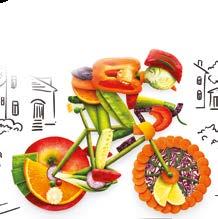
1. To make the right food choices, always read the information on the label carefully.




2. Chicken soup is a healthy and nutritious dish.
3. Meat, seafood, eggs and dairy products are rich in protein.
4. Junk food is full of unhealthy carbohydrates. 5. Fats are an important source of energy for our bodies.

3 4 2 1
Listen and choose the correct answer.
1. Alice has already eaten
a. a nutritious lunch. b. a cereal bar.
2. Justin has got a. a healthy cooking blog.
b. a healthy eating blog.
6. Porridge is a healthy breakfast choice because it contains lots of fibre.

7. Milk, yoghurt and cheese are high in calcium. Listen and repeat.
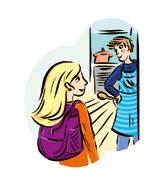
Listen again and say true or false. Correct the false sentences.
1. Alice shouldn’t buy cereal bars because they’re expensive.
2. Only Justin’s classmates read his blog.
3. Some of Alice’s friends are interested in Justin’s club.
4. Alice wants to become a member of the club.
5. Alice changes her mind because she likes David.

Listen to part of a discussion on Justin’s blog and answer the questions.
1. Why is Angie writing to Justin?
2. What is Justin’s opinion of her choice?
Now read the whole discussion on Justin’s blog and answer the question.
• Which of the following should a healthy breakfast have? carbohydrates juice protein fats sugar fibre GRAMMAR SPOT
Angie says: Reply
Dear Justin, I need advice. For breakfast I have a bowl of cornflakes with milk and sugar and a glass of OJ. I feel hungry and tired an hour later. What should I do? You’re someone whose opinion I trust!
Justin says: Reply
Dear Angie, your breakfast’s got a few teaspoons of sugar but little fibre and no protein or fat. In fact, it does more harm than good!
You should have а more nutritious breakfast and you shouldn’t eat so much sugar. Morning is a time when you need to get energy to last you all day!
You must try this: a bowl of oats with milk, walnuts, frozen blueberries, and a little honey. Yummy and good for you! Oats are rich in good carbohydrates. These are food for your brain. Walnuts add healthy fats and protein and give you power. Real fruit like blueberries have less sugar and more fibre than OJ. Milk's got calcium and extra protein. Good luck!
Read again and answer the questions.
1. What does Angie have for breakfast?
2. According to Justin, what is the problem with Angie’s breakfast?
1. Must and should FORMS
3. What should she have for breakfast instead?
4. Why are oats a good breakfast food?
5. Which foods have got protein?
6. Why is fruit better than orange juice?
I must arrive at school at 7:00 am. I mustn’t be late for my classes.
We use must when we feel that something is important or necessary. We use mustn’t when it is important NOT to do something.
Should I you he/she/it we they eat more fruit and vegetables?
short answers
Yes , No , I you he/she/it we they should . shouldn’t.
wh - questions
What should I you he/she/it we they eat to stay healthy?
We use should or must to give advice. Read the sentences and match them with the rules.
1. You must go for a walk every day.
2. You should eat more fruit and vegetables.
3. You shouldn’t spend so much time in front of the computer.
a. We use should or must to say it is a good idea to do something.
b. We use shouldn’t to say it is a bad idea to do something.
In your notebook, match the statements with the advice.
1. I’m very tired.
2 . Mum will be mad at me.
3. Alex has got really bad toothache.
4. I’ve got a headache.
5. They’re unfit.
6. My little sister has got lots of cavities.
f. He should see the dentist asap. yes / no questions
Listen and check.
We use should to give advice. We use must to give strong advice. 8 9
a. You shouldn’t watch TV.
b. She shouldn’t eat so many lollipops.
c. They should do more exercise.
d. You shouldn’t stay up late.
e. You should tell her the truth.
Work in pairs. Read the menu and make dialogues between a customer and a waiter. The waiter gives advice to the customer. Take turns. The customer’s lines are given on p. 77.




Model:
Customer: I only eat fish. Which main course do you suggest? Waiter: I think you should try the Grilled trout.
• I only eat fish. Which main course do you suggest?
• I’m not very hungry. What starter can you recommend?
• What vegetarian dishes can you recommend?
• I’m allergic to dairy products. Which salads can I have?
• I’d like to try the desserts but I don’t eat chocolate. What do you suggest?
• I want a main course but I’ve got only £10. What can I have?
2. Defining relative clauses 2: whose and when
Study the sentences below. Then answer the questions.
1. You are someone whose opinion I trust.
2. That’s the magazine whose title Granny always forgets.
3. I remember the day when I decided to stop eating junk food.
Say the correct relative pronoun: who or whose to complete each sentence.
1. Justin is the teen blogger … blog has thousands of followers.
2. I like people … are friendly and generous.
3. These are the boys … bikes were stolen this morning.
4. Georgi is the boy … spent the Easter holidays in the USA.
5. Nikola Tesla was an inventor … ideas changed the world.
6. What was the name of the boy … sent you a Valentine?
11
What word do we use for people? What word do we use for things? What word do we use for time?
Now check the rules.
We use whose for people and things. We use when for time.
Say the correct relative pronoun: where or when to complete each sentence.
1. Summer is the time … all my friends are out of town.
2. This is a picture of the tomb … you can see some magnificent wall paintings.
3. Borys will never forget the day … he tried zorbing.
4. June 6th was the day … I met my favourite actor in the street.
5. South Dakota is the state … you can see Mount Rushmore National Memorial.
6. This is the place … you can have the best smoothies in town.
А few/few ; a little/little
Compare the sentences and match them with the rules.
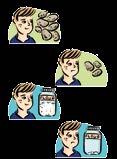
1. Justin has got a few potatoes. He can make moussaka.
2. Justin has got few potatoes. He can’t make any moussaka.
3. Justin has got a little flour. He can make a cake.
4. Justin has got little flour. He can’t make a cake.
a. A few and a little have a positive meaning. We use them to say that there is a small number or amount of something.
b. Few and little have a negative meaning. We use them to say that there is almost nothing of something
Study the sentences again and answer the questions.
What nouns do we use a few/few with? What nouns do we use a little/little with?
Now check the rules.
We use a few/few with countable nouns. We use a little/little with uncountable nouns.
1. Food
12
In your notebook, write a few or a little to complete each sentence.
1. A: Let’s buy some ice cream.
B: Sure! I’ve got … money on me.
2. There are … chocolates left. Would you like some?
3. Have you got … time to help with the housework?
4. Alice has to do … chores at weekends.
5. My homework has … mistakes.
6. Granny always takes … honey in her tea.
13 14 15
Work in small groups. What words for foods and drinks do you know? Make lists. In your opinion, which of them are healthy? Which of them are unhealthy?
Say the correct word to complete each sentence.
1. Justin has got a few / few good friends. He’s very lucky.
2. Borys can speak a little / little Italian. All he can say is ‘How are you?’.
3. John’s exhausted. He’s slept a few / few hours after a long flight.
4. I can’t do all this work by myself. I need a little / little help.
5. The test was very difficult so a few / few students passed it.
6. Mum does a little / little housework on weekdays because she takes shifts.
Read the eTwinning forum and look up the words and phrases in bold in a dictionary. Then put them into the word webs.
Being hungry
Expressions describing how we eat
Laura:

Justin:

Georgi:

Alice:

message report to moderator X
I usually have yummy home-cooked food at weekends. I have a sweet tooth so I always ask Mum to bake a cake or make tiramisu. On weekdays, my parents are quite busy so most of the time I eat ready meals and takeaways
I try to make my friends realise that healthy eating can be fun! You should try to have a balanced diet and eat fresh fruit and vegetables a few times a day. But don’t feel bad about that burger you had last week – a little junk food won’t kill you!
I do a lot of sports and I usually eat like a horse. That’s OK because I burn all of the energy when I train. But in the evenings, I often eat a quick snack because I’m bored, not because I’m dying of hunger. I want to change that.
Our lunch break at school is too short. I’ve got barely enough time to grab a bite and go back to classes. By 3 o’clock I’m starving and I have a snack or two.
My brother says these are ‘health’ foods secretly loaded with sugar. Yuck!
Listen, check and repeat.
Work in pairs or small groups. Ask and answer the questions below.
1. What is your favourite home-cooked dish?
2. Do you often eat ready meals and takeaways?
3. Do you have a sweet tooth? What kind of sweets do you prefer?
4. Do you like junk food? How often do you eat it?
5. Do you read food labels? Should we read them? Why? Why not?
2. Cooking verbs
What cooking verbs do you know? Make a list.
In your notebook, match the verbs with the pictures.
a. add
b. stir
c. pour
d. chop
e. boil
f. serve
g. mix
h. slice
i. peel
j. grate



Listen, check and repeat.








ZAPIKANKA This is a delicious Ukrainian recipe I’ve learned from my grandma.
1. ... 4 large potatoes, an onion and a carrot.
2. ... and fry the onions and carrots.
3. ... the minced meat and cook until ready. ... salt and pepper to taste.
4. Cut the potatoes into cubes. ... them with the meat. ... in some tomato sauce.
5. Put the mixture into a large baking pan and cook for 40 minutes.
6. ... 4 eggs and 200 grams of yoghurt and ... on top of the zapikanka. Cook for another 10 minutes.
7. ... the zapikanka hot.

Asking for and giving advice
Read and listen to the dialogue. Then practise in pairs. Say verbs from to complete the recipe. Then put the pictures in the correct order.
Gabi: Hey, Justin! I’ve read your latest blog post – it’s awesome, as always! You’re the best!
Justin: Thanks, Gabi. I’m trying. How are you?
Gabi: I’m doing OK but I’m very busy. I’ve got lots of homework and after-school activities. At weekends, I take private lessons I’m preparing for my final exams, you know.
Justin: Are you sure you’re doing OK? You’re probably tired all the time?
Gabi: Yep, I’m exhausted!
Justin: I’m sorry, Gab. I think you should rest more. And healthy food can also help you have more energy.
Gabi: Hmm, do you think so? What should I eat?
Justin: Well, for example, you should have lots of nuts They’re good for your brain.
Gabi: That’s easy! I love nuts.
Justin: You should also eat fruit and vegetables at least two times a day. And don’t forget water! You must drink eight glasses of water.
Gabi: Hey, that’s a lot of water!
Justin: Trust me! You’ll feel much better!
Gabi: Thanks. You rule!
Justin: You’re welcome! Stay in touch!
Congratulate people
You rule!/You rock! You’re the best! Congrats!
rehearse a lot a new play a balanced diet eggs and meat ’ve got lots of protein eggs and meat drink smoothies because they’ve got vitamins and fibre rock
Now make a similar dialogue. Use your own names. Replace the words and phrases in bold with the suggestions on the right or your own ideas.
Work in pairs. Share a problem with your partner and ask for advice. Your partner gives some advice. Choose from the suggestions below and use your own ideas.
Use should /shouldn’t .
Model:
Student A: I feel tired all the time. What should I do?
Student B: I think you should go to bed earlier. You shouldn’t stay up so late.
• feel tired all the time
• nervous about my appearance
• like someone
• feel lonely
• haven’t got any trendy clothes
• send him/her a Valentine/not hide your feelings
• go to bed earlier/not stay up so late
• save a bit of pocket money/not spend all your pocket money on snacks
• try to find new friends/not stay at home all the time
• make a list of things you like about yourself/not compare yourself to others
Listen and repeat. In your notebook, put the words into the correct column.
Listen and check.
My favourite healthy dish
Read Georgi’s homework and answer the questions.
• How often does Georgi eat Shopska Salad?
• Is Shopska Salad easy to make?
• Do you slice the tomatoes and cucumbers?
• Do you chop the onions and peppers?
My favourite healthy dish is Shopska Salad. My mum makes it two or three times a week. It’s just got a few ingredients: tomatoes, cucumbers, peppers, onions and cheese. Most people eat the salad with salt and olive oil. It’s very easy to make Shopska Salad. You cut the tomatoes and cucumbers into large cubes. Then you slice the onion and peppers. You add parsley and mix the ingredients. You grate some cheese on top. It’s yummy!
Now write about your favourite healthy dish. Follow the model above.
important healthily nutritious calcium blueberry cereal tomato unhealthy ingredient potato vitamin lollipop
Grammar: the Present Perfect 4: since and for ; the Present Perfect and the Present Simple Functions: talking about sports and leisure activities; planning to do something together; expressing preferences; describing a sportsperson
Vocabulary: sports and leisure activities
Pronunciation: compound nouns

Listen and repeat. 2
Look at the pictures. Read the sentences and try to guess the meaning of the words in bold.
coach earphones spoil sunscreen superb
4. You must wear sunscreen. I’m sure you don’t want to get sunburn.
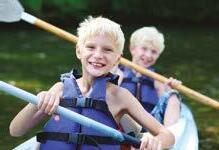
Answer the questions.
Have you ever been to a summer camp? If so, where did you go? What can you do at a summer camp? Which water sports do you know?
Have you ever done any of them?

1. The coach patiently explained the rules of the game.

2. I’m afraid the rain will spoil our hike.

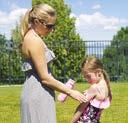
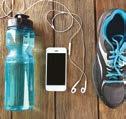

3. I never go jogging without my mobile phone and earphones
5. A: The view of the lake is superb. B: Yes, it’s excellent!
Listen and match the people with the sports.
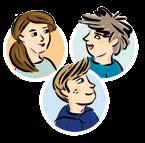
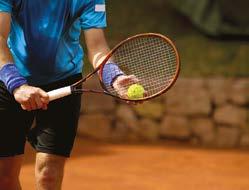
6. How can mobiles spoil someone’s holiday? 4 6 5 3
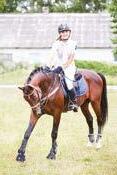

Listen again and say the correct name: Anja, Justin or Borys to complete the sentences.
1. … has done the sport since he/she was 9.
2. … has played the sport for a month.
3. … has done the activity for a couple of years.
4. … is quite good at the sport and hopes to be a famous player one day.
5. … adores the sport but doesn’t like competitions.
6. … loves the activity because it helps him/her relax.
Listen to part of a letter and choose the correct statement.
a. Alice is at a camp.
b. Alice was at a camp.
Now read the whole letter and answer the questions.
The Island, Bembridge 18 July

Dear Mum,
I’ve been here for five days now. The weather has been great since I arrived. The camp is awesome!
I’ve done lots of things since I arrived here. The camp water sports are great. I’ve already done some kayaking and canoeing. I’ve improved my swimming technique a lot. Tomorrow I’m going horse-riding. I’ve already met my horse. I’ve also played tennis twice. The allweather courts here are superb and the coach is really patient.
Don’t worry about me. I’ve had a lot of fresh fruit and salad and I’ve put on my sunscreen regularly since the first day.
See you soon.
xxxx
Alice
PS I can’t believe I haven’t had a mobile for five days and I haven’t used a computer!
Like in the ‘old days’, eh? All mobiles are kept at the camp office. These are the camp rules. My coach says: ‘Mobiles don’t add much to the holiday experience and can spoil things, especially when they get lost.’ Perhaps she’s right.
1. How long has Alice been at the summer camp?
2. What water sports has she done?
3. How many times has she played tennis?
4. Does she like the tennis coach?
5. Has Alice got a mobile phone?
1. The Present Perfect: since and for
Read the sentences and choose the correct option.
1. Alice has been in Bembridge for five days.
a. She is still there.
b. She isn’t there anymore.
Now check the rules.
Do you remember?
We use the Present Perfect to describe an activity that started in the past and continues up to the present.
2. Alice has been in Bembridge since Friday.
a. She isn’t there anymore.
b. She is still there.
We use since and for with the Present Perfect. We use since to talk about a specific past moment (last Monday, this morning, 2020, yesterday). We use for to talk about a period of time (three years, four hours, a long time, a month, years).
We use How long …? and the Present Perfect to ask about an activity which someone started in the past and is still doing now.
A: How long have you known Alice? B: I’ve known her since last year/for a year.
Say since or for to complete the sentences.
1. Alice hasn’t seen her family ... five days.
2. Borys hasn’t chatted with Laura ... last Wednesday.
3. Alice hasn’t used her mobile ... she arrived at the camp.
4. Justin hasn’t cooked moussaka ... a week.
5. Gabi has lived in Kyiv … her family moved in.
6. Vicky has known Gabi ... four years.
Model:
Complete the sentences. Make them true for you.
1. I’ve known my best friend for … .
2. I haven’t done any homework since … .
3. I haven’t eaten anything since … .
4. I haven’t had a cold for … .
5. I haven’t been on holiday since … .
6. I’ve had my mobile for … .
2. The Present Perfect and the Present Simple
Compare the sentences and match them with the rules.
1. Gabi lives in Kyiv.
2. Gabi has lived in Kyiv for four years.
3. I don’t watch TV very often.
4. I haven’t watched TV since Sunday.
a. We use the Present Simple to talk about states and habits. We usually use it with time expressions like every day , at weekends , always , often , never , etc.
b. We use the Present Perfect to talk about an activity which someone started in the past and is still doing now. We always give the period of time (for a week, for a month, for a year) or a specific moment in the past (since yesterday, since 2020, since I was seven).
In your notebook, write sentences as in the model. It’s cold. (yesterday) It’s been cold since yesterday. I don’t eat junk food. (ten days) I haven’t eaten junk food for ten days.
1. We know Vicky and Borys. (three years)
2 I don’t ride my bike very often. (several months)
3. Granny and Grandpa don’t often see me and my sister. (last summer)
4. Justin has a new mobile. (two weeks)
5. I don’t have any free time. (15 September)
6. Gabi is a member of the drama club. (four years)
Sports and leisure activities
Work in small groups. What words for sports do you know? Make a list.
Match the words with the pictures.
a. archery
b. water polo
c . fencing
d. darts
e. orienteering
f. caving
g snorkelling
h. zumba


Listen, check and repeat.


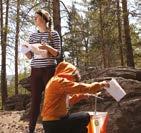
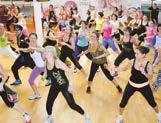
Say the words in to complete the sentences.




1. There are a lot of great places for and near my hometown.



2. , and help you become coordinated and focused.

3. is a great way to stay fit and have fun.

4. lets you discover an amazing underwater world.

5. If you love swimming and team sports, is the ideal sport for you.
Read the three advertisements for summer camps and answer the questions below.

Abberley Summer Camp offers a wide variety of activities to challenge all campers. Activities change each week so they can be fun for people who stay for more than one week. Come and visit us from
8 July to 19 August.
We offer you football, basketball, dodgeball, archery, fencing and darts.
Arts fans can choose between musical theatre, zumba, street dance, yoga, decoupage and song writing.

Then Ardmay Outdoor Centre is the right place for you! Join us from 24 June to August 11 and experience the gorgeous outdoors of Loch Long. Activities like climbing, caving, orienteering, gorge walking and forest walking will bring you closer to nature and to each other in a fun and safe environment.
1. Which summer camp offers water sports?
2. Which summer camp is a great place for adventure?
3. Which summer camp offers sports and arts?
4. When can you go to Abberley Summer Camp?
5. When can you visit Ardmay Outdoor Centre?
6. When can you take part in Holiday Courses?
7. Which camp gives you an opportunity to make friends?
8. Which camp promises to bring you closer to nature?
9. Which camp offers different activities every week?

Holiday Courses offer the perfect opportunity to try something exciting, make new friends, and have lots of fun. We offer a variety of courses during the Easter and summer holidays. The activities include windsurfing, kayaking, water polo and snorkelling. Each course is one week long and takes place Monday to Friday, from 9:30 am
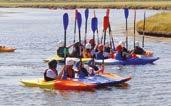
Now work in pairs. Each of you chooses a summer camp you’d like to visit. Don’t tell its name to your partner. Ask him/her questions to find out what he/she has chosen.
Planning to do something together
Express preferences I prefer … to … I’d love to … I wouldn’t mind …
Do you prefer …? Do you want to …?
Read and listen to the dialogue. Then practise in pairs.
David: I need to get fit.
Alice: Me too. Let’s exercise together!
David: Sure, why not. What kind of sports do you prefer?
Alice: I’m not sure. Maybe swimming or tennis.
David: I prefer swimming to tennis. It’s a great sport and it helps me relax. Is there a swimming pool we can use?
Alice: There’s one at the school’s sports centre, but we have to check when it’s open.
David: Cool. What about hiking? We can also do that from time to time.
Alice: I love hiking but I haven’t done it for ages.
David: So we can try hiking – it’ll be fun! And do you want to try caving?
Alice: Oooh, I’d love to.
David: I’ve got a friend who goes caving every weekend. We can join his caving club.
Alice: That sounds fun! And if we take up all three, we’ll soon be as fit as fiddles!
David: I wouldn’t mind that at all! Think about it and I’ll call you tomorrow.
Alice: OK. Bye!
David: Bye!
Now make a similar dialogue. Replace the phrases in bold with the words and phrases on the right and your own ideas.
Work in pairs. Read the poster for a community sports club. Choose a role card and make a dialogue. Then change roles and make another dialogue.
Mind the idiom! as fit as a fiddle = very fit and healthy
basketball, zumba is fun to play court
jogging/cycling
orienteering/rock climbing look like cover models That’s not bad
Archery Tue, Thu, 11 am – 12 am Fencing Mon, Wed, 4 pm – 5 pm
Karate Tue, Thu, Sat, 10 am – 11am Street Dance Tue, Thu, 5 pm – 6 pm
Volleyball Mon, Wed, Fri, 6 pm – 7 pm Yoga Mon, Wed, Fri, 7 am – 8 am Zumba Mon, Wed, Fri 4 pm – 5 pm

You want to join a sports class. Invite Student B to join, too. Discuss what classes you both like. Make sure the time is convenient for both of you.
Describing a sportsperson
Student A invites you to join a sports class.
Accept his/her invitation. Discuss what classes you both like. Make sure the time is convenient for both of you.
17 18
Read the paragraph and answer the questions.
• Who is Grigor Dimitrov?
• How long has Grigor played tennis?
• When did he win his first championship?
• What is Grisho into?

My favourite sportsperson by Borys Byivovk
My favourite sportsperson is Grigor Dimitrov. He is a world-famous tennis player. His nickname is Grisho. He was born in 1990.
He has played tennis since he was five. His first coach was his father. He won his first championship when he was 14. He has won a lot of tournaments since then. Grisho speaks English and is interested in cars and computers.
He says: ‘When you have big dreams, work hard and put all your heart into it, that’s how you get results!’
Write about your favourite sportsperson or another famous person you like. Use the paragraph in as a model. 17
Compound nouns
A compound noun is a noun that is made up of two or more words. Most compound nouns are combinations of noun + noun (bathroom) or adjective + noun (whiteboard). The two parts of the compound noun can be written together, with a hyphen (-) or separately. In both noun + noun and adjective + noun combinations, the stress is usually on the first word: bathroom /ˈbɑːθrʊm/, whiteboard /ˈwaɪtbɔːd/
19
Listen and repeat.
sunscreen horse-riding summer camp swimming pool
Copy the words into your notebook and underline the stressed word.
headphones street dance mobile phone water polo
Listen and check.
Listen to the text and write the correct answers in your notebook.

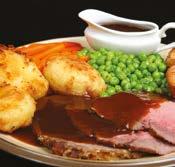
1. The text describes school lunches in
a. two countries.
b. three countries.
2. Japanese schools serve
a meals cooked by parents.
b. meals similar to homemade food.
3. In France, … are made early and then sent to a dietitian.
a. meals
b. menus
4. The dietitian adds vegetables and protein
a. to replace sugar.
b. to make meals balanced.
5. Roast beef with gravy, carrots, potatoes and peas is
a. an example of a healthy lunch meal.
b. a meal often served in British schools.
6. The school lunches in … are healthy and balanced.
a. two of the countries
b. all three countries 1 2
Read the article and write the correct answers in your notebook.


The Paralympics, short for Parallel Olympics, are a big international sporting event for people with disabilities. The Games take place every four years just after the Olympic Games in the same host city. The first Paralympics took place in 1960 in Rome, Italy. 400 athletes from 23 countries competed. Nowadays, 4,000 athletes from 170 countries take part in the Games.
Paralympic athletes are professional sportspeople who have trained hard for many years and come to the Games to win. Some Paralympic athletes have competed in both the Paralympic and the Olympic Games. Polish table tennis player Natalia Partyka is one of the few Paralympic athletes to qualify for the Olympics. She competed in both games in 2008, 2012 and 2016.
Natalia was born in 1989 without a right hand. When she was seven, she started playing table tennis. Natalia was the youngest athlete at the Sydney Paralympics in 2000. She has won Gold four times in a row – at the Paralympics in Athens, Beijing, London and Rio. No other table tennis player has ever achieved her success.
1. The Paralympics take place … the Olympics.
a. after b. before
2. The Paralympics and the Olympics are held
a. in different cities.
b. in the same city.
3. Today, … athletes compete in the Paralympics.
a. four hundred
b. four thousand
Work in pairs or small groups. One of you has a problem. Your classmates give you advice. Then change roles. Choose from the situations in the box.
4. Natalia Partyka is ... athlete with disabilities to qualify for the Olympics.
a. is the only
b. isn’t the only
5. In 2016, Natalia took part
a. in the Olympics.
b. in the Olympics and the Paralympics.
6. Natalia is unique because
a she has won Gold at four Paralympics in a row.
b. she has taken part in four Paralympics in a row.
• Your best friend has lied to you.
• Your parents won’t let you go on a school trip.
• You want to buy a new video game but it’s too expensive.
• You are stressed and tired.
• You want to get fit.
• You are bored and you haven’t got plans for the weekend.
talk about things I’ve already/just done or haven’t done yet. describe historic and natural sites. talk about tourist experience. ask for and give advice. talk about healthy/unhealthy food and eating habits.
I can:
use the Present Perfect with just , already and yet use been and gone use must and should for advice. use defining relative clauses with whose and when .
follow a recipe. congratulate people. describe a favourite healthy dish. talk about sports and leisure activities. plan to do something together. express preferences. describe a sportsperson. use a few/few and a little/little use the Present Perfect with since and for use the Present Perfect and the Present Simple correctly.
Grammar: indefinite pronouns: place; future time
clauses with when ; prepositions of movement
Functions: talking about ecotourism; asking for and giving directions, describing an eco-friendly holiday
Vocabulary: ecotourism
Pronunciation: international words
Answer the questions.
Read the sentences and try to guess the meaning of the words in bold. 2 1
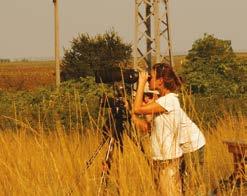
Do you know of any volunteer organisations in Ukraine?
Do you think it’s a good idea to volunteer during the summer holidays?
WORDS IN ACTION
Look at the pictures.

Listen and repeat.

reeds approved
lagoon migration white stork
3. Tall reeds grow along the river bank.

1. On the western side, there is a large lagoon, separated from the sea by sand. W O R D B O X change one’s mind = take on a different opinion or plan
2. Bird migration is one of the great wonders of the natural world.

4. Georgi’s visa application was approved
5. The white stork winters in Africa.

Listen again and answer the question: Who says these sentences?
1. We’re preparing for our final exams.
3
Listen and answer the questions.
1. Where is Justin going during the summer holidays?
2. Who is he going with?

2. Hey, but you don’t even like birdwatching!
3. I’ve changed my mind.
4. Well, we’re going somewhere cool!
5. Come on, don’t keep us waiting!
6. ... we’re going to see thousands of birds in migration!
7. Can we join you?
8. It’s going to be hard work!
Listen to part of a web page and say which statement is true.
• The web page is about
a. bird migration.
b. a nature conservation camp.
Now read the whole web page and answer the questions.
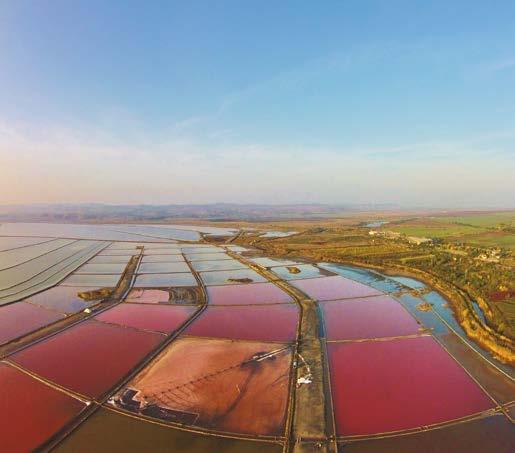

Volunteers from around the world will gather at the salt lagoon to help the conservation of this unique hotspot of biodiversity.
White storks, mute swans and pink pelicans fly over the lagoon during their autumn migration. The site attracts the largest number of several other protected species that fly across Europe on their way to Africa. It is home to about 100 species of insects, 7 species of land molluscs and more than 50 species of birds.

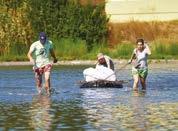
This year’s challenge to volunteers will be the construction of a giant nesting and roosting platform. Then the volunteers will cover the platform with reeds that they will harvest themselves.
To apply, please, fill in the application form. You’ll receive a confirmation email when your application is approved.
If you are under 18, you are welcome in the company of an adult.
NB! Please note that volunteers will be able to enter the camp area when they show the confirmation email.
1. When do the birds visit the salt lagoon?
2. What will the volunteers cover the platform with?
3. How can volunteers apply?
4. Can you attend if you are under 18 years of age?
5. What do volunteers have to do to enter the camp area?
Browse the web page and find words that match the definitions below.
1. the protection of wildlife, forests, water and soil
2. the variety of organisms living in a given place
3. a very busy, popular place of interest
4. building a nest and laying eggs
5. going somewhere to rest or sleep
Listen, check and repeat.
1. Indefinite pronouns: place
Study the sentences and answer the questions.
1. If you find a baby bird, keep it somewhere warm and quiet.
2. Do you know anywhere I can hire a bike?
3. Justin has looked everywhere for his mobile. He can’t find it anywhere
4. These island species are found nowhere else on earth.
Which pronouns mean ‘in a place’?
Which pronoun means ‘in all t he places’?
Which pronoun means ‘in no place’?
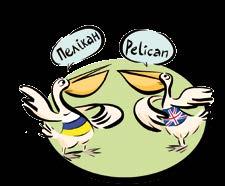
Some English words are very similar to their Ukrainian equivalents. They can help you understand a text. But be careful because they aren’t pronounced the same way. For example: lagoon, pelican, migration.
PEOPLE THINGS somebodysomeonesomething anybody anyone anything nobodyno onenothing everybody everyone everything
Which pronoun do we use in questions and negative sentences? Which form of the verb do we use with nowhere?
Now check the rules.
Somewhere and anywhere mean ‘in a place’. We usually use anywhere in questions and negative sentences. Everywhere means ‘in all the places’. Nowhere means ‘in no place’. We often use it together with ‘else’. We use a positive verb with nowhere .
Say somewhere , anywhere , everywhere and nowhere to complete the sentences.
1. John’s looked … for his glasses.
2. We didn’t go … at the weekend.
3. Are Justin and his dad going … cool during the summer holidays?
2. Future time clauses with when
Study the sentences below and answer the questions.
When they show the confirmation email,
4. We have to tidy up. There’s rubbish … .
5. I’m so bored. Let’s go … exciting.
6. A: Where did you go yesterday? B: …, I stayed at home.
Do you remember?
A clause is a group of words which has a verb. A clause can be a complete sentence or part of a sentence.
You’ll receive a confirmation email when your application is approved. volunteers will be able to enter the camp area.
What tense do we use in the main clause? What tense do we use in the time clause?
Now check the rules.
To talk about the future, we use the Future Simple (will + infinitive) in the main clause. we use the Present Simple in the time clause.
Say the correct form of the verbs in brackets.
Model:
Justin (cook) dinner when he (get) home. Justin will cook dinner when he gets home.
1. Borys (call) Laura when he (have) some free time.
2. The volunteers (receive) a confirmation email when they (fill in) the form.
3. Justin and his dad (hire) bikes when they (arrive) in Mykolaiv.
4. When they (harvest) the reeds, the volunteers (cover) the platform.
5. Justin and John (see) birds in migration when they (come) to Ukraine.
6. When Alice (meet) Dorothy, she (tell) her about David.
Ecotourism
Read the text about ecotourism. Try to guess the meaning of the words in bold. Then look them up in the Wordlist at the end of your Student’s Book.
habitat carbon footprint litter (n.) extinct environmentally friendly mass tourism damage (v.) sustainable
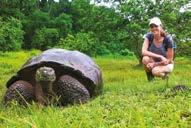

Nowadays, living green has become an important part of our lives. A great number of people do their best to live in a sustainable way. This means that they try to damage the environment as little as possible. They recycle, use public transport or cycle to school or work, and buy locally produced food. They want to have environmentally friendly holidays, too.
Ecotourism is the opposite of mass tourism People travel to faraway places to see animals and plants in danger of becoming extinct in their natural habitat. Ecotourists travel in small groups and stay in local houses. They are encouraged to respect the customs and traditions of the people who live there. Ecotourists should preserve the local environment by cleaning up their litter and not picking wild flowers or disturbing animals. Tourists should also think about their carbon footprint. They can reduce it by walking instead of using motor vehicles, or by using less water and turning off electricity.

In your notebook, match the words in with their definitions.
1. no longer existing
2. not harmful to the environment
3. the natural environment in which an animal or a plant usually lives
Now listen to the words in bold and repeat.
4. using methods that do not harm the environment
Prepositions of movement: across, through , over , along , past
5. the amount of CO2 that someone’s activities produce
6. rubbish such as plastic bags that people have dropped on the ground in public places
7. to harm or spoil something
8. large numbers of visitors going to one place often at the same time of year
Listen and check.
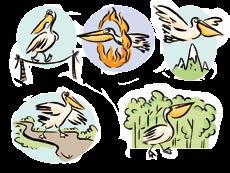
across along past through over
Say the correct preposition in each sentence.
1. Go … the path until you see the observation point.
2. Some countries build wildlife tunnels under busy roads for animals to pass … .
3. Walk … the bank and the shops, then turn left and you’ll see the theatre.
4. Lots of birds fly ... the oceans to find food and better weather conditions.
5. The little boy jumped … the puddle.
Asking for and giving directions
Read and listen to the dialogues. Then practise in pairs.

John: Excuse me, is there a bank near here?
Passer-by: Yes, there’s one in Castle Hill Street. Go straight ahead. Take the first right onto Green Street. Then turn right at the traffic lights. Walk past the post office and you’ll see a bank on your right, opposite the restaurant.
John: Thank you.
Justin: Excuse me, could you tell me the way to the shopping centre?
Passer-by: Yes. Go along High Street, and then turn left at the roundabout. Walk past the gym and you’ll see the shopping centre on the left, opposite the cinema.
Justin: Thanks.
Justin: Is there a café near here?
Now make similar dialogues. Choose other buildings and places on the map to ask for and give directions.
Passer-by: Go across the car park and then turn left. Walk past the library and it’s on your right, opposite the theatre.
Justin: Thanks.
Work in pairs. Draw a map of some important places in town such as the hospital, the post office, the town hall, etc. Student A is a visitor to your town, Student B is a local. Ask for and give directions. Then change roles.
Describing an eco-friendly holiday
Read Justin’s email and answer the questions.
• When is Justin coming to Ukraine?
• What fun activities is he going to take part in?
• Who will probably join Justin and his dad?
Now read the two web pages. Imagine you’re Gabi or Georgi and you’re going on one of the trips. Write an email to Justin and tell him about the trip. Use the information on the web pages or your own ideas. Follow the model in . 9:20 PM
Subject: Coming to UA soon
From: justinthechef@ezbox.co.uk
To: gabriela_angel@gmail.com and Georgi
Hi, Gab and George! How’s life?
I’ve got some great news! Dad and I are coming to Ukraine in August. We’re going to take part in the conservation camp at Solonets-Tuzly Lake. For one week, we’re going to build a platform for the birds and watch the autumn migration. We’re going to have fun as well. We can go for walks, take mud baths, or cycle to the beach.
In the evenings, we’re going to sit round the campfire, sing songs and tell stories. Maybe Vicky and Borys will come, too. Do you want to join in?
Cheers, Justin

The Youth Ecology Camp in the village of Osii is a fun learning opportunity for teenagers. Join our rich programme of games, field trips and nature study in and around Osii.
• Experience the journeys by car from Uzhhorod to Osii and back
• Enjoy game-filled hiking trips
• Explore the biodiversity in Zacharovanyi Krai National Nature Park
• Learn about the history and traditions of local people
• Take part in a healthy cooking competition
• Visit White Stone tract
• Join the outdoor party and games on Saturday night

home /... / learning programmes ►
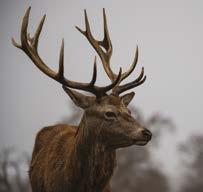
Let’s have some weekend fun! Join the school trip to Zacharovanyi Krai National Nature Park and:

International words
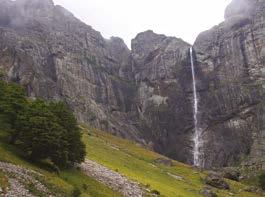
• Visit the Borzhava River Gorge
• Hike along one of the longest and most picturesque eco paths in Ukraine
• See the unique plants in the area and be ready to spot a red deer or a forest cat
• Have a picnic by the Borzhava River
• End the day with a view of the magnificent Guchali waterfall
• Spend the night in tents
• The following day, visit Zacharovana Dolyna geological reserve
Read and listen to the phonetic transcriptions of several international words from this unit. Write the words in your notebook. Check with your partner.
/ˈhæbɪtæt/ /ˈiːkəʊˌtʊərɪst/ /ləˈɡuːn/ /ˈpelɪkən/ /ˈplætˌfɔː(r)m/ /ˈmɒnjʊmənt/ /mjuːˈziːəm/ /ˈɔː(r)ɡəˌnɪz(ə)m/
Listen again and repeat.
Grammar: mustn’t /can’t /not be allowed to ; phrasal verbs
Functions: talking about one’s fashion style; expressing prohibition; expressing approval and disapproval of clothes; shopping for clothes; writing an invitation and a thank you email
Vocabulary: clothes and footwear; words and phrases describing clothes
Pronunciation: devoicing
Answer the questions.
What clothes do you wear to school?
What is your favourite piece of clothing?
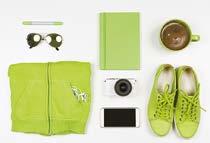

Look at the pictures. Read the sentences and try to guess the meaning of the words in bold.
Do you like shopping for clothes? hot outfit ripped suit (v.) matching crop top
1. Green is really hot this season.

Listen and repeat.




Listen and answer the questions.
1. Where are Alice, Dotty and Justin going shopping?
2. What does Alice want to buy? Why?
get down to business = to start doing something that you have to do

Listen again and choose the correct answer.
1. Justin doesn’t like … of the top.
a. the length
b. the colour
2. Justin thinks Alice’s outfit looks like a uniform because
a. he sees other girls wearing the same clothes.
b. Alice wants to wear it to school.
Express approval and disapproval of clothes
Wow, they’re just gorgeous! It’s a great match!
You look great!
This colour doesn’t suit you at all!
3. Alice wants to wear the jeans and the crop top because a. they suit her.
b. they are fashionable.
4. Justin thinks it’s cool a. to look different. b. to look like everybody else.
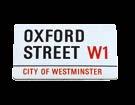

Listen to part of Laura’s fashion blog and match the people with the type of clothes they wear.
Vicky trendy clothes
Claudia smart clothes
Vittorio vintage clothes
Borys comfy clothes
Now read Laura’s blog. Copy the chart into your notebook and then complete it.





Hey, guys! What do you like wearing? Reply
I adore fashion and I love looking smart. I usually wear dresses and skirts. I like accessories like scarves and hats. They’re girly and stylish! I love wearing high heels but Mum says I can’t wear them to school.
I’m a fan of rock music from the 90s and my clothes are a fashion statement. I wear vintage clothes – faded jeans, baggy cardigans, long skirts and the like. I can’t wear these to school, though, because I have to wear a uniform!
I like wearing trendy clothes. I usually wear T-shirts, hoodies and skinny jeans. My favourite piece of clothing is a pair of jeans ripped at the knees but I’m not allowed to wear these to school.
I love comfy clothes – loose T-shirts and shirts, cargo pants and trainers. Cargo pants are my favourite. I love all those pockets! We’re allowed to wear all kinds of clothes to school but we’re not allowed to wear hats!
What they wear What they aren’t allowed to wear
Vicky dresses, skirts, ...
Claudia
1. Mustn’t/can’t/not be allowed to
Study the sentences and match them with the rules.
1. Head teacher to students: You can’t wear make-up to school! = Students aren’t allowed to wear make -up to school.
2. Zoo notice: Visitors mustn’t feed the animals. = Visitors aren’t allowed to feed the animals.
We use can /can’t to ask for, give and refuse permission. We use mustn’t to say that it is important not to do something or it is a bad thing to do it. Do
We use can’t and mustn’t to talk about permission. They both mean that something is not allowed
a. We use can’t to say that something is against the rules.
b. We use mustn’t in public signs and notices to say that something is forbidden.
Imagine you are a police officer. Tell your partner what he/she can’t do. Use the verbs in the box. Take turns.
Model:
Police officer: You can’t take photos here.
Now in your notebook, write sentences with not be allowed to .
Model:
Model:
We aren’t allowed to take photos here.
Say it in another way. Use mustn’t .
Students aren’t allowed to leave the classroom during the exam. Students mustn’t leave the classroom during the exam.
1. Hikers aren’t allowed to light fires in the national park.
2. Campers aren’t allowed to play music after 10:00 pm.
3. Visitors aren’t allowed to disturb the animals.
4. Students aren’t allowed to use their mobile phones in class.
5. Tourists aren’t allowed to take photos in the museum.
6. Customers aren’t allowed to take their own food inside the restaurant.
2. Phrasal verbs
A phrasal verb is a verb that is made up of a verb + an adverb or a preposition, or both.
Compare the sentences below and answer the questions.
1. Look! My keys are under the table.
2. I’ve looked for my keys everywhere.
Which verb is a phrasal verb?
What does it mean?
a. to try to find something that you have lost
b. to turn your eyes towards something, so that you can see it
Now check the rule.
The meaning of the phrasal verb is usually different from the meaning of its separate parts.
We form phrasal verbs from common verbs like come , get , go , look , make , put , turn together with adverbs or prepositions like up , off , on , down , in , out .
Say the correct phrasal verb to complete each sentence.
1. It’s quite cold outside. You’d better put on / put up a warm jacket.
2. Look up / Look for the new words in a good dictionary.
We usually use phrasal verbs in informal English.
3. When you brush your teeth, you should turn on / turn off the tap to save water.
4. Borys and Laura are such good friends – they get up / get on really well.
5. Get off / Get on at the next stop. You’re on the wrong bus.
6. John came in / came across a rare book while he was cleaning the attic.
Say the phrasal verbs below to complete the sentences. Use the correct tense.
wake up hang out check into grow up stay up fill in look after
1. Anna and Dora … in Chicago.
2. At weekends, I usually … with my friends in the park.
3. Justin … the application form and received a confirmation email.
4. Last night, Georgi … late so he couldn’t … in time for school.
5. We asked our neighbour to … our cat while we were on holiday.
6. A: … you … the hotel yet?
B: No, I haven’t.
1. Clothes and footwear
Work in small groups. What words for clothes and footwear do you know? Make a list.

In your notebook, match the words with the pictures.
a. skinny jeans
b. long cardigan
c . leather jacket
d. plaid shirt
e. ankle boots
f. platform shoes
g. high-top sneakers
h. cargo shorts
i. ballet flats
j. high-waisted jeans
k combat boots
l. beanie


Listen, check and repeat.







13
Work in pairs. Describe the people in the pictures. Use the expressions in the box and your own ideas. Take turns.
He’s wearing …
She’s (dressed) in ...
He’s got …
His (jacket) is (black).
He/She looks (cool/trendy).


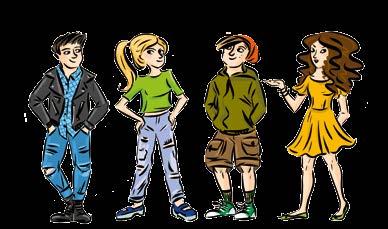
Now describe your favourite outfit to your partner.
2. Words and phrases describing clothes
Read and listen to the dialogues. Try to guess the meaning of the words and phrases in bold. Then look them up in the Wordlist at the end of your Student’s Book.
dated trendy cool hand-me-downs vintage a must have so last year
1. A: These ankle boots are so dated I’ve had them for a couple of years.
B: You’re right. They’re no longer trendy Why don’t you get new boots?
2. A: Hey, bro, where did you get those combat boots? They’re really cool!
B: They’re vintage Hand-me-downs from my dad.
3. A: High-waisted jeans are hot this year.
B: Yes, and this pair is a must have!
4. A: Do you think this crop top matches my skirt?
B: Yes, it does. But the model is so last year.
Now listen to the words in bold and repeat.
15 Make similar dialogues. Talk about your own clothes or comment on the pictures in . 13
Shopping for clothes
Read and listen to the dialogue. Then practise in pairs.
Shop assistant: Good morning. Can I help you?
Alice: Good morning. I’m looking for a pair of skinny jeans.
Shop assistant: They’re over there. What size are you?
Alice: I’m a size 34.
Shop assistant: We’ve got them in black, grey and blue
Alice: Can I try on the black jeans?
Shop assistant: Yes, of course. The fitting rooms are over there.
Shop assistant: Are they OK?
Alice: Well, they’re too small. Have you got a size 36?
Shop assistant: I’m sorry but we haven’t got them in black. What about the grey jeans?
Alice: They’re not quite what I wanted but I’ll try them.
Shop assistant: I think they’re lovely!
Alice: Hmm, I’ll take them. How much are they?
Shop assistant: They’re £30
Alice: Here you are.
Shop assistant: Here’s your change and receipt.
Alice: Thank you. Bye.
a plaid shirt What size do you want? Small/Medium/Large/ Extra large How does it fit? It doesn’t suit me/fit. It’s too tight/wide.
It’s not my favourite colour. It’s perfect!/ You look great in it.
Now make a similar dialogue. Replace the words and phrases in bold with the suggestions on the right and your own ideas. Take turns.
An invitation and a thank you email
Read the invitation and answer the questions.
Laura 18
• What event is Laura inviting her friends to?
• When and where is the event going to take place?
• How can you take part in the event?

Dear eTwinning friends, I’m absolutely delighted to invite you to my Venice Summer fashion show 15 June, 4:00 pm Liceo Foscarini High School, Cannaregio 4941, 30121 Venice You can also watch the show live at: www.laurashow.com
Laura
Now invite your friends to an event: a talent show, an exhibition, a school play, a concert, a match your team is going to play, etc. Use the invitation in as a model.
18
Read the email and answer the questions.
• Why is Laura writing the email?
• How did the fashion show go?
• How does she feel?
Hello friends,
Thank you for attending my fashion show, in person and online. I had a great time and I hope you enjoyed the show as well. I’m really grateful to have so many good friends!
Best wishes,

Now write a thank you email to your friends for attending the event in . Use the email in as a model.
bag back
Grammar: type 1 conditional
Functions: talking about jobs and job qualities; discussing future plans and intentions: high school and my profession; accepting and declining an offer
Vocabulary: jobs and job qualities
Pronunciation: linking
Answer the questions.
What do you want to do when you leave school?


Name three jobs that you think are fun/boring. Why do you think so?
Do you think teenagers should work? What is your opinion of volunteering?
Look at the pictures. Read the sentences and try to guess the meaning of the words in bold.
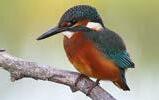
1 My father is an ornithologist – he studies and protects birds.

Steve Jobs managed to inspire lots of young people to follow their heart and intuition.

4. Have you ever had the opportunity to listen to your favourite band in concert?

5. You should consider the problem carefully.
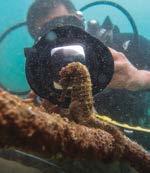
3. I want to be a marine biologist because I think sea plants and animals are fascinating.

6. If you want to support a cause, make a donation. Listen and repeat.

Listen and choose the correct answer.
• Why is Justin excited?
a. Because the RSPB have approved him for volunteer work.
b. Because the RSPB have invited him for a job interview.


The Royal Society for the Protection of Birds (RSPB) is the oldest and biggest British charity that works to protect birds and the environment.
follow in someone’s footsteps = to do the same work as someone else before you, especially someone in your family
Find a job you like doing, and you will never have to work a day in your life! is a popular quote by Mark Twain.
5. … thinks that it is important for people to love their jobs. 4
Listen again and say the correct names to complete the sentences.
1. … has got some good news.
2. … is eager to hear the good news.
3. … has supported the RSPB for years.
4. … wants to know if Justin’s going to be a software engineer.
Read the job advertisement on the RSPB’s webpage and choose the correct answer.
1. Volunteers will work with
a. young children.
b. teenagers.
c. adults.
2 . Volunteers will be busy
a. during the summer holidays.
b. during term time.
c . both a. and b.
3. Which computer skill is NOT mentioned in the advertisement?
a. MS PowerPoint
b. MS Excel
c . MS Word
Do you want to inspire primary school children to save nature? We are looking for enthusiastic and energetic volunteers with a passion for sharing knowledge.
• A keen interest in wildlife, conservation and the environment
• Ability to communicate effectively with children of different needs and levels of understanding
• Ability to work both as part of a team and individually
• Good organisational skills
• Computer skills – ability to use email and the Internet, MS Word and MS PowerPoint
Minimum: 1/2 day at weekends during term time and 2 days a week during the holidays
Duration: April to August
The opportunity to make a real difference by inspiring young children to care and learn more about the natural world.
Contact Mark Andrews, London Office Tel: 020 794 325 Email: Mark.Andrews@rspb.org
6
Now listen to part of a job interview and answer the questions.
• Do you think Justin will get the job? How can you tell?
Now read the whole interview and answer the question.
• Which of the skills in the advertisement in does the interviewer ask Justin about?
Interviewer: Hello, Justin. I’m Mark Andrews and I’ll be your interviewer today.
Justin: Hello, Mr Andrews. Thanks for inviting me for this interview.
Interviewer: Now, my first question. Do you like children?
Justin: Yes, I’ve done some babysitting and I did well. I get on well with older children, too.
Interviewer: That’s great. Do you like organising things?
Justin: Yes, I do. And I think I’m good at it.
Interviewer: OK. Do you like working in a team?
Justin: Yes, I really enjoy it.
Interviewer: Good. How did you get interested in wildlife?
Justin: My dad’s a member of the RSPB. He’s taught me to care about nature.
Interviewer: Like father, like son! And why do you want this job?
Justin: If I become a volunteer, I’ll be able to help children understand and love the natural world. And I’ll learn more about nature conservation.
Interviewer: Fantastic! I think you’ll be a great volunteer. If you get the job, will you be able to combine work with school?
Justin: Definitely. If I work Saturdays, I’ll have plenty of time to prepare for school on Sundays.
Interviewer: Thank you for coming today, Justin! I’ll call you in a few days with my decision.
Like father, like son is a popular English proverb. It means that children often look and act similar to their parents.
Type 1 Conditional
We use Type 1 Conditional to talk about a possible condition and its result in the future.
Study the sentences below and answer the questions.
If you work hard, you will pass your exams.
You won’t pass your exams if you don’t work hard.
Now check the rule.
We use if + Present Simple for the condition and the Future Simple for the result. What tense do we use in the condition clause? What tense do we use in the result clause?
In your notebook, match the two parts of the sentences.
1. If you don’t practise enough,
2. If Andrea doesn’t invite me to her party,
3. Borys won’t go zorbing
4. I’ll never talk to you again
5. If they don’t hurry,
6. If I have problems at school,
Listen and check.
Say the correct form of the verbs in brackets. Use short forms if possible.
1. If it (rain) tomorrow, we (not go) hiking.
a. you won’t learn to play the guitar.
b. I’ll ask my parents for help.
c. if it rains tomorrow.
d. they’ll miss the train.
e. I won’t be her friend anymore.
f. if you don’t keep my secret.
Model:
2. If she (not fill in) the form, she (not get) a confirmation email.
3. I (be) tired in the morning if I (stay up) late tonight.
4. If they (listen) to the teacher carefully, they (understand) and conditional sentences.
5. Justin (be) very happy if he (get) the volunteering job.
6. If you (not give) me back my money, I (not be) your friend anymore. If Alice (not text), I (call) her. If Alice doesn’t text, I’ll call her.
Jobs and job qualities
Work in small groups. What words for jobs do you know? Make a list.
In your notebook, match the words with the pictures.
a. builder
b. manicurist
c . journalist
d. army officer
e. travel agent
f. detective
g. lawyer
h. accountant
i. cashier
j. secretary





Listen, check and repeat.





You’re going to do a personality test and find out which jobs are good for you. Before you start, copy the chart into your notebook. Then write a tick for each statement true for you.
Sum up your ticks in each group and write the total.
I like building things.
I like taking care of animals.
R
I like cooking.
I like doing things with my hands.
I like working outdoors.
I enjoy science.
I enjoy trying to understand how things work.
S
I
I like analysing problems and situations.
I like working with numbers or charts.
I’m good at Maths.
I’m good at working alone.
I enjoy creative writing.
A
I’m a creative person.
I like playing instruments or singing.
I like drawing. C
I like working in a team.
I like teaching and training people.
I enjoy learning about other cultures.
I like discussing things.
I like helping people.
I’m an ambitious person.
I like selling things.
I like doing new tasks.
I’d like to start my own business. I like leading other people.
I like organising things.
I like following instructions.
I’d like to work eight hours a day.
I pay attention to details.
"
I’d like to work in an office.
The three letters with the highest score show your personality type. The six letters stand for Realistic, Investigative, Artistic, Social, Enterprising and Conventional. Now read the information below to see what jobs are good for you.
REALISTIC (Doers)
INVESTIGATIVE (Thinkers)
JournalistSoftware engineer
Actor and actress Architect
ARTISTIC (Creators)
SOCIAL (Helpers)
ENTERPRISING (Persuaders)
CONVENTIONAL (Organisers)
Work in small groups. Discuss the questions below. Take notes of your classmates’ answers. Then report to the class.
1. Do you agree with the test results? Why? Why not?
2 . Which job/jobs in each personality type would you actually like to do? Why?
Galya: Thanks! What about you? What are you going to do? Shop
3. How many jobs do you think you’ll probably have in your life?
4. Who has the best job in the world? Give reasons.
Discussing future plans and intentions: high school and my profession
Read and listen to the dialogue. Then practise in pairs.
Borys: What high school are you going to apply to?
Galya: I’m going to apply to the High School of Mathematics and Natural Sciences.
Borys: Really? Do you want to study Maths?
Galya: In fact, I want to study Chemistry and Biology.
Borys: Are you going to be a scientist?
Galya: I haven’t decided yet. Maybe I’ll be a doctor if I pass the exams. They’re quite difficult, you know.
Borys: Why do you want to be a doctor?
Galya: Because I like taking care of people. I’m also hard-working and patient.
Borys: I know! You’re the best student in our class! Good luck!
Work in pairs or small groups. Talk about your plans about high school and your job in the future. Use the job titles and job qualities in and and your own ideas. Use the dialogue in as a model.
Read the two emails and match them with Justin’s answers. Then answer the questions below.
• Who knows Justin in person?
• Who asks Justin to answer asap?
• For which job will Justin earn more money? How much? 12 14
From: Diana.Peters@ruralengland.co.uk
To: justinthechef@ezbox.co.uk
Hello Justin,
I got your email from your neighbour, Mrs Evans – she’s my sister. My husband and I are going on holiday for a week and we’re looking for someone to look after our dog, Pugsy. Could you take care of him from Monday, April 16 to Sunday, April 22? If you accept, you’ll have to feed him and walk him twice a day.
I can pay 18 pounds a day.
If you accept my offer, please, answer this email and then we can discuss more details.
Regards, Diana Peters

From: julie.marner@mailer.co.uk
To: justinthechef@ezbox.co.uk
Hi Justin,
You looked after our son Eddie a few times last year. Can you look after him next Saturday from 9 am to 4 pm? My husband and I are going to a wedding and we need someone to entertain Eddie while we’re away. He really likes you!
We do hope you accept our offer. The pay will be 9 pounds an hour, as usual.
Please, answer this email asap. I’ll need to find another babysitter if you’re not free.
Regards,
Julie Marner
From: justinthechef@ezbox.co.uk
To: julie.marner@mailer.co.uk
Hi Mrs Marner,
Thanks for considering me! I’m afraid I won’t be able to make it next Saturday. I’ve started a new job and I work Saturdays.
If you want, ask my sister, Alice. She’s very responsible. Her email is ali.wil21@ezbox.co.uk
Best, Justin
Read Mrs Peters’ and Mrs Marner’s emails again. Choose a job you like and a job you don’t. Accept one job and decline the other. Use Justin’s emails in as models.
Linking
From: justinthechef@ezbox.co.uk
To: Diana.Peters@ruralengland.co.uk
Dear Mrs Peters,
Thanks a lot for offering me this job. I’ll be happy to look after Pugsy. What breed is he?
I think the pay is really generous! Thanks!
Regards, Justin
In English, native speakers join or ‘link’ words together. This is one of the reasons why non-native speakers have problems understanding spoken English. When a word ends in a consonant sound, we often move the consonant sound to the beginning of the next word if it starts with a vowel sound.
For example, in the sentence ‘That’s an apple’ the ‘n’ in an is linked to the ‘a’ in apple and it sounds like ‘That-sa-napple’.
Read and listen to the examples below.
We write: We say: Can I have an orange? ca-ni-ha- va-no-ringe? Come on, let’s get off. ca-mon, lets ge-toff.
Listen to the text and write the correct answers in your notebook.
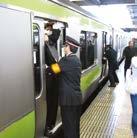

READING
1. The text is about
a. a Japanese profession.
b. Japanese public transport.
2. The word oshiya means
If you’re interested in helping the environment, the capsule wardrobe is a great place to begin. If we buy less and buy smart, we’ll make a difference. The wardrobe itself consists of a small number of carefully selected clothes, usually in matching colours. 1 2
a. someone who invites people onto the train.
b. someone who pushes people onto the train.
3. There are too many passengers on the trains
a. at all times.
b. during rush hour.
4. People are late for work because
a. trains are crowded.
b. trains don’t arrive on time.
5. Oshiya do their duties
a. gently.
b. aggressively.
6. Japanese people … that oshiya push them onto trains.
a. complain
b. don’t complain
Read the text and write the correct answers in your notebook.
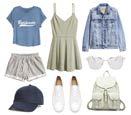


Do you like dressing after the latest fashion? If the answer is yes, here’s some shocking news for you: the fashion industry is the second biggest polluter, after agriculture. Fast fashion helps us forget how many resources go into the production of a single piece of clothing, which we readily throw away after wearing a couple of times. But what can we do to stop the waste and live more sustainably?
видавництво"Ранок"
1. The article is about
a. the way fast fashion pollutes the environment.
b. an attitude to clothes that helps save the environment.
2. The fashion industry
a. pollutes the environment more than agriculture.
b. pollutes the environment less than agriculture.
3. The production of one piece of clothing uses
a. a lot of resources.
b. very few resources.
The capsule wardrobe doesn’t have to be boring. If you think about it, you’ll probably realise that each season you only wear the clothes you like best. So to have a capsule wardrobe actually means that you can wear only your favourite clothes. It’s a chance to always look great and help conserve the environment. 6
4. ‘If we buy less and buy smart, we’ll make a difference’ means:
a If you buy less and choose carefully, you’ll save lots of money.
b. If you buy less and choose carefully, you’ll help the environment.
5. A ‘capsule wardrobe’ means
a. a piece of furniture.
b. a set of clothes.
6. According to the article, each season people wear
a. only their favourite clothes.
b. all of the clothes they own.
Work in small groups. Look back at your time in the school where you’re studying now. What will you miss when you move on? What are your hopes and fears for your new school?
Now
talk about ecotourism. ask for and give directions. describe an eco-friendly holiday. talk about one’s fashion style. express prohibition. express approval and disapproval of clothes.
I know how to: shop for clothes. invite and thank people. talk about jobs and job qualities. discuss my plans and intentions for high school and my profession. accept and decline an offer.
I can:
use indefinite pronouns for place. use future time clauses with when . use mustn’t/can’t/not be allowed to use common phrasal verbs. use type 1 conditional.
1
Look at the pictures and listen to two jokes. What is funny about the jokes?
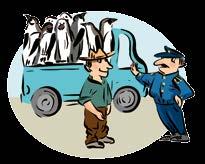
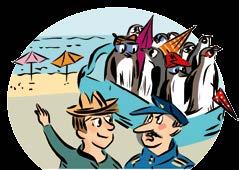
Now work in pairs and practise telling the jokes to each other. Then have a class competition. Who is best at telling the jokes? Проєкт майбутнього
2
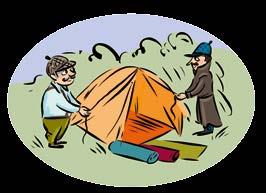
видавництво
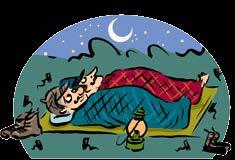
Search the Internet for songs about fashion, for example, Lady Gaga’s Fashion. Listen to several other songs and choose the one you like best. Search for its lyrics as well. What is the message of the song? Do you like it? Why? Why not?

Work in groups of four. The end of the school year is not so far away. Choose the best way to celebrate it. Plan your end-of-school party. Create a poster and write invitations for your teachers, parents and other guests. Then present your ideas to the class.



The questions below will help you.
1. When is the party going to be?
2. Where is the party going to be held? (in the classroom/a café/the school gym, etc.)
3. Who are you going to invite? (teachers, parents, special guests)
4. What are you going to do?
5. What are you going to eat and drink?
6. What kind of music are you going to listen to?
7. Who is going to play the music?
8. Are there going to be any games or quizzes?
9. Are there going to be any awards? (for the teachers, the best students, etc.)
1 Complete the sentence.
Borys and Laura are … friends.
Answer the question.
Complete the phrase. 4 Answer the question.
What kind of person are you? love at first …
5 Say the name of the activity. 6 Complete the sentence. 7 Go to the board and write three words for friend (BrE and AmE).

… Borys and Vicky speak English very well.
What nationality is Laura?
8 Go to the board and write the meaning of JK .
9 Answer the question. 10 Go to the board and write a word that means someone’s best friend 11 Complete the sentence with the correct preposition. 12 Correct the sentence.
What project is the twins’ school taking part in?
I get on well … my brother.
13 Complete the question. 14 Complete the sentence. 15 Answer the question.
Do … of your friends like sports?
My best friend and I have a lot in … .
Why are Vicky and Gabi busy?
17 Complete the sentence. 18 Answer the question. 19 Complete the sentence.
I can speak … German and English. What is Laura into?
21 Which is different?
a. feel
b. love
c. make
d. prefer
25 Go to the board and write the meaning of NP .
22Complete the sentence.
He’s a real … .

… of my friends like rap music but others don’t like it.
23Choose the correct form.
Be quiet! Dad has/’s having a conference call.
26Which is different?27Complete the sentence. Make it true for you.
a. go
b. post
c. know
d. read
… of my classmates love English classes.
I’m not believing what she’s saying.
16 Choose the correct phrase.
I don’t agree/’m not agreeing with you.
20 Explain the phrase to be like chalk and cheese.
24Complete the sentence.
Anna broke … with her boyfriend last week but they made it … yesterday.
28Complete the sentence.
My cousins live in the USA so we keep in … by email.
1 Which is different? 2 Mime folk dance.
a. and c. but b. or d. while
5 Complete the sentence. 6 Answer the question.
I didn’t finish the book … I don’t like historical novels.
Who joins in the first meeting of the book club?
9 Say the word. 10Which is different?

a. thirsty
happy
hungry
poor
13 Choose the correct form. 14 Complete the sentence.
Laura wrote/was writing a blog post when Borys texted/was texting her.
Answer the question. 4 Disagree with the sentence.
Who is Oscar Wilde? I think knitting is boring.
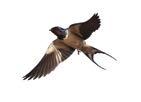
Say the word. 8 Answer the question.
What is ‘The Happy Prince’?
Complete the sentence. 12 Spell fairy tale as fast as you can.
… Vicky and Gabi were reading ‘The Happy Prince’, Borys was playing football.
Answer the question. 16 Thank your friend for inviting you to join the photography club.
… I came home, my parents were watching TV. What is a summary?
17 Agree with the sentence. 18 Say the word.
I think volunteering is very enjoyable.
21 Complete the sentence. Make it true for you.
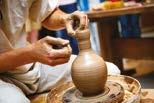
Which is different? 20Answer the question.
a. I’m with you on that one.
b. Absolutely not!
c. Yes, absolutely! d. I think so, too.
22Complete the dialogue. Make a suggestion. 23Complete the sentence. Make it true for you.
I’m really keen on … .
25Choose the correct form.
A: Your gift is lovely! Thanks a million! B: Yesterday at 3:00 pm I … .
Why did Gabi write Justin?
24Complete the dialogue. Make a suggestion.
A: There’s a folk dance club at our school. I’d really like to go. B:
26Complete the sentence. 27 Mime knitting. 28Say the word.
I woke up/was waking up when my alarm rang/was ringing It was very hot outside … I bought a bottle of water.

1 Which is different? 2 Complete the sentence. Make it true for you. 3 Answer the question.
a. knee
b. know
c. knit
d. kick
I … during the winter break.
5 Answer the question. 6 Say another word for campsite (AmE).
Where are the Wilsons going on holiday?


When do we use the 24-hour clock?
7 Your partner is going on holiday. Ask about his/her plans.
9 Say the word. 10Which is correct? 11 Complete the sentence with the correct preposition.
a. Perhaps Justin will be hungry all the time.
b. Justin will perhaps be hungry all the time.
13 Which is different?
a. youth hostel
b. guesthouse
c. resort
d. hotel
Spell youth hostel as fast as you can.
17 Which is correct? 18 Say the word.
a. Vicky probably won’t chat with Alice every day.
b. Vicky won’t probably chat with Alice every day.

Say the word.

8 Explain the phrase a penny for your thoughts .
Correct the sentence.
We’re leaving … half an hour. We’ll see the new X-Мen film at 6:00 pm.
Which is correct?
a. The Wilsons will possibly see the Northern Lights.
b. The Wilsons possibly will see the Northern Lights.
Say the word.

Correct the sentence. 20Which is correct?
Laura’s party is starting at 6 o’clock on Saturday.
21 Choose the correct form. 22 Spell guesthouse as fast as you can. 23Correct the sentence.
The plane takes off/ will take off at 14:02.
a. The train leaves after five minutes.
b. The train leaves in five minutes.
Mime take off.
The last train is leaving at 10:00 am.
25Answer the question. 26Complete the sentence. 27Answer the question. 28Say the word.
How are the Wilsons travelling to Sweden? I’ll call you … classes.
What’s your plan for the weekend?

1 Which is different?
a. broken
b. spoke
c. written
d. given
Complete the dialogue.
A: You promise? B: You …!
5 Answer the question. 6 Write the past participle of take in your notebook.
Who is your favourite singer or band?
9 Say the word.

the sentence. Make it true for you.
the sentence.
What are your favourite films and TV shows? Harry Potter is a famous film … .
Complete the sentence.
Wow, what are you listening to? It’s a very … tune!
Explain the word fangirl .
Answer the question.
I … met a famous person. Did you ever take a selfie with a celebrity? Have you ever travelled abroad?
13 Complete the sentence. 14 Disagree with the statement.
The film wasn’t very good but I liked the special … .
17 Which is correct?
I … a great film on TV last night.
a. saw
b. watched
I think sci-fi movies are the best!
Correct the sentence.
Vicky hasn’t never been to a film location.
Which is different?
a. watched b. travelled c. taken
d. cheated
Complete the question. Then answer it.
Say the word.

with the statement.
Have you … met a film star? I think the special effects in a film are really important.
21 What was the last film you saw? Share your opinion about it with your partner. 22 Write the past participle of see in your notebook. 23Complete the sentence.
I have … been to Australia.
the questions.
Who are Tiia and Satu? What are their hobbies?
25 Go to the board and write a word that means the words of a song 26Complete the sentence. 27Which is correct? 28 Write the past participle of win in your notebook.
The book I’m reading is a real page-…, I can’t put it down.
a. Did you ever fly on a plane?
b. Have you ever flown on a plane?
1 Which is different?
a. sometimes
hardly ever c. yesterday d. never
5 Go to the board and write a word that means someone who wants to show how clever they are in an annoying way
Say another word for vacuum cleaner (BrE).
household … do you do?
is Anna surprised? a. I am never late for school. b. I never am late for school.
Complete the phrase.

are the Wilsons going to buy?
Name а household chore you hate doing and explain why.
do always the grocery shopping on


the correct form.
a. My mum hardly ever watches
b. My mum watches TV hardly ever.

Answer the question.
does Justin think he’s generous?

won/have won the competition! I’m very happy!
the word.


Borys has tidied his room yesterday.
1 Say the tradition. What do people do then?

5 Spell masquerade as fast as you can.
Which is different?
a. How are things?
b. How are you doing?
c. How do you do?
d. How’s life?
Answer the question.
Where did Vicky and Borys go yesterday?
What two meanings of the word festival do you know? Give examples of each kind of festival. 4 Choose the correct word.
Participants of Pereberia are men and women who/which wear scary masks.
Answer the question.
Vicky doesn’t like films that/who make her cry. What do people do on Bonfire Night? 9 Name the animal.

Complete the sentence.
Easter is a festival … has been celebrated for centuries.
17 You’re at a folk festival. Ask another visitor to take a photo of you and your friends.
the correct word.
Answer the question.
Complete the sentence. The kitten is
excited.
frightened.

Where and when do people celebrate Groundhog Day?
I get really … when someone eats all the chocolates and doesn’t throw away the box!
a. scared
b. annoyed
is the girl looking at? Vashkivtsi is the town … the Pereberia Festival is held.

Vicky thinks the Pereberia masks are quite frightened. A: How are things? B:
18 Choose the correct word. 19 Go to the board and write the adverbs of degree rather, extremely and quite. Arrange them from weakest to strongest.
20Answer the questions.
What is the name of this festival? Where is it held?

21 Choose the correct word. 22Answer the question. 23Correct the sentence. 24 A friend calls you on your mobile. Greet him or her.
Laura is interesting/ interested in fashion.
What does an adjective ending in -ed describe?
Spider-Man is the most bored film I’ve ever seen.
25Answer the questions. 26 Say the tradition. What do people do then? 27Complete the dialogue.
Where and when do people celebrate Pereberia? What kind of festival is it?

A: Can I borrow your mobile to make a phone call, please? B:
28Answer the question.
What does an adjective ending in -ing describe?
1 Answer the question.
Which city is called the Big Apple? Have you visited any museums …?
5 Complete the sentence.
The … is located in Hartford, the USA.
9 Write the missing word in your notebook.
… Castle was home to Scottish kings and queens.
Complete the sentence.
is the Tunnel of Love unique?
the rest of your holiday! Where is Mount

Georgi finished reading the book of the month …?

never … to the USA. 13 Answer the question.
Complete the sentence.
What can you see in Mykhailo Kotsiubynsky’s House & Museum? Sounds like you’re having …
Complete the sentence.
Georgi has … climbed the cathedral Bell Tower.
tomb
memorial
Complete the sentence.
I’ve … seen the film, but I won’t give away any spoilers!


Which is a UNESCO site? a. Edinburgh Castle
St Sophia Cathedral
Mount Rushmore
the correct word.
Vicky isn’t at home. She’s been/gone to the book club meeting. 25 Answer the question.
How can you see the Tunnel of Love? Edinburgh Castle is at the top of a …
A: Has he had a walk
another word for lift (AmE).
1 Which is different?
a. carbohydrate
c. calcium
protein
Answer the question.
Say the word.

should eat less … and more …
the dialogue. Give advice.
should Alice do before she buys a snack? A: I’d like to try the desserts but I don’t eat chocolate. What do you suggest? B:

is fruit better than OJ?
Your friend is very tired in the morning. Give advice.
a. a ready meal

the question.
do you usually have for breakfast?

a.
b.
c.
d.



1 Answer the question.
Where are Justin and his dad going in August?
5 Complete the sentence.
You’ll receive a confirmation email when your application is … .
Justin’s changed his mind about … .
Mime go past the board .
Answer the question.
Can volunteers under 18 stay at the conservation camp? 9 Which is different?
disturb
preserve
harm
Complete the sentence.

somewhere
something
anywhere
everywhere 13 Complete the sentence with the correct preposition.
Go … this street, and then turn right at the traffic lights.
Answer the question.
What is the opposite of mass tourism?
Justin … write an email to Gabi when he gets home. What will the volunteers build at the camp?
Complete the sentence with the correct preposition.
Walk … the school and you’ll see the park.
a. I can’t see my mobile nowhere.
b. I can’t see my mobile anywhere.
Granny has looked anywhere for her glasses.

a. They will hire bikes when they will arrive in Mykolaiv.
b. They will hire bikes when they arrive in Mykolaiv.
What fun activities will the volunteers do at the camp?
21 Which is correct? 22Answer the question. 23 Go to the board and write a word that means the natural environment in which an animal or a plant usually lives . 24Which is correct?
25Choose the correct word. 26 Mime pick flowers .
Go to the board and write three international words from the unit.
a. When I see Gabi, I’ll tell her about the party.
b. When I’ll see Gabi, I’ll tell her about the party.
28Answer the question. We didn’t go nowhere/anywhere this weekend.
What is biodiversity?
1 Complete the sentence.
This leather jacket is a … from my older sister.
5 Say another word for trainers (AmE).
Which is different?
a. trendy
dated c. hot
cool
Say the word.

What does this sign mean?
Say it in another way.
Students aren’t allowed to chew gum in class. What clothes do you usually wear to school?
Spell accessories as fast as you can.

Your friend has just bought a new outfit. Express approval of his/ her choice.
Explain the phrase get down to business
a. Do you think this crop top matches my skirt?
b. Do you think this crop top matches with my skirt?
21 Complete the sentence with the correct preposition. 22 Describe the clothes of the person sitting closest on your right.
Girls aren’t allowed to wear high heels … school.
25 Answer the questions. 26 Say the word.
Why does Alice want to go shopping?
What does she want to buy?

Shop assistant: Good morning. Can I help you?

the correct preposition.
Excuse me, I’m looking at/for a black hoodie.
The meaning of the phrasal verb is usually different from/similar to the meaning of its separate parts.
a. long cardigan
b. high-waisted jeans
c. combat boots
d. cargo shorts
a. It’s perfect!
b. Wow, they’re just gorgeous!
c. You look great in it!
d. Black doesn’t suit you at all!
Answer the question. 24 Say the word.
What is Justin’s opinion of the clothes Alice wants to buy?
is different?
a. look up b. look
c. look for d. look after

Answer the questions.
Where is Oxford Street?
What can you do there?
1 Complete the grammar rule.
We use if + … for the condition and … for the result.
Answer the question.
What is Justin going to become?
Choose the correct form.

the sentence.
If you don’t/won’t call me, I won’t/don’t talk to you anymore. If you want to … a good cause, join our organisation.

like organising things – I’m going to be an accountant/a game designer
does Justin’s father do? 9 Spell ornithologist as fast as you can.
Go to the board and write five professions that end in -er
Complete the sentence with the correct preposition.
Justin was invited … an interview.
Answer the question.
What’s the best job in the world?
Complete the sentence. Make it true for you.
What does a travel agent do?
Justin will work with primary school children if he gets the job.
Explain the phrase to follow in someone’s footsteps
be really happy if What job do you want to do? Why?



We won’t be able to go for a walk if it will rain.
absent-minded, adj /ˈæbs(ə)nt ˈmaɪndɪd/ розсіяний All’s well that ends well. Все добре, що добре закінчується. argue, v /ˈɑː(r)ɡjuː/ сперечатися arrangement, n /əˈreɪndʒmənt/ домовленість behave, v /bɪˈheɪv/ поводитися bossy, adj /ˈbɒsi/ владний conversation, n /ˌkɒnvə(r)ˈseɪʃ(ə)n/ розмова curious, adj /ˈkjʊəriəs/ допитливий eager, adj /ˈiːɡə(r)/ нетерплячий fall asleep /fɔːl əˈsliːp/ заснути favour, n /ˈfeɪvə(r)/ послуга ask someone a favour, попросити когось про послугу do someone a favour, зробити комусь
Проєкт
послугу flight, n /flaɪt/ політ folks, n (pl) /fəʊks/ люди (розм.) generous, adj /ˈdʒenərəs/ щедрий guys, n (pl) /ɡaɪz/ хлопці (розм.) hard-working, adj /hɑː(r)dˈwɜː(r)kɪŋ/ працьовитий hug, n /hʌɡ/ обійми introduce, v /ˌɪntrəˈdjuːs/ представити, знайомити lazy, adj /ˈleɪzi/ ледачий miss, v /mɪs/ втрачати, My mobile is missing. Мій мобільний відсутній. naughty, adj /ˈnɔːti/ неслухняний order, n /ˈɔː(r)də(r)/ порядок, наказ give an order, дати наказ pack, v /pæk/ пакувати, складати (багаж) promise, v /ˈprɒmɪs/ обіцяти seat, n /siːt/ місце, сидіння take a seat, звйняти місце selfish, adj /ˈselfɪʃ/ егоїстичний, себелюбний
silly, adj /ˈsɪli/ дурний staff, n (uncountable) /stɑːf/ персонал stubborn, adj /ˈstʌbə(r)n/ упертий unpleasant, adj /ʌnˈplez(ə)nt/ неприємно
UNIT 2
видавництво
buddy, n /ˈbʌdi/ приятель canoe, n /kəˈnuː/ каное change out of, v перевдягатися complain, v /kəmˈpleɪn/ скаржитися crawl, v /krɔːl/ повзати event, n /ɪˈvent/ подія healthy, adj /ˈhelθi/ здоровий kayak, n /ˈkaɪæk/ каяк leisure, n (uncountable) /ˈleʒə(r)/ дозвілля lifestyle, n /ˈlaɪfˌstaɪl/ спосіб життя mountain biking, n (uncountable) // ˈmaʊntɪn ˌbaɪkɪŋ/ катання на гірських велосипедах paintball, n /ˈpeɪntˌbɔːl/ пейнтбол raft, n /rɑːft/ пліт rafting, n (uncountable) /ˈrɑːftɪŋ/ рафтинг rope, n /rəʊp/ мотузка rock climbing, n (uncountable) / rɒkˈklaɪmɪŋ/ скелелазіння rope garden, n мотузковий парк scary, adj /ˈskeəri/ страшно shake, v /ʃeɪk/ тремтіти skateboarding, n (uncountable) / ˈskeɪtˌbɔː(r)dɪŋ/ скейтбординг skip, v /skɪp/ пропускати snowboarding, n (uncountable) / ˈsnəʊˌbɔː(r)dɪŋ/ сноуборд van, n /væn/ фургон windsurfing, n (uncountable) /ˈwɪn(d) ˌsɜː(r)fɪŋ/ віндсерфінг wreck, n /rek/ уламок zip wire, n /ˈzɪp ˌwaɪə(r)/ застібка
UP TO NOW 1
transport, n (uncountable) /ˈtrænspɔː(r) t/ транспорт means of transport, види
транспорту attention, n (uncountable) /əˈtenʃ(ə)n/ увага at the seaside, /ˈsiːˌsaɪd/ на морі birdwatching, n (uncountable) /ˈbɜː(r)
dˌwɒtʃɪŋ/ спостереження за
птахами
cable car, n /ˈkeɪb(ə)l ˌkɑː(r)/ канатна
дорога
підручника
camper van, n /ˈkæmpə(r) ˌvæn/ кемпер caravan, n /ˈkærəvæn/ трейлер ferry, n /ˈferi/ паром folk music, n (uncountable) /ˈfəʊkˌmjuːzɪk/ народна музика have in mind, мати на увазі
helicopter, n /ˈhelɪˌkɒptə(r)/ гелікоптер
imagine, v /ɪˈmædʒɪn/ уявляти lorry, n /ˈlɒri/ вантажівка (брит.)
motorbike, n /ˈməʊtə(r)ˌbaɪk/ мотоцикл (брит.)
motorcycle, n /ˈməʊtə(r)ˌsaɪk(ə)l/ мотоцикл (амер.)
subway, n /ˈsʌbˌweɪ/ метро (амер.)
sunbathe, v /ˈsʌnˌbeɪð/ засмагати
sunbathing, n сонячні ванни
The best is yet to come. Найкраще ще
попереду.
tour, n /tʊə(r)/ подорож, турне
tram, n /træm/ трамвай truck, n /trʌk/ вантажівка (амер.)
Underground (the), n /ˈʌndə(r)ˌɡraʊnd/ метро (брит.)
vehicle, n /ˈviːɪk(ə)l/ транспортний засіб
located in, розташований у natural, adj /ˈnætʃ(ə)rəl/ природний ranger, n /ˈreɪndʒə(r)/ лісник wonder, n /ˈwʌndə(r)/ чудо, диво wonders of the natural world, чудеса світу природи
anteater, n /ˈæntˌiːtə(r)/ мурахоїд armadillo, n /ˌɑː(r)məˈdɪləʊ/ броненосець binoculars, n (pl) /bɪˈnɒkjʊlə(r)z/ бінокль eagle, n /ˈiːɡ(ə)l/ орел general, adj /ˈdʒen(ə)rəl/ загальний in general, в цілому Imperial Eagle, n /ɪmˈpɪəriəl ˈiːɡ(ə)l/ імператорський орел length, n /leŋθ/ довжина magnificent, adj /mæɡˈnɪfɪs(ə)nt/ чудовий meerkat, n /ˈmɪə(r)ˌkæt/ сурикат ostrich, n /ˈɒstrɪtʃ/ страус platypus, n /ˈplætɪpəs/ качконіс prey, n (uncountable) /preɪ/ здобич bird of prey, n хижий птах protected, adj /prəˈtektɪd/ той, що охороняється rare, adj /reə(r)/ рідкісний road, n /rəʊd/ дорога on the road again знову в дорозі sloth, n /sləʊθ/ лінивець species, n (pl) /ˈspiːʃiːz/ види (біол.) spot, v /spɒt/ визначити, заплямовувати tail, n /teɪl/ хвіст tapir, n /ˈteɪpə(r)/ тапір waste, v /weɪst/ марнувати, витрачати
waste my time, марнувати мій час weigh, v /weɪ/ важити weight, n /weɪt/ вага wildlife, n (uncountable) /ˈwaɪldˌlaɪf/
дика природа wingspan, n /ˈwɪŋˌspæn/ розмах крил
підручника
ac tually, adv /ˈæktʃʊəli/ власне bin, n /bɪn/ відро для сміття recycle bin, n кошик для сміття clean-up, n прибирання daffodil, n /ˈdæfədɪl/ нарцис sea daffodil, n морський нарцис discover, v /dɪˈskʌvə(r)/ виявити dozen, determ /ˈdʌz(ə)n/ десяток, дюжина dune, n /djuːn/ дюна environment, n /ɪnˈvaɪrənmənt/ навколишнє середовище explore, v /ɪkˈsplɔː(r)/ досліджувати explorer, n /ɪkˈsplɔːrə(r)/ дослідник
float, v /fləʊt/ плавати grab, v /ɡræb/ хапати nature reserve, n /ˈneɪtʃə(r) rɪˈzɜː(r)v/ заповідник
note, n /nəʊt/ примітка path, n /pɑːθ/ шлях recycle, v /riːˈsaɪk(ə)l/ переробляти reuse, v /riːˈjuːz/ використовувати вдруге rubbish, n (uncountable) /ˈrʌbɪʃ/ сміття sail, v /seɪl/ вітрило separate, v /ˈsepəreɪt/ відокремлювати swimming trunks, n (pl) /ˈswɪmɪŋ ˌtrʌŋks/ плавки swimsuit, n /ˈswɪmˌsuːt/ купальник throw, v /θrəʊ/ кинути throw away, v викинути
towel, n /ˈtaʊəl/ рушник water lily, n /ˈwɔːtə(r)ˈlɪli/ латаття while, conj /waɪl/ поки
Проєкт майбутнього
attack, v /əˈtæk/ атака barn, n /bɑː(r)n/ сарай bite, v /baɪt/ укус building, n /ˈbɪldɪŋ/ будівля bull, n /bʊl/ бик chase, v /tʃeɪs/ бігати, переслідувати cottage, n /ˈkɒtɪdʒ/ котедж countryside, n (uncountable) /ˈkʌntriˌsaɪd/ сільська місцевість darling, n /ˈdɑː(r)lɪŋ/ милий
видавництво
excuse, n /ɪkˈskjuːs/ вибачення
field, n /fiːld/ поле follow, v /ˈfɒləʊ/ слідувати gallop, v /ˈɡæləp/ бігти галопом
goose, n /ɡuːs/ гусак graze, v /ɡreɪz/ пастися hiss, v /hɪs/ шипіти hissing, adj /ˈhɪsɪŋ/ шиплячий
horror, n /ˈhɒrə(r)/ жах horror film, фільм жахів invent, v /ɪnˈvent/ винаходити invent your own excuses, вигадувати власні виправдання monster, n /ˈmɒnstə(r)/ чудовисько orchard, n /ˈɔː(r)tʃə(r)d/ фруктовий сад
scare, v /skeə(r)/ налякати scare away, v відлякнути sculpture, n /ˈskʌlptʃə(r)/ скульптура skyscraper, n /ˈskaɪˌskreɪpə(r)/ хмарочос smell, v /smel/ запах traffic, n (uncountable) /ˈtræfɪk/ рух, трафік underpass, n /ˈʌndə(r)ˌpɑːs/ підземний перехід (амер.)
"
vineyard, n /ˈvɪnjə(r)d/ виноградник yard, n /jɑː(r)d/ подвір’я
available, adj /əˈveɪləb(ə)l/ наявний feeder, n /ˈfiːdə(r)/ годівниця main, adj /meɪn/ головний rent, n /rent/ орендна плата situated, adj /ˈsɪtʃueɪtɪd/ розташований throughout, prep /θruːˈaʊt/ скрізь
alive, adj /əˈlaɪv/ живий arm, n /ɑː(r)m/ рука back, n /bæk/ назад bend, v /bend/ згинати breath, n /breθ/ подих breathe, v /briːð/ дихати brook, n /brʊk/ струмок by your side, з твого боку chest, n /tʃest/ груди consist of, v /kənˈsɪst/ складатися з fingertip, n /ˈfɪŋɡə(r)ˌtɪp/ кінчик
пальця heel, n /hiːl/ підбір petal, n /ˈpet(ə)l/ пелюстка pose, n /pəʊz/ поза raise, v /reɪz/ піднімати stand up, v підводитися thigh, n /θaɪ/ стегно
видавництво
UNIT 7
among, prep /əˈmʌŋ/ серед as … as, adv /æz … æz/ такий ... як, така … як bagpiper, n /ˈbagpaɪpə(r)/ волинщик
blog, n /blɒɡ/ блог blow, v /bləʊ/ зігрівати диханням bonfire, n /ˈbɒnˌfaɪə(r)/ багаття candle, n /ˈkand(ə)l/ свічка charming, adj /ˈtʃɑː(r)mɪŋ/ чарівний colourful, adj /ˈkʌlə(r)f(ə)l/ барвистий competition, n /ˌkɒmpəˈtɪʃ(ə)n/ змагання control, v /kənˈtrəʊl/ контролювати, керувати costume, n /ˈkɒstjuːm/ костюм cracker, n /ˈkrækə(r)/ хлопавка crowd, n /kraʊd/ натовп decorate, v /ˈdekəreɪt/ прикрашати decoration, n /ˌdеkəˈreɪʃ(ə)n/ прикраса exhausting, adj /ɪɡˈzɔːstɪŋ/ виснажливий expect, v /ɪkˈspekt/ очікувати experience, n /ɪkˈspɪərɪəns/ досвід gathering, n /ˈɡæðərɪŋ/ збирання grill, v /ɡrɪl/ смажити на грилі guitar, n /ɡɪˈtɑː(r)/ гітара heavy, adj /ˈhevi/ важкий honest, n /ˈɒnɪst/ чесний Hungary, n /ˈhʌŋgəri/ Угорщина incredible, adj /ɪnˈkredəb(ə)l/ неймовірно Japan, n /dʒəˈpan/ Японія kitten, n /ˈkɪt(ə)n/ кошеня lively, adj /ˈlaɪvli/ жвавий, веселий meadow, n /ˈmedəʊ/ луг melodious, adj /məˈləʊdiəs/ милозвучний neighbour, n /ˈneɪbə/ сусід Netherlands (the), n /ˈnеðələndz/ Нідерланди organise, v /ˈɔːg(ə)naɪz/ організовувати paint, v /peɪnt/ фарба pick up, v підібрати pick up the rhythm, підбирати ритм picturesque, adj /ˌpɪktʃəˈresk/ мальовничий
"
pile, n /paɪl/ купа prize, n /praɪz/ приз produce, v /prəˈdjuːs/ виробляти put up, v поставити rhythm, n /ˈrɪðəm/ ритм shout, v /ʃaʊt/ кричати simply, adv /ˈsɪmpli/ просто solemn, adj /ˈsɒləm/ урочисто step, n /step/ крок surprised, adj /sə(r)ˈpraɪzd/ здивований
Sweden, n /ˈswiːd(ə)n/ Швеція Swedish, adj/n /ˈswiːdɪʃ/ шведський take place, відбуватися throw a party, організувати вечірку tune, n /tjuːn/ настроювати usual, adj /ˈjuːʒʊəl/ звичний winner, n /ˈwɪnə(r)/ переможець wolf, n /wʊlf/ вовк as hungr y as a wolf, idiom голодний, як
вовк
acting, n /ˈæktɪŋ/ акторська майстерність baking, n /ˈbeɪкɪŋ/ випічка bazaar, n /bəˈzɑː(r)/ базар brill, adj /brɪl/ блискучий (розм.) brilliant, adj /ˈbrɪljənt/ блискучий chef, n /ʃef/ кухар collect, v /kəˈlekt/ збирати congrats, n /kənˈɡræts/ вітання (розм.) congratulate, v /kənˈɡrætʃʊleɪt/ вітати congratulations, n /kənˈɡrætʃʊleɪʃənz/ вітання
підручника видавництво
keep a pet, тримати домашнього улюбленця
noise, n /nɔɪz/ шум pass, v /pɑːs/ складати (іспит); проходити (тест)
pauper, n /ˈpɔːpə(r)/ жебрак perform, v /pə(r)ˈfɔː(r)m/ виконувати performance, n /pə(r)ˈfɔː(r)məns/ вистава
create, v /kriˈeɪt/ творити deep, adj /diːp/ глибокий easily, adv /ˈiːzɪli/ легко hobby, n /ˈhɒbi/ захоплення hole, n /həʊl/ отвір interest, n (uncountable) /ˈɪntrəst/ інтерес invent, v /ɪnˈvent/ винаходити
prince, n /prɪns/ принц production, n /prəˈdʌkʃ(ə)n/ виробництво proud (of), adj /praʊd/ гордий (чим)
puzzle, n /ˈpʌz(ə)l/ пазл
recipe, n /ˈresəpi/ рецепт recognise, v /ˈrekəɡnaɪz/ розпізнавати
stage, n /steɪdʒ/ стадія
star, n /stɑː(r)/ зірка talented, adj /ˈtæləntɪd/ талановитий theatre, n /ˈθɪətə(r)/ театр theatrical, adj /θiˈætrɪk(ə)l/ театральний
avocado, n /ˌævəˈkɑːdəʊ/ авокадо baguette, n /bæˈɡet/ багет banger, n /ˈbæŋə(r)/ банер bar, n /bɑː(r)/ бар barista, n /bəˈrɪstə/ бариста beef, n /biːf/ яловичина berry, n /ˈberi/ ягода beverage, n /ˈbev(ə)rɪdʒ/ напій blackberry, n /ˈblækbəri/ ожина breast, n /brest/ груди cappuccino, n /ˌkæpəˈtʃiːnəʊ/ капучино caramel, n /ˈkærəmel/ карамель carton, n /ˈkɑː(r)t(ə)n/ коробка cheesecake, n /ˈtʃiːzˌkeɪk/ сирник chips, n (pl) /tʃɪps/ чипси citrus, n /ˈsɪtrəs/ цитрусові eat out, v їсти не вдома fries, n (pl) /fraɪz/ картопля фрі
grapefruit, n /ˈɡreɪpˌfruːt/ грейпфрут
підручника
Italian, adj/n /ɪˈtæliən/ італійський madam, n /ˈmædəm/ пані main course, n /ˈmeɪn ˌkɔː(r)s/ основна страва
mango, n /ˈmæŋɡəʊ/ манго mash, n (uncountable) /mæʃ/ пюре meatball, n /ˈmiːtˌbɔːl/ фрикаделька menu, n /ˈmenjuː/ меню mix, n /mɪks/ змішувати mixed, adj /mɪkst/ змішаний order, v /ˈɔː(r)də(r)/ замовляти, наказувати packet, n /ˈpækɪt/ пакунок pen name, n /ˈpen ˌneɪm/ псевдонім pineapple, n /ˈpaɪnˌæp(ə)l/ ананас play, n /pleɪ/ грати pork, n /pɔː(r)k/ свинина portion, n /ˈpɔː(r)ʃ(ə)n/ порція product, n /ˈprɒdʌkt/ виріб reservation, n /ˌrezə(r)ˈveɪʃ(ə)n/
застереження scone, n /skɒn/ булочка seafood, n (uncountable) /ˈsiːˌfuːd/ морепродукти ser ve, v /sɜː(r)v/ служити shortly, adv /ˈʃɔː(r)tli/ незабаром shrimp, n /ʃrɪmp/ креветки sir, n /sɜː(r)/ пан slice, n /slaɪs/ зріз sliced, adj /slaɪst/ нарізаний smoothie, n /ˈsmuːði/ смузі sparkling, adj /ˈspɑː(r)k(ə)lɪŋ/ іскристий spinach, n (uncountable) /ˈspɪnɪdʒ/ шпинат star ter, n /ˈstɑː(r)tə(r)/ стартер star ve, v /ˈstɑː(r)v/ голодувати I’m starving! Я голодний!
toffee, n /ˈtɒfi/ іриска trout, n /traʊt/ форель tuna, n /ˈtjuːnə/ тунець waiter, n /ˈweɪtə(r)/ офіціант waitress, n /ˈweɪtrəs/ офіціантка
Проєкт майбутнього
carnival, n /ˈkɑː(r)nɪv(ə)l/ карнавал passionate, adj /ˈpæʃ(ə)nət/ пристрасний
видавництво
Antarctica, n /ænˈtɑː(r)ktɪkə/ Антарктида arrival, n /əˈraɪv(ə)l/ прибуття
Brazil, n /brəˈzɪl/ Бразилія
steak, n /steɪk/ стейк steamed, adj /sti:md/ приготований на пару still, adj /stɪl/ ще sur vive, v /sə(r)ˈvaɪv/ виживати
Brazilian, adj/n /brəˈzɪlɪən/ бразильський cardinal, adj /ˈkɑː(r)dɪn(ə)l/ основний, головний the four cardinal points, чотири сторони світу carved, adj /ka:vd/ вирізьблений China, n /ˈtʃaɪnə/ Китай Chinese, adj/n /ˌtʃaɪˈniːz/ китайський chorizo, n (uncountable) /tʃəˈriːzəʊ/ чорізо civilisation, n /ˌsɪvəlaɪˈzeɪʃ(ə)n/ цивілізація cliff, n /klɪf/ обрив combat, n /ˈkɒmbæt/ бій; боротьба compass, n /ˈkʌmpəs/ компас contest, n /ˈkɒntest/ змагання cost, v /kɒst/ коштувати (вартість) departure, n /dɪˈpɑː(r)tʃə(r)/ від'їзд dynasty, n /ˈdɪnəsti/ династія east, n /i:st/ схід Egypt, n /ˈi:dʒɪpt/ Єгипет era, n /ˈɪərə/ ера
exactly, adv /ɪɡˈzæk(t)li/ точно exhibition, n /ˌeksɪˈbɪʃ(ə)n/ виставка fair, n /feə(r)/ ярмарок flamenco, n /fləˈmeŋkəʊ/ фламенко geometric, adj /ˌdʒiːəˈmetrɪk/ геометричний gladiator, n /ˈɡlædiˌeɪtə(r)/ гладіатор Greek, adj/n /ɡriːk/ грецький horseman, n /ˈhɔː(r)smən/ вершник
a couple of, /ˈkʌp(ə)l/ кілька babysit, v /ˈbeɪbisɪt/ доглядати за дітьми
Italy, n /ˈɪtəli/ Італія Latin, n /ˈlætɪn/ латинська lif t, n /lɪft/ ліфт; підйом mainly, adv /ˈmeɪnli/ переважно monument, n /ˈmɒnjʊmənt/ пам'ятник nor th, n /nɔːθ/ північ nor theastern, adj /nɔːθˈiːstə(r)n/ північно-східний
підручника
Peru, n /pəˈru:/ Перу point, n /pɔɪnt/ точка; крапка position, n /pəˈzɪʃ(ə)n/ становище; положення preserved, v /prɪˈzɜː(r)vd/ зберегтися probably, adv /ˈprɒbəbli/ мабуть pyramid, n /ˈpɪrəmɪd/ піраміда reception, n /rɪˈsepʃ(ə)n/ прийом registration form, n /ˌredʒɪˈstreɪʃ(ə)n ˈfɔː(r)m/ реєстраційна форма relief, n /rɪˈliːf/ полегшення religious, adj /rəˈlɪdʒəs/ релігійний
Проєкт
видавництво
result, n /rɪˈzʌlt/ результат rider, n /ˈraɪdə(r)/ вершник scene, n /siːn/ сцена south, n /saʊθ/ південь southern, adj /ˈsʌðə(r)n/ південний southwestern, adj /saʊθˈwestə(r)n/ південно-західний Spanish, adj/n /ˈspænɪʃ/ іспанський spectator, n /speкˈtеɪtə/ глядач stall, n /stɔːl/ стійло structure, n /ˈstrʌktʃə/ структура sur face, n /ˈsɜː(r)fɪs/ поверхня Turkish, adj/n /ˈtɜː(r)kɪʃ/ турецький various, adj /ˈveəriəs/ різноманітний west, n /west/ захід
build, v /bɪld/ будувати care, v /kеə/ піклуватися column, n /ˈkɒləm/ стовпчик crossword, n /ˈkrɒsˌwɜː(r)d/ кросворд deliver, v /dɪˈlɪvə/ доставляти design, v /dɪˈzaɪn/ конструювати dic tation, n /dɪkˈteɪʃ(ə)n/ диктант driver, n /ˈdraɪvə(r)/ водій earn, v /ɜː(r)n/ заробляти effort, n /ˈefə(r)t/ зусилля emergency, n /ɪˈmɜː(r)dʒ(ə)nsi/ невідкладний випадок engineer, n /ˌendʒɪˈnɪə(r)/ інженер extra, adj /ˈekstrə/ додатковий factory, n /ˈfæktri/ фабрика flyer, n /flaɪə(r)/ листівка hairdresser, n /ˈheə(r)ˌdresə(r)/ перукарня job, n /dʒɒb/ робота maximum, adj /ˈmæksɪməm/ максимум mechanic, n /mɪˈkænɪk/ механік mess, n /mes/ безлад make a mess, смітити nurse, n /nɜː(r)s/ медсестра progress, n (uncountable) /ˈprəʊɡres/ прогрес regularly, adv /ˈreɡjʊlə(r)li/ регулярно repair, v /rɪˈpeə(r)/ ремонтувати savings, n (pl) /ˈseɪvɪŋz/ заощадження sec, n /sek/ секунда (розм.)
shift, n /ʃɪft/ зсув work in shifts, робота позмінно sis, n /sɪs/ сестра (розм.)
software, n (uncountable) /ˈsɒf(t)ˌweə(r)/ програмне забезпечення teenage, adj /ˈtiːnˌeɪdʒ/ підлітковий tenner, n /ˈtenə(r)/ десятка (гроші) weekly, adv /ˈwiːkli/ щотижня
"
will, n /wɪl/ бажання, воля where there’s a will, there’s a way, якщо є бажання знайдеться можливість worker, n /ˈwɜː(r)kə(r)/ робітник
allow, v /əˈlaʊ/ дозволяти anytime, adv /ˈeniˌtaɪm/ будь-коли attract, v /əˈtrækt/ приваблювати baggage, n (uncountable) /ˈbæɡɪdʒ/
підручника
поклажа believe, v /bɪˈliːv/ вірити belong, v /bɪˈlɒŋ/ належати block, v /blɒk/ блокувати board, v /ˈbɔː(r)d/ дошка cabin luggage, n (uncountable) /ˈkæbɪn ˈlʌɡɪdʒ/ ручна поклажа final, adj /ˈfaɪn(ə)l/ кінцевий flash, n /flæʃ/ спалах fluent, adj /ˈfluːənt/ вільний fluently, adv /ˈfluːəntli/ вільно gate, n /ɡeɪt/ вихід (до літака) gratitude, n (uncountable) /ˈɡrætɪˌtjuːd/ вдячність
hold, v /həʊld/ тримати immediately, adv /ɪˈmiːdiətli/ негайно
interrupt, n /ˌɪntəˈrʌpt/ переривання kindness, n (uncountable) /ˈkaɪn(d)nəs/ доброта
knock, v /nɒk/ стукати luggage, n (uncountable) /ˈlʌɡɪdʒ/ багаж
smile, n /smaɪl/ посмішка sneeze, v /sniːz/ чхати suitcase, n /ˈsuːtkeɪs/ валіза team, n /tiːm/ команда Thanks a million! Величезне дякую! universal, adj /ˌjuːnɪˈvɜː(r)s(ə)l/ універсальний yawn, v /jɔːn/ позіхати
UP TO NOW 4
advantage, n /ədˈvɑːntɪdʒ/ перевага cool, v /kuːl/ охолоджувати educate, v /ˈedjʊkeɪt/ виховувати goal, n /ɡəʊl/ гол population, n /ˌpɒpjʊˈleɪʃ(ə)n/ населення provide, v /prəˈvaɪd/ забезпечувати rooftop, n /ˈruːfˌtɒp/ дах
видавництво
passenger, n /ˈpæsɪndʒə(r)/ пасажир passport, n /ˈpɑːspɔː(r)t/ паспорт politely, adv /pəˈlaɪtli/ чемно respect, n (uncountable) /rɪˈspekt/ повага
secretary, n /ˈsekrətri/ секретар
FUN TIME 2
equivalent, adj /ɪˈkwɪvələnt/ еквівалент forehead, n /ˈfɒrɪd/ чоло globe, n /ɡləʊb/ глобус handshake, n /ˈhæn(d)ˌʃeɪk/ рукостискання index finger, n /ˈɪndeks ˌfɪŋɡə(r)/ вказівний палець insult, n /ˈɪnsʌlt/ образа noodles, n (pl) /ˈnuːd(ə)lz/ локшина palm, n /pɑːm/ долоня slurp, v /slɜː(r)p/ чмокнути stick, v /stɪk/ дотримуватися, тримати stick out your tongue, висунути язик suppose, v /səˈpəʊz/ припускати, гадати thumb, n /θʌm/ великий палець worthless, adj /ˈwɜː(r)θləs/ нікчемний
arise /ə`raɪz/ arose /ə`rəʊz/ arisen [ə`rɪzn]
виникати; з’являтися awake /ə`weik/ awoke /ə`wəʊk/ awoken [ə`wəʊkn] будити; прокидатися be /bi:/ was /wɒz/; were /wɜ:/ been [bi:n] бути
підручника
Проєкт
beat /bi:t/ beat /bi:t/ beaten [`bi:tn] бити become /bi`kʌm/ became /bi`keim/ become [bi`kʌm] ставати begin /bi`gin/ began /bi`gæn/ begun [bi`gʌn] починати bend /bend/ bent /bent/ bent [bent] згинати(ся) bite /bait/ bit /bit/ bitten [`bitn] кусати bleed /bli:d/ bled /bled/ bled [bled] кровоточити blow /bləʊ/ blew /blu:/ blown [bləʊn] дути break /breik/ broke /brəʊk/ broken [`brəʊkn] ламати(ся) bring /briŋ/ brought /brɔ:t/ brought [brɔ:t] приносити, носити build /bild/ built /bilt/ built [bilt] будувати burn /bɜ:n/ burnt /bɜ:nt/ burnt [bɜ:nt] палити; пекти; горіти buy /bai/ bought /bɔ:t/ bought [bɔ:t] купувати catch /kætʆ/ caught /kɔ:t/ caught [kɔ:t] ловити; спіймати choose /tʆu:z/ chose /tʆəʊz/ chosen [`tʆəʊzn] обирати come /kʌm/ came /keim/ come [kʌm]
приходити cost /kɒst/ cost /kɒst/ cost [kɒst]
коштувати cut /kʌt/ cut /kʌt/ cut [kʌt]
різати deal /di:l/ dealt /delt/ dealt [delt] розподіляти; мати справу dig /dig/ dug /dʌg/ dug [dʌg]
копати do /du:/ did /did/ done [dʌn] робити draw /drɔ:/ drew /dru:/ drawn [drɔ:n]
малювати; тягти dream /dri:m/ dreamt /dremt/ dreamed /drі:md/ dreamt [dremt] dreamed [drіmt]
drink /driŋk/ drank /dræŋk/ drunk [drʌŋk]
бачити сон; мріяти
пити drive /draiv/ drove /drəʊv/ driven [`drivn]
їхати (в автомобілі, тощо) eat /i:t/ ate /et/ eaten [`i:tn] їсти fall /fɔ:l/ fell /fel/ fallen [`fɔ:lən]
падати feed /fi:d/ fed /fed/ fed [fed]
годувати feel /fi:l/ felt /felt/ felt [felt]
відчувати fight /fait/ fought /fɔ:t/ fought [fɔ:t]
боротися find /faind/ found /faʊnd/ found [faʊnd] знаходити fly /flai/ flew /flu:/ flown [fləʊn] літати forbid /fə`bid/ forbade /fə`beid/ forbidden [fə`bidn] забороняти forget /fə`get/ forgot /fə`gɒt/ forgotten [fə`gɒtn] забувати forgive /fə`giv/ forgave /fə`geiv/ forgiven [fə`givn] пробачати freeze /fri:z/ froze /frəʊz/ frozen [`frəʊzn] заморожувати; мерзнути get /get/ got /gɒt/ got [gɒt] одержувати
"
give /giv/ gave /geiv/ given [`givn]
давати go /gəʊ/ went /went/ gone [gɒn]
йти; їхати grow /grəʊ/ grew /gru:/ grown [grəʊn]
рости; вирощувати hang /hæŋ/ hung /hʌŋ/ hung [hʌŋ]
висіти; вішати have /hæv/ had /hæd/ had [hæd]
мати hear /hiə/ heard /hɜ:d/ heard [hɜ:d]
чути hide /haid/ hid /hid/ hidden [`hidn]
ховати(ся) hit /hit/ hit /hit/ hit [hit]
ударяти hold /həʊld/ held /held/ held [held]
тримати hurt /hɜ:t/ hurt /hɜ:t/ hurt [hɜ:t]
завдати болю keep /ki:p/ kept /kept/ kept [kept]
тримати; берегти kneel /ni:l/ knelt /nelt/ knelt [nelt]
ставати навколішки know /nəʊ/ knew /nju:/ known [nəʊn]
знати lay /lei/ laid /leid/ laid [leid]
класти lead /li:d/ led /led/ led [led]
вести lean /li:n/ leant /lent/ leant [lent]
притулятися; нахилятися learn /lɜ:n/ learnt /lɜ:nt/ learnt [lɜ:nt]
вчити leave /li:v/ left /left/ left [left]
залишати let /let/ let /let/ let [let]
дозволяти lie /lai/ lay /lei/ lain [lein]
лежати light /lait/ lit /lit/ lit [lit]
освітлювати; світити lose /lu:z/ lost /lɒst/ lost [lɒst]
губити make /meik/ made /meid/ made [meid]
робити mean /mi:n/ meant /ment/ meant [ment]
означати meet /mi:t/ met /met/ met [met]
зустрічати(ся) pay /pei/ paid /peid/ paid [peid]
платити put /pʊt/ put /pʊt/ put [pʊt]
класти read /ri:d/ read /red/ read [red]
читати ride /raid/ rode /rəʊd/ ridden [`ridn]
їхати верхи ring /riŋ/ rang /ræŋ/ rung [rʌŋ]
дзвонити rise /raiz/ rose /rəʊz/ risen [`rizn]
підніматися; зростати say /sei/ said /sed/ said [sed]
говорити, сказати see /si:/ saw /sɔ:/ seen [si:n]
бачити sell /sel/ sold /səʊld/ sold [səʊld]
продавати send /send/ sent /sent/ sent [sent]
посилати shake /ʆeik/ shook /ʆʊk/ shaken [`ʆeikn]
тряс ти(ся) shine /ʆain/ shone /ʆɒn/ shone [ʆɒn]
shoot /ʆu:t/ shot /ʆɒt/ shot [ʆɒt]
сяяти
стріляти shut /ʆʌt/ shut /ʆʌt/ shut [ʆʌt]
закривати(ся) sing /siŋ/ sang /sæŋ/ sung [sʌŋ]
співати
sink /siŋk/ sank /sæŋk/ sunk [sʌŋk]
опускати(ся); тонути sit /sit/ sat /sæt/ sat [sæt]
sleep /sli:p/ slept /slept/ slept [slept]
smell /smel/ smelt /smelt/ smelt [smelt]
сидіти
спати
пахнути; нюхати speak /spi:k/ spoke /spəʊk/ spoken [`spəʊkn]
speed /spi:d/ sped /sped/ sped [sped]
spend /spend/ spent /spent/ spent [spent]
spit /spit/ spat /spæt/ spat [spæt]
split /split/ split /split/ split [split]
говорити
поспішати
тратити;
проводити (час)
плювати(ся); пирхати
розколювати(ся)
stand /stænd/ stood /stʊd/ stood [stʊd] стояти
steal /sti:l/ stole /stəʊl/ stolen [`stəʊln] красти
підручника
stick /stik/ stuck /stʌk/ stuck [stʌk] клеїти; проколювати
sting /stiŋ/ stung /stʌŋ/ stung [stʌŋ]
Проєкт
swear /sweə/ swore /swɔ:/ sworn [swɔ:n]
жалити; мучити
strike /straik/ struck /strʌk/ struck [strʌk] бити
видавництво"
майбутнього
присягатися
sweep /swi:p/ swept /swept/ swept [swept] підмітати; мчати swim /swim/ swam /swæm/ swum [swʌm] плавати
swing /swiŋ/ swung /swʌŋ/ swung [swʌŋ] коливати(ся), гойдати(ся) take /teik/ took /tʊk/ taken [`teikn] брати teach /ti:tʆ/ taught /tɔ:t/ taught [tɔ:t] вчити tear /teə/ tore /tɔ:/ torn [tɔ:n] рвати(ся) tell /tel/ told /təʊld/ told [təʊld] казати, розповідати think /θiŋk/ thought /θɔ:t/ thought [θɔ:t] думати throw /θrəʊ/ threw /θru:/ thrown [θrəʊn] кидати tread /tred/ trod /trɒd/ trodden [trɒdn] йти; крокувати understand /ʌndə`stænd/ understood /ʌndə`stʊd/ understood [~ʌndə`stʊd] розуміти upset /ʌp`set/ upset /ʌp`set/ upset [ʌp`set] перевертати(ся); засмучувати wake /weik/ woke /wəʊk/ woken [`wəʊkn] прокидатися; будити wear /weə/ wore /wɔ:/ worn [wɔ:n] носити (одяг) weep /wi:p/ wept /wept/ wept [wept] плакати win /win/ won /wʌn/ won [wʌn] перемагати wind /waind/ wound /waʊnd/ wound [waʊnd] витися; накручувати (годинник) write /rait/ wrote /rəʊt/ written [`ritn] писати
"
to agree
погоджуватися (with — із кимось, to — із чимось, on — на щось) to allow
допускати, визнавати to appear виявитися, виявити себе
У значенні «з’являтися» дієслово to appear не є статичним і може вживатися у тривалих часах. to believe вірити, вважати to care for піклуватися про когось (щось), любити to cost мати вартість, коштувати to depend залежати to dislike не любити, не подобатися to doubt сумніватися, не наважуватися to forget забувати to forgive (for) пробачати (за щось) to hate ненавидіти to have мати, володіти
У сталих словосполученнях типу to have a shower — приймати душ, to have a good time — добре проводити час, to have lunch —
обідати тощо дієслово to have може вживатися у тривалих часах. to imagine уявляти, припускати to interest цікавити to know знати to like подобатися to look виглядати У значенні «дивитися» дієслово to look не є статичним і може
вживатися у тривалих часах. to love любити, кохати to mean значити, мати на увазі to need потребувати to please радувати, зробити приємність to prefer
надавати перевагу to realize усвідомлювати, виконувати, здійснювати (план, намір) to refuse відмовляти to remember пам’ятати to see бачити, розуміти У значеннях «оглядати» та «зустрічатися»
to smell
підручника
Проєкт майбутнього
видавництво"Ранок"